I Thought My Son Was Dead. Until A Mysterious Phone Call Hinted At The Shocking Truth
I Thought My Son Was Dead. Until A Mysterious Phone Call Hinted At The Shocking Truth
The Empty Church
My name is Mark, I'm 35, and if you'd told me a year ago that I'd be standing in a half-empty church staring at an urn instead of my little boy's face, I would've said you were insane. Yet here I am, watching Isabel—my ex-wife—accept condolences from people I've never even seen before. Something feels deeply wrong about all of this. Noah was only six. Six. And according to Isabel, he died from an allergic reaction, which makes zero sense because my son didn't have allergies. I would know that. I'm his father, even if the courts only let me see him a few times a year after the divorce. I scan the room again—no family members, no kids from Noah's preschool, just Isabel's new friends from Tennessee. She's wearing designer sunglasses indoors, and honestly? She looks more irritated than heartbroken. When I asked to see the death certificate earlier, she snapped that the paperwork was "still being processed." Who gets cremated without a death certificate? I stare at the small framed photo next to the urn—Noah's kindergarten picture with his missing front tooth and cowlick that never stayed down no matter how much I tried to flatten it on our video calls. My throat tightens. Something isn't adding up, and as I watch Isabel check her watch for the third time in ten minutes, a terrible thought begins to form in my mind.
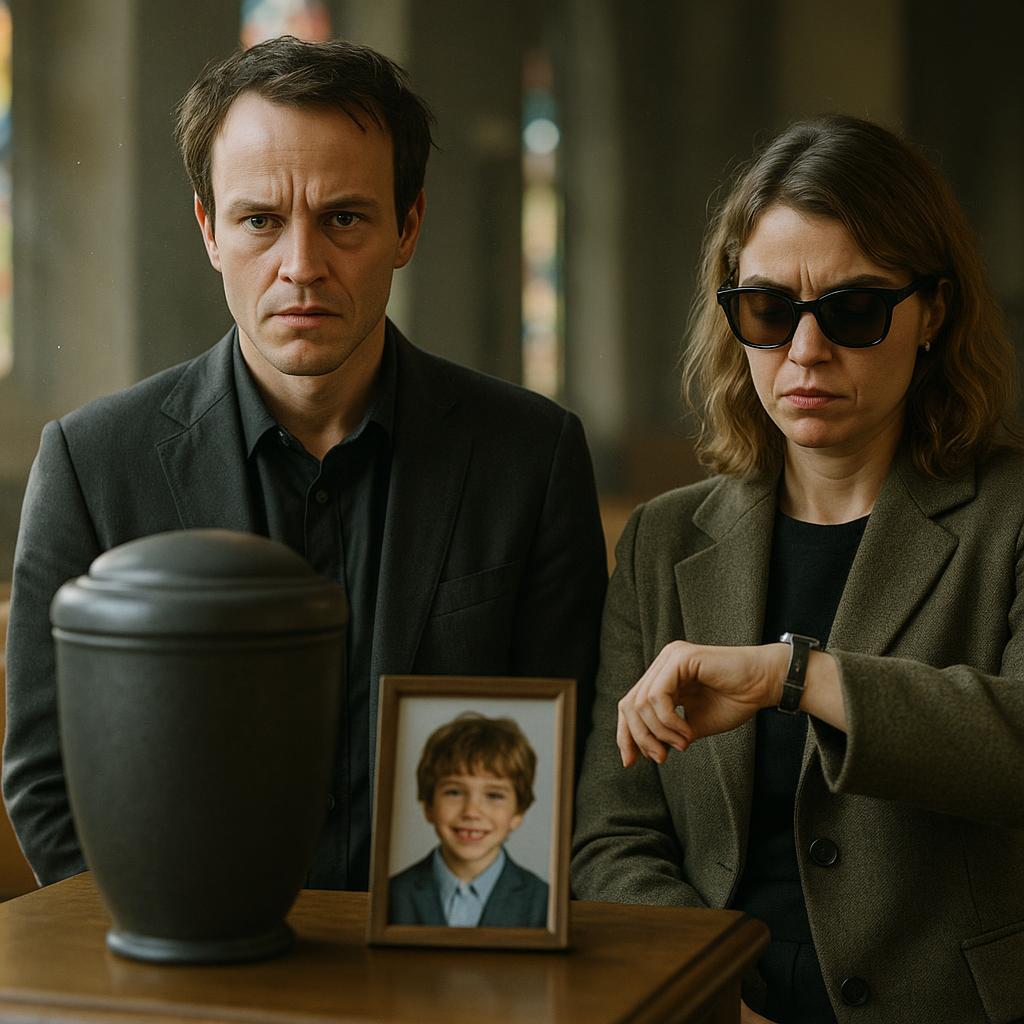 Image by RM AI
Image by RM AI
How We Began
Isabel and I met during sophomore year at UNC Chapel Hill. She was this stunning psychology major with chestnut hair that caught the light just right, always carrying more books than seemed humanly possible to read. I still remember the first time I saw her in the campus coffee shop, arguing passionately about Freudian theory with a professor twice her age. She wasn't just winning the debate—she was dominating it. I fell for her before we even spoke. When we finally did, it was like finding a missing piece I never knew was gone. We were inseparable within weeks. God, we were so young and so certain about everything. We'd stay up all night planning our future—the careers we'd have, the places we'd travel, the family we'd build. I proposed after just eighteen months with my grandmother's ring, and Isabel cried real tears when she said yes. Our wedding was small but perfect. For those first few years, we were genuinely happy. When Noah came along, I thought our life was complete. Looking at Isabel now, tapping away at her phone while people murmur condolences about our supposedly dead son, it's impossible to reconcile her with the woman who once couldn't bear to sleep unless her head was on my chest. The woman who used to leave little notes in my lunch box. The woman who cried with joy when Noah took his first steps. Something changed in her, or maybe it was always there beneath the surface, waiting for the right moment to emerge. Either way, as I watch her fake-sob into a tissue while checking her watch, I can't help but wonder: did I ever really know her at all?
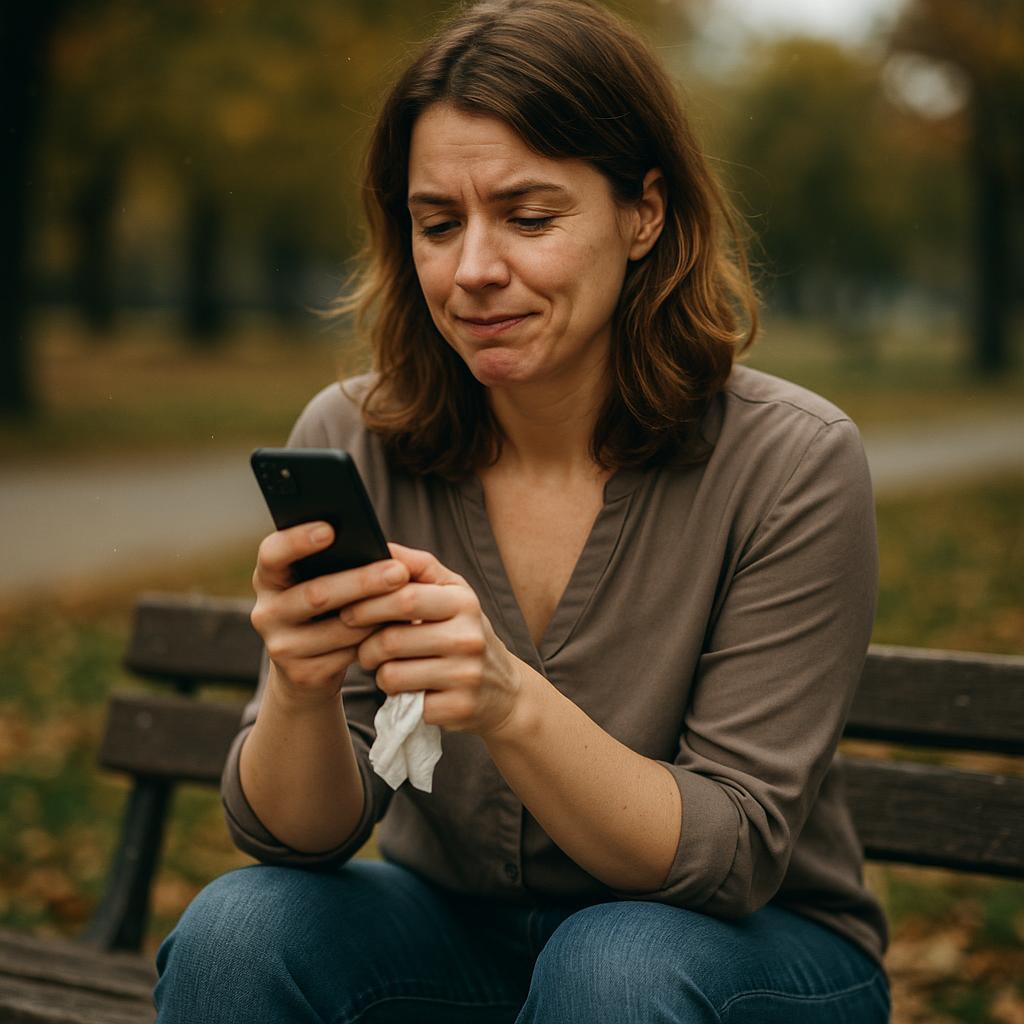 Image by RM AI
Image by RM AI
Noah's Birth
I remember the day Noah was born like it was yesterday, not like this surreal nightmare I'm living now. It was a Tuesday in April, raining so hard the hospital parking lot looked like a lake. Isabel was in labor for nineteen hours—she squeezed my hand so tight I lost feeling in three fingers. But when that first cry pierced the air at 3:42 AM, nothing else mattered. The nurse placed this tiny, red-faced human on Isabel's chest, and I swear time stopped. "Meet your son," she whispered, her face glowing despite the exhaustion. I counted his fingers and toes—twice—just to be sure. Ten of each, perfect in every way. I cut the cord with shaking hands, this symbolic act of separating him from Isabel and welcoming him into the world as his own person. That night, after Isabel fell asleep, I sat in the hospital chair cradling Noah, whispering promises I intended to keep forever. "I'll always protect you," I told him. "I'll never let anything bad happen to you." Now, staring at this urn that supposedly contains my son, those words haunt me. "Where's the death certificate?" I ask Isabel again, my voice barely controlled. She whips around, eyes flashing behind those designer sunglasses. "For God's sake, Mark, let it go! Why can't you just accept what happened and move on?" But that's just it—I can't accept it. Because deep down, something tells me my son isn't gone at all.
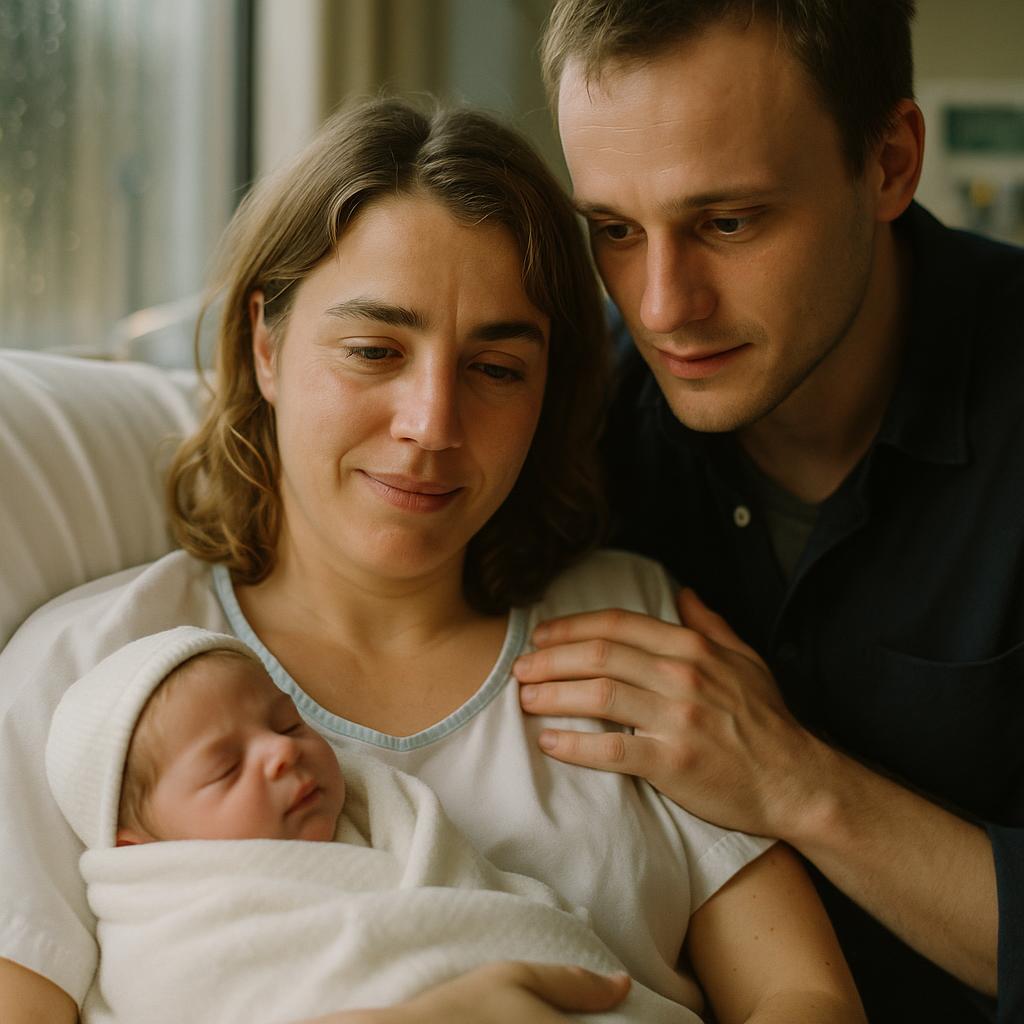 Image by RM AI
Image by RM AI
Growing Apart
I watch Isabel work the room at the funeral reception, her designer heels clicking confidently across the floor as she accepts condolences with practiced grace. It's hard to believe this is the same woman who once cried with joy when Noah took his first steps in our tiny apartment living room. Everything changed after Noah turned two. Suddenly, our cozy three-bedroom ranch wasn't enough. My steady warehouse job with benefits that had once made me "husband material" now made me "unambitious." Isabel started bringing home magazines featuring sprawling homes with infinity pools, talking about them like they were necessities rather than luxuries. Her new friends—all from her marketing firm—had husbands who were executives or entrepreneurs. I remember the night she came home from a dinner party at her coworker Jen's house, her eyes gleaming with something I hadn't seen before. "Did you see their kitchen? The marble countertops? That's what we should have, Mark." I tried explaining that we were doing fine, that Noah was happy, that we had everything we needed. "That's the problem with you," she'd snapped. "You're satisfied with 'fine' when we could have extraordinary." Across the reception room, I spot Marcel, Isabel's brother, hovering near the refreshment table. When our eyes meet, he quickly looks away, busying himself with a napkin. I make my way over, determined to at least say hello, but the moment I approach, he mumbles something about needing to check on Isabel and practically runs to the other side of the room. His behavior only deepens the unease that's been growing inside me since I received that impossible phone call about Noah's death.
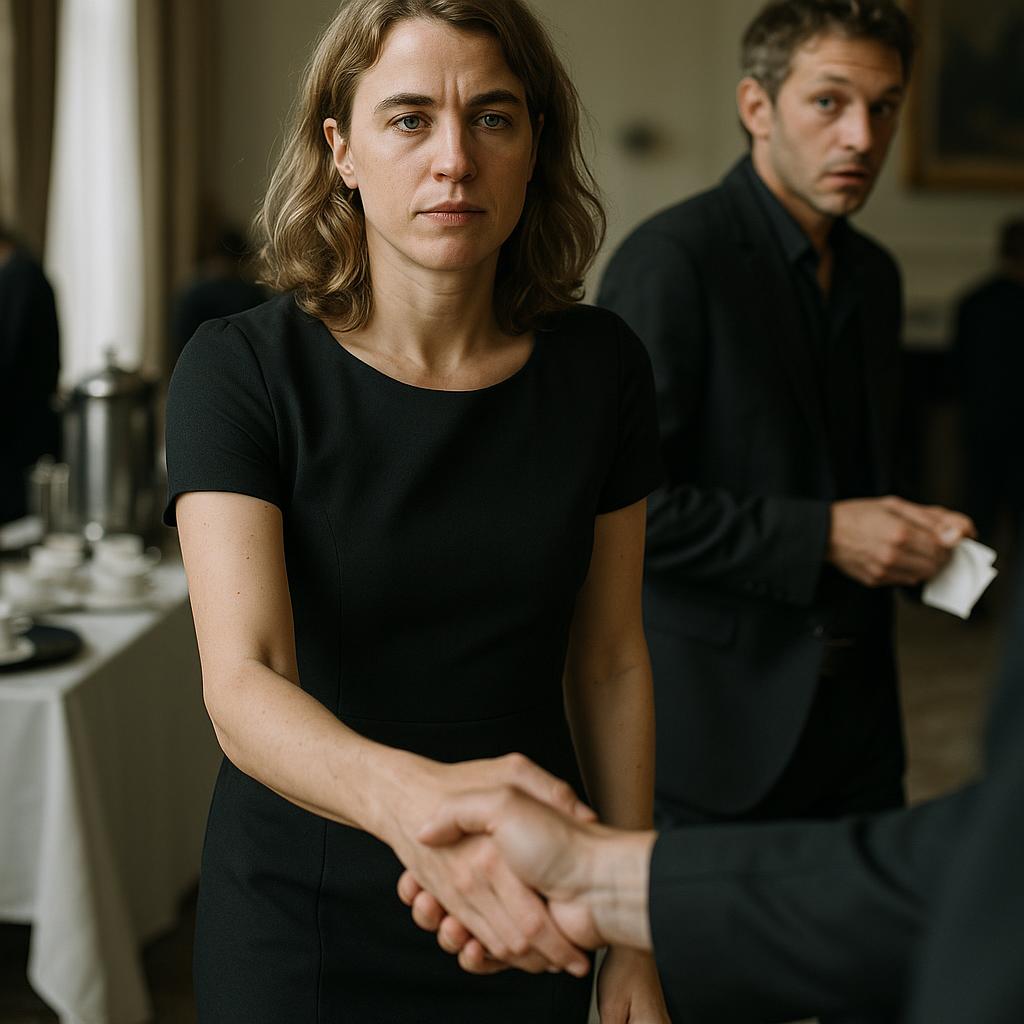 Image by RM AI
Image by RM AI
The Betrayal
I still remember that Tuesday in March when everything fell apart. I'd gotten off work early—a rare occurrence at the warehouse—and picked up Noah's favorite dinosaur-shaped chicken nuggets as a surprise. The house was quiet when I walked in, but Isabel's car was in the driveway. Then I heard it—laughter coming from our bedroom. I stood frozen in the hallway, the grocery bag dangling from my hand, as I pushed open the door to find Isabel tangled in our sheets with a man I recognized from her marketing firm. His name was David, her "mentor" she'd mentioned so casually at dinner parties. "Mark!" Isabel gasped, her startled face burning into my memory as David scrambled to button his shirt. I didn't yell. I didn't throw things. I just turned around, walked to Noah's room, and sat on his tiny bed clutching his stuffed T-Rex. Three hours later, Isabel was packing their bags while Noah sobbed, clinging to my legs. "Daddy, why can't you come too?" he kept asking. I had no answer that made sense to a four-year-old. Now, watching Isabel at this sham of a funeral, I notice her huddled in the corner with a woman I've never seen before—petite, nervous-looking, with short blonde hair. They're speaking intensely, both occasionally glancing in my direction. When they catch me watching, the blonde woman practically jumps, then hurries toward the exit. Isabel's face hardens as she straightens her designer dress and walks deliberately in the opposite direction. Whatever they're hiding, I'm going to find out.
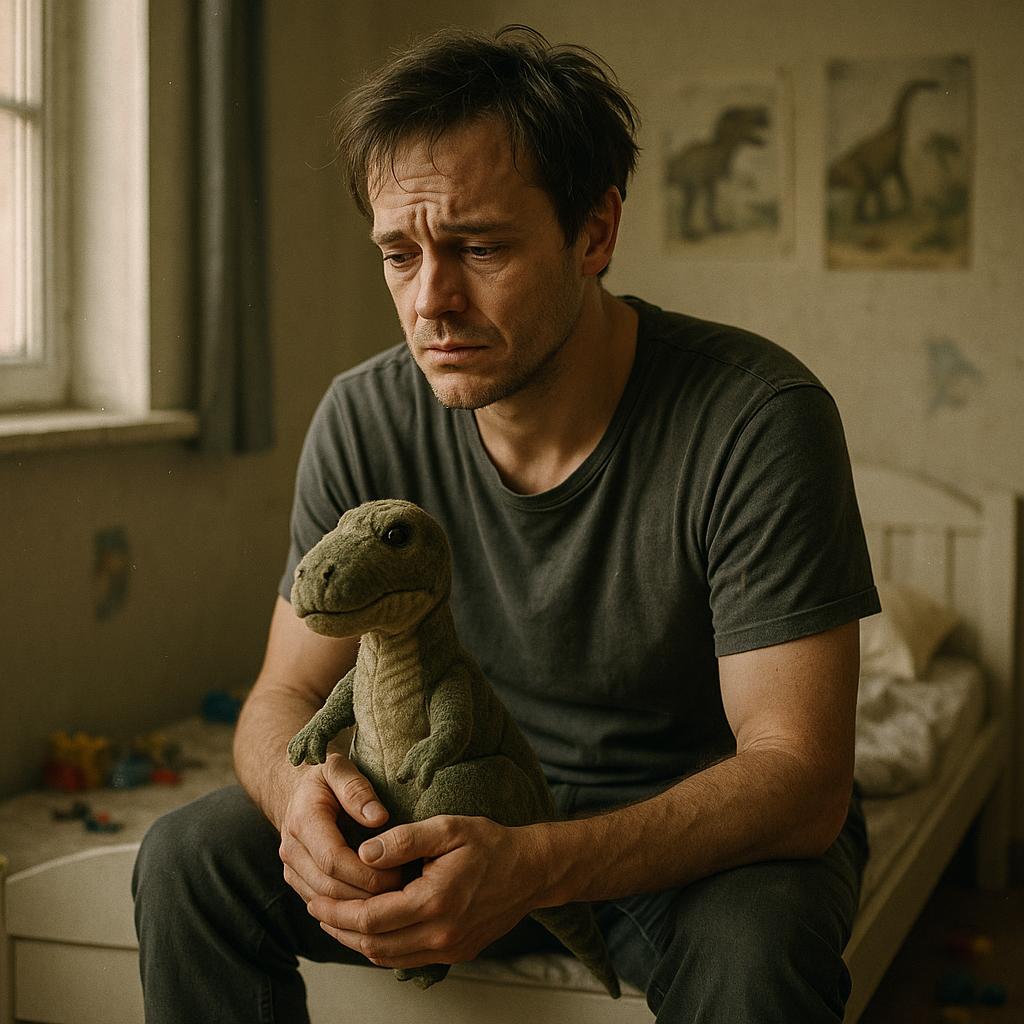 Image by RM AI
Image by RM AI
The Custody Battle
The divorce was a bloodbath. Isabel's father had connections, and she used them to hire attorneys who charged more per hour than I made in a day. I still remember sitting in that cold courtroom, watching Isabel dabbing fake tears while describing how my "unpredictable work schedule" and "anger issues" made me an unfit parent. Complete lies. The judge—a golf buddy of her father's, I later discovered—barely glanced at the character references from Noah's teachers or the calendar documenting every single one of his doctor's appointments I'd attended. When he granted Isabel full custody with that smug little tap of his gavel, something inside me broke. "Mr. Lawson, the court finds that the child's best interests are served by remaining with his mother, who is hereby permitted to relocate to Tennessee." Just like that, my son was ripped away. Seven hours of highway between us. The "generous visitation" they promised turned into supervised phone calls that Isabel could—and did—cancel on a whim. Now, as people file out of the church, I overhear two women whispering near the guest book. "Poor Isabel," one says. "Having to handle everything alone after moving back from Tennessee." I freeze mid-step. Back from Tennessee? According to Isabel, Noah had been living there until his supposed death. I edge closer, straining to hear more. "Hasn't she been in Richmond for months now?" the other woman asks. Richmond. That's where Marcel lives. The pieces start clicking together in my mind, forming a picture so disturbing I can barely breathe.
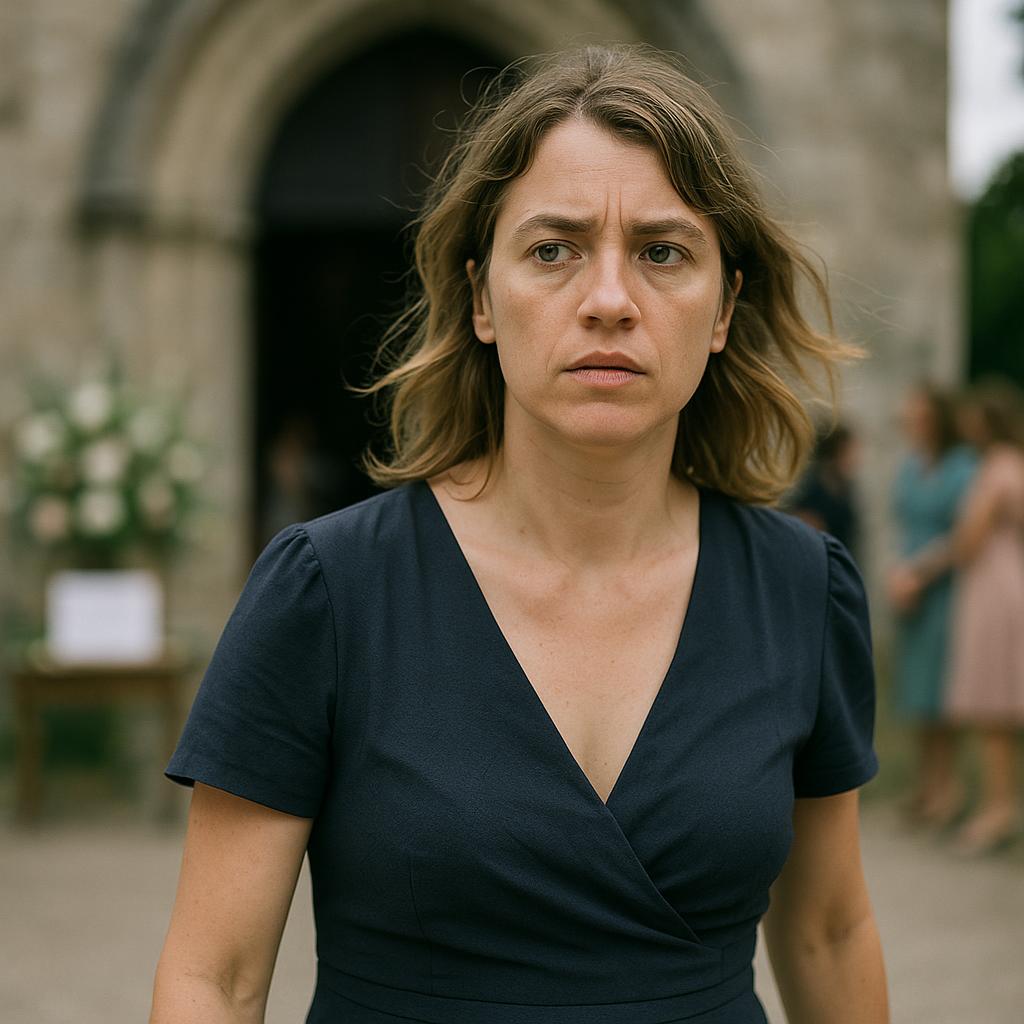 Image by RM AI
Image by RM AI
Long-Distance Dad
Those months after Isabel took Noah to Tennessee were pure hell. I'd stare at my phone calendar, counting down to our 'scheduled calls' that she'd cancel half the time with flimsy excuses. 'Noah's napping,' or 'We have plans today.' When we did connect, Isabel would hover just off-screen, coaching his responses. I could see it in his eyes—that careful hesitation before answering even the simplest questions like 'How was school?' or 'Did you like the birthday gift I sent?' Our conversations grew shorter, his voice more distant with each call. The worst part was how they always ended—Noah's little face would suddenly change, his eyes darting to the side where I knew she was standing. 'Mom says I have to go,' he'd whisper, and the screen would go black before I could even say goodbye. I'd sit there afterward, sometimes for hours, clutching my phone and wondering if my son even remembered what it felt like to be held by his father. After the funeral, I spotted Noah's preschool teacher, Mrs. Winters, standing awkwardly by the refreshment table. She looked confused, almost dazed. I made my way toward her, desperate for any information, but Isabel materialized out of nowhere, gripping the woman's elbow with white knuckles. 'So good of you to come,' Isabel said loudly, steering her away. The look Mrs. Winters shot me over her shoulder wasn't grief—it was fear. And that's when I knew with absolute certainty that whatever game Isabel was playing, she wasn't playing it alone.
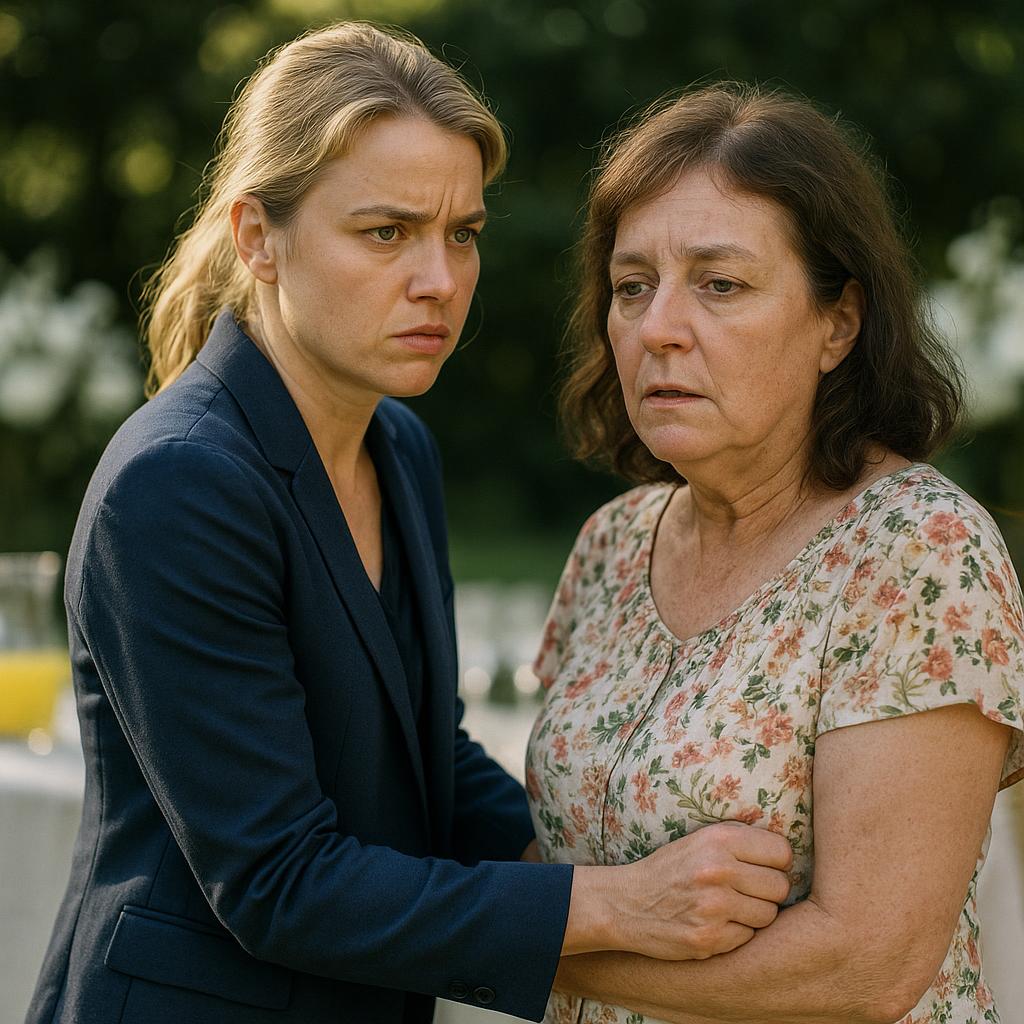 Image by RM AI
Image by RM AI
The Phone Call
I'll never forget that phone call. It was a Tuesday afternoon, and I was organizing Noah's old drawings, planning to mail him a care package. When Isabel's name flashed on my screen, I actually felt hopeful—maybe she was finally letting me have that weekend visit I'd been begging for. But her voice was flat, emotionless. "Noah's gone," she said, like she was telling me we were out of milk. My brain couldn't process the words. "Gone where?" I asked stupidly. "Dead, Mark. He had an allergic reaction." My legs gave out. I collapsed onto the kitchen floor, phone still pressed to my ear, the world spinning around me. "What? How? He doesn't even have allergies—" I started, my voice breaking. "I don't want to talk about this," she snapped, then hung up. Just like that. I called back immediately, then again, and again—seventeen times in total. Left voicemails begging for details, for anything. She never picked up. Three days later, I got a text with funeral arrangements in Kentucky, of all places. "No viewings. Cremation only." At the reception, I cornered Jen, Isabel's friend from her marketing days. "Did you know Noah had allergies?" I asked. She looked confused, glancing over my shoulder as if checking for Isabel. "I... didn't know he had any," she whispered. Then she quickly excused herself, practically running away from me. That's when I knew something was terribly, horribly wrong. My son wasn't allergic to anything—I'd spent six years of his life making sure of that.
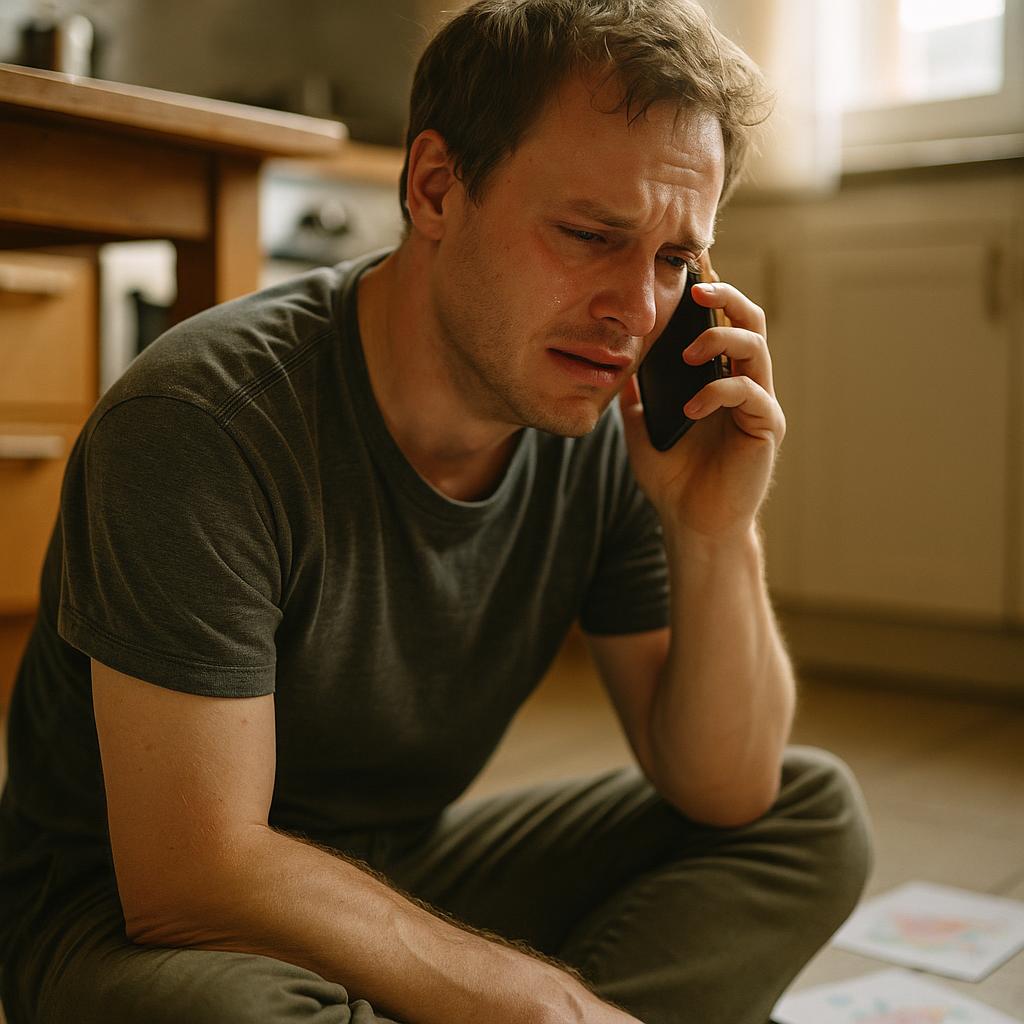 Image by RM AI
Image by RM AI
Funeral Arrangements
Three days after Isabel's call, my phone buzzed with a text message containing funeral arrangements. I stared at my screen in disbelief – some tiny town in Kentucky I'd never even heard of. 'No viewings. Cremation only.' That was it. No details about what happened, no medical explanation, nothing a father deserves to know about his son's death. When I arrived at the funeral home, everything felt rushed and impersonal. The director, a thin man with perpetually downcast eyes, kept checking his watch during our brief conversation. 'Where's the death certificate?' I asked, noticing it wasn't displayed with the guest book like it should be. He shifted uncomfortably, not meeting my gaze. 'Mrs. Lawson handled everything directly,' he mumbled, then excused himself before I could ask anything else. I wandered through the small chapel, past the handful of strangers Isabel had gathered, and found myself standing before the urn. It was silver with blue accents – Noah's favorite color was red. Even this final detail was wrong. I ran my fingers over the cold metal, trying to process that my son was supposedly inside. But how could he be? Noah, who was terrified of bees but would chase frogs for hours. Noah, who had my crooked smile and his mother's sharp eyes. Noah, who didn't have a single allergy in his six years of life. As I stood there, Marcel hurried past, deliberately avoiding eye contact. That's when I noticed something else strange – the funeral program listed Noah's middle name incorrectly. What kind of mother gets her dead child's name wrong?
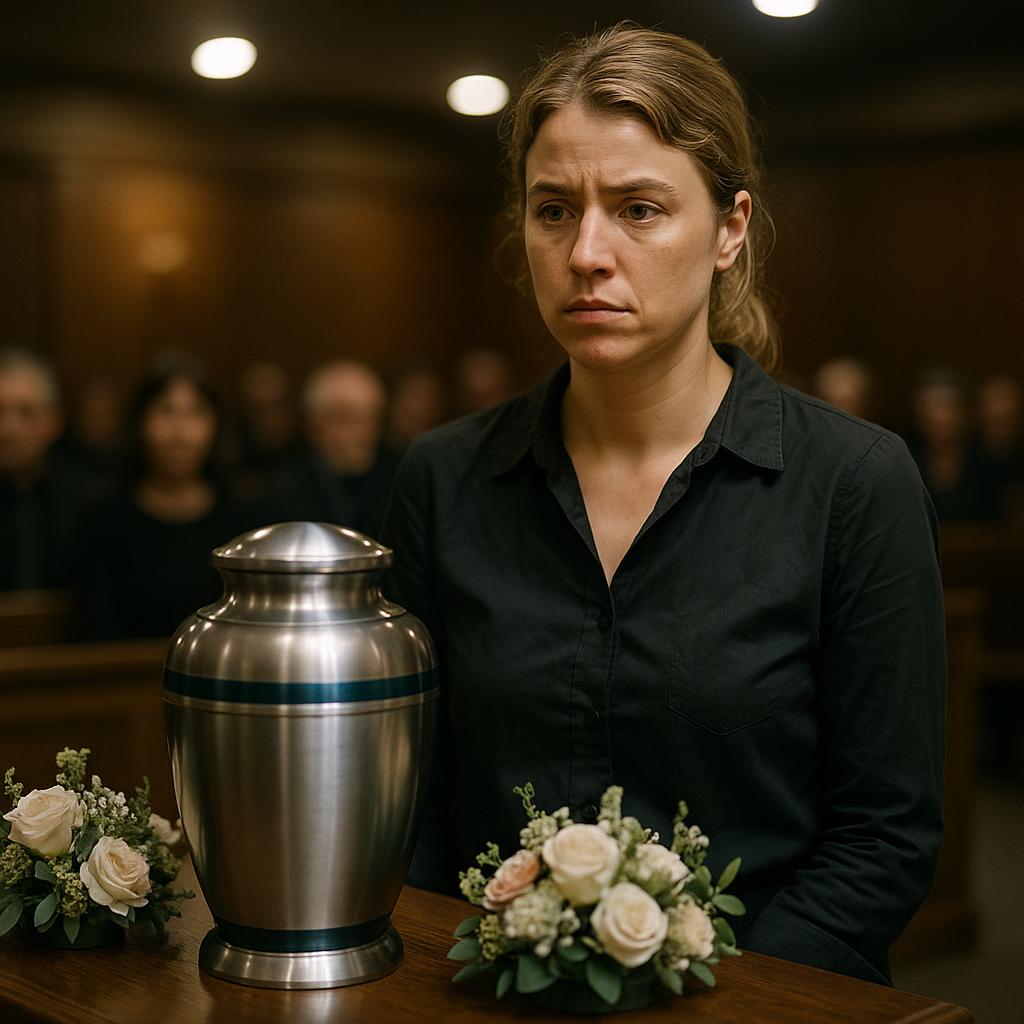 Image by RM AI
Image by RM AI
The Lone Photo
I stand in the corner of the reception hall, fixated on the single framed photo of Noah placed beside the urn. It's from last Christmas—the last time Isabel actually let me see him. My throat tightens as I notice something I missed earlier: the photo has been carefully cropped, cutting me out completely. I was right there, my arm around Noah's shoulders as he proudly showed off his new dinosaur pajamas. Now it's just him, alone, as if I never existed in his life. I walk over to Isabel, who's chatting with one of her new friends, and clear my throat. 'I need to know which hospital he was at,' I say quietly, trying to keep my voice steady. 'What allergist diagnosed him? There must be medical records.' Isabel's face transforms instantly—her practiced grief replaced by something cold and calculating. 'Are you serious right now?' she hisses, her voice rising with each word. 'At our son's FUNERAL?' Heads turn. People stare. 'You always do this, Mark! Always making everything about YOU!' She's creating a scene, and I realize that's exactly what she wants—to make me look like the unstable ex-husband who can't accept reality. As she dramatically collapses into the arms of a nearby friend, sobbing about how I'm 'making her grief worse,' I catch Marcel watching from across the room. For just a second, our eyes lock, and what I see there isn't sympathy or sadness. It's guilt.
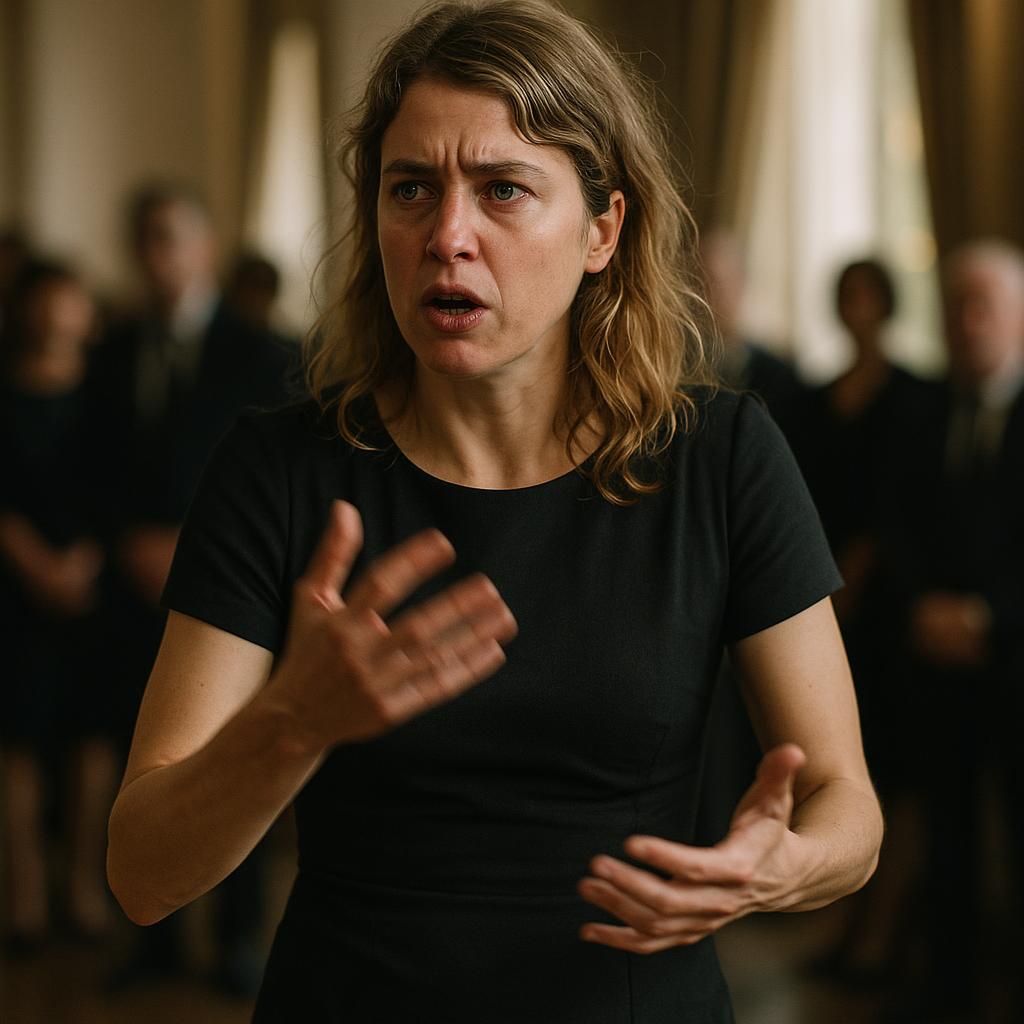 Image by RM AI
Image by RM AI
The Motel Room
I sit on the edge of the motel bed, surrounded by photos of Noah spread across the faded floral comforter. The funeral—if you can even call that bizarre ceremony a funeral—ended hours ago, but my mind won't stop racing. The lamp casts harsh shadows across the room as I dial the seventh hospital in Tennessee. "I'm looking for records of a five-year-old boy who died from an allergic reaction last week," I explain, my voice hoarse from repeating the same question. Again, nothing. No records matching that description. I grab the hotel notepad and add this to my growing list of inconsistencies: wrong middle name on the program, no death certificate, cremation without proper documentation, Isabel's strange behavior, Marcel practically running away from me, the mysterious blonde woman, and now Isabel apparently living in Richmond, not Tennessee. I pull up Noah's last school photo on my phone—his genuine smile with that missing front tooth. "What happened to you, buddy?" I whisper, my finger tracing his face on the screen. The digital clock flips to midnight as I stare at the ceiling, a terrible thought forming in my mind: What if Noah isn't dead at all?
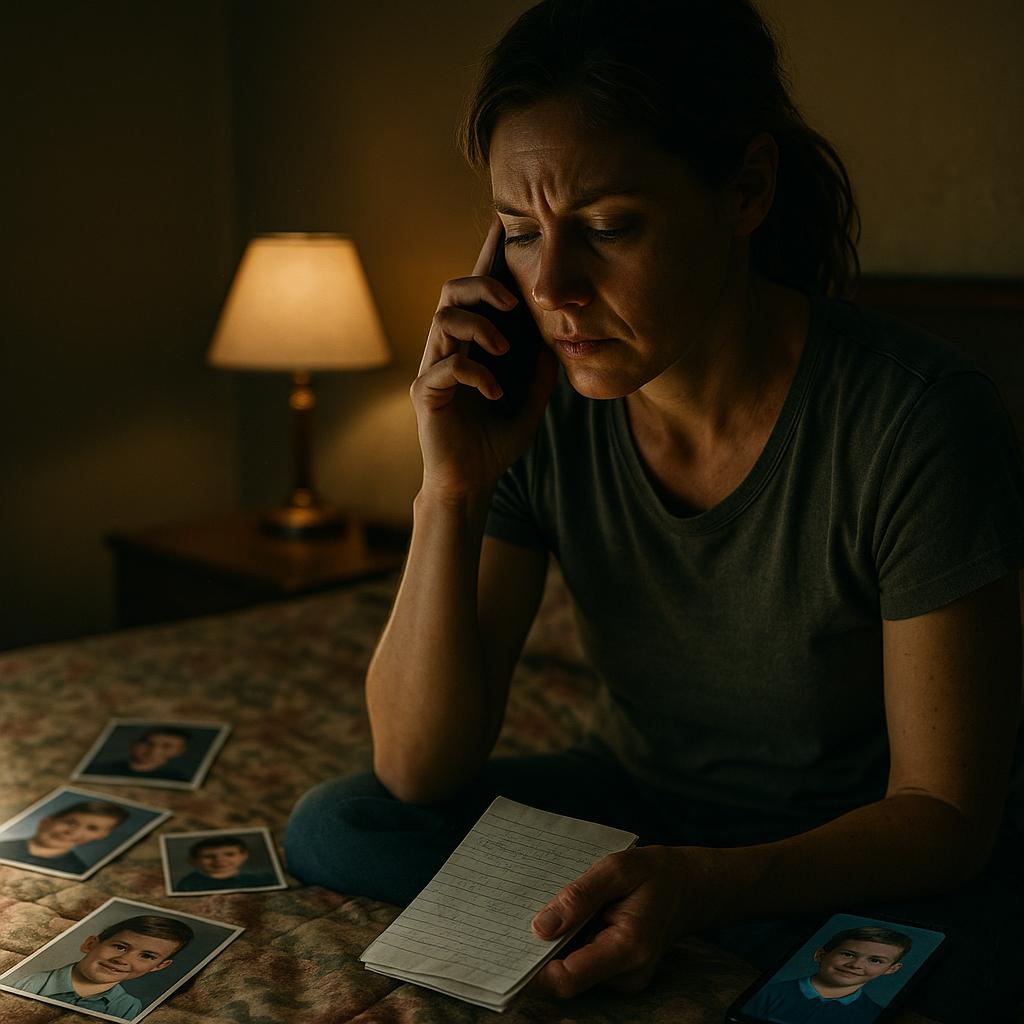 Image by RM AI
Image by RM AI
Back to Normal
It's been a month since I stood in that half-empty church, staring at an urn that supposedly contained my son. A month of waking up in cold sweats, reaching for my phone to call Noah before reality crashes back. At work, I'm a walking ghost story – the guy whose kid died tragically. Everyone tiptoes around me, offering awkward pats on the shoulder and those painful 'how are you holding up?' questions that nobody actually wants the real answer to. Today, my supervisor Dave cornered me in the break room. 'Mark, the company offers grief counseling,' he said, sliding a pamphlet across the table like he was passing me contraband. 'Might help to talk to someone.' I nodded and thanked him, knowing I couldn't possibly explain that I don't think my son is dead. How do you tell someone that without sounding completely unhinged? After my shift, instead of driving home, I found myself parked outside Isabel's old apartment complex, engine idling. The lights were on in what used to be our unit – new tenants living their lives in the space where Noah took his first steps. I sat there for nearly an hour, wondering if Isabel had left anything behind when she moved – any clue, any paper trail that might lead me to the truth. As darkness fell, my phone buzzed with a text from an unknown number: 'Check your email.' My heart hammering, I opened my inbox to find a message with no subject line, just an attachment – a grainy security camera photo of a playground dated three days ago. And there, pushing a little boy on the swings, was Marcel's wife Ashley.
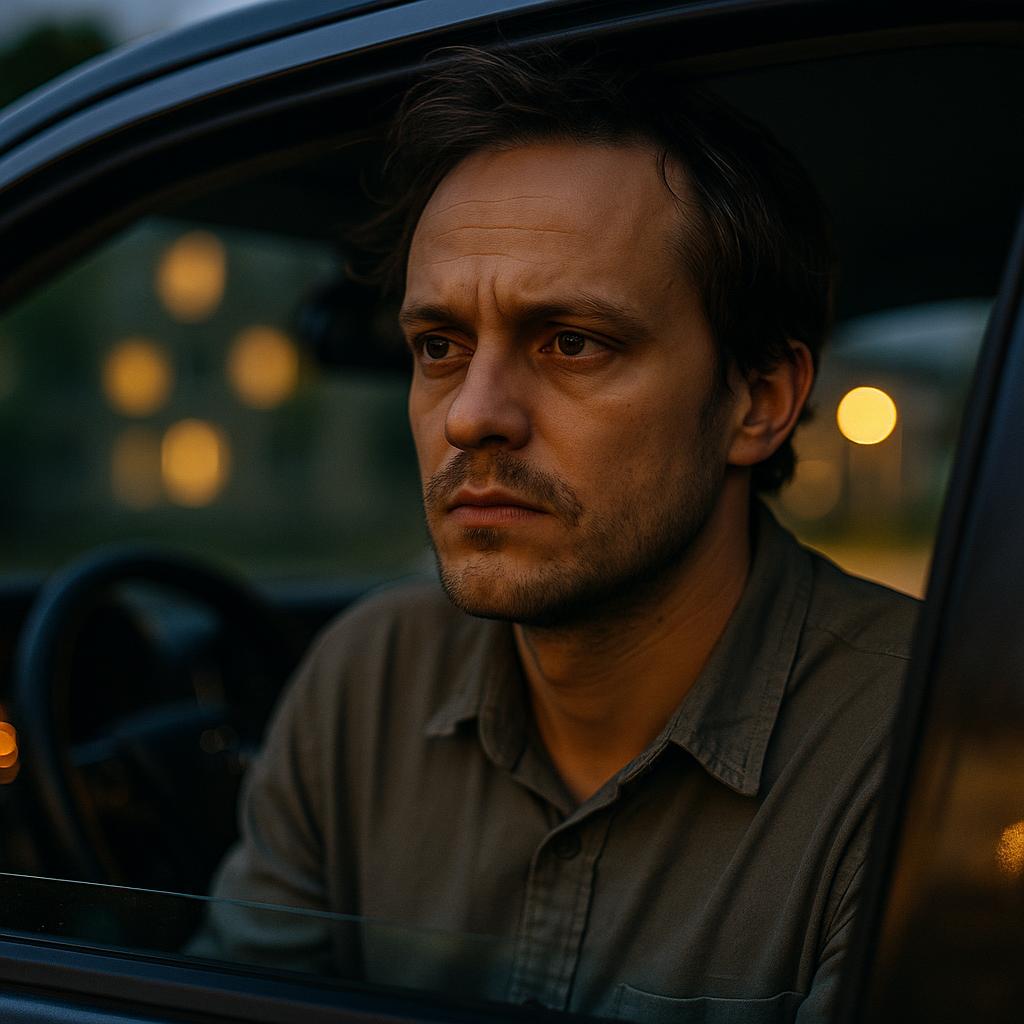 Image by RM AI
Image by RM AI
The Mysterious Call
I was about to crawl into bed when my phone lit up at exactly 10:00 PM. Blocked number. I almost didn't answer, but something told me I should. "Hello?" I said, expecting a robocall or wrong number. Instead, a woman's voice came through, barely above a whisper. "Your son isn't dead." Four words that stopped my heart mid-beat. "Who is this? What are you talking about?" I managed to choke out, gripping the phone so hard my knuckles turned white. "I can't say. But he's in Richmond, Virginia." The line went dead before I could ask anything else. I called back immediately. Nothing. Again. Straight to voicemail. Again and again, my hands shaking so badly I could barely hit redial. I paced my apartment like a caged animal, my mind racing faster than my feet. Richmond. Why Richmond? Then it hit me like a freight train – Marcel, Isabel's brother, lived in Richmond. We'd spent Thanksgiving there once, years ago, when things were still good between us. I collapsed onto my couch, staring at the wall covered with Noah's artwork I couldn't bear to take down. Could it be possible? Was Noah actually alive? Or was this some sick joke, someone's twisted idea of torturing a grieving father? I pulled up Marcel's Facebook page – we weren't friends anymore, but his profile was public. There, posted three weeks ago, was a photo of his house with the caption "Home sweet home #Richmond." My blood ran cold. What if this wasn't a coincidence? What if my son was actually there, right now, calling someone else "Daddy"?
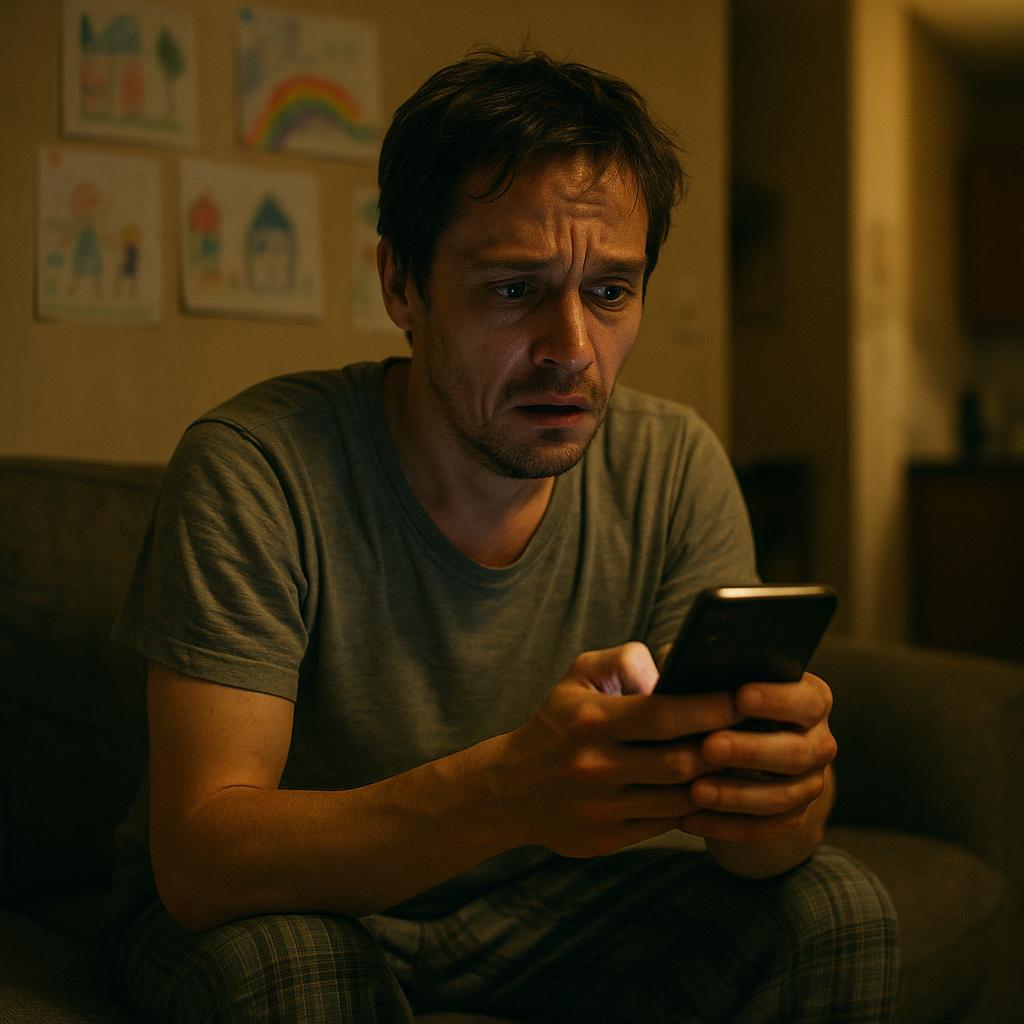 Image by RM AI
Image by RM AI
Sleepless Night
Sleep wasn't even a consideration that night. I sat hunched over my laptop, the blue light casting shadows across my face as I dove deeper into Marcel's digital footprint. His Facebook profile revealed a comfortable life in an upscale Richmond neighborhood with his wife Ashley – a petite blonde woman who looked eerily familiar. The same woman who'd been whispering with Isabel at the funeral. I scrolled through years of posts, my heart pounding with each swipe. Marcel and Isabel had remained unusually close after the divorce, with at least six visits documented in the past year alone. 'Family time!' one caption read, posted just two months before Noah supposedly died. Around 3 AM, I found it – a photo of Marcel's house with pristine landscaping and a two-car garage. But what made my coffee mug slip from my hand was what sat in the driveway: a child's bicycle with dinosaur handlebars and red training wheels. Identical to the one I'd given Noah for his fifth birthday. The one Isabel had claimed was 'lost in the move' to Tennessee. My fingers trembled as I zoomed in on the image. There was even the same T-Rex sticker on the frame that Noah had insisted on placing there himself. This wasn't coincidence. This was evidence. As dawn broke through my blinds, I knew what I had to do. Richmond was only a four-hour drive away, and I had three sick days I hadn't used. By this time tomorrow, I'd know if the child riding that bicycle was my son.
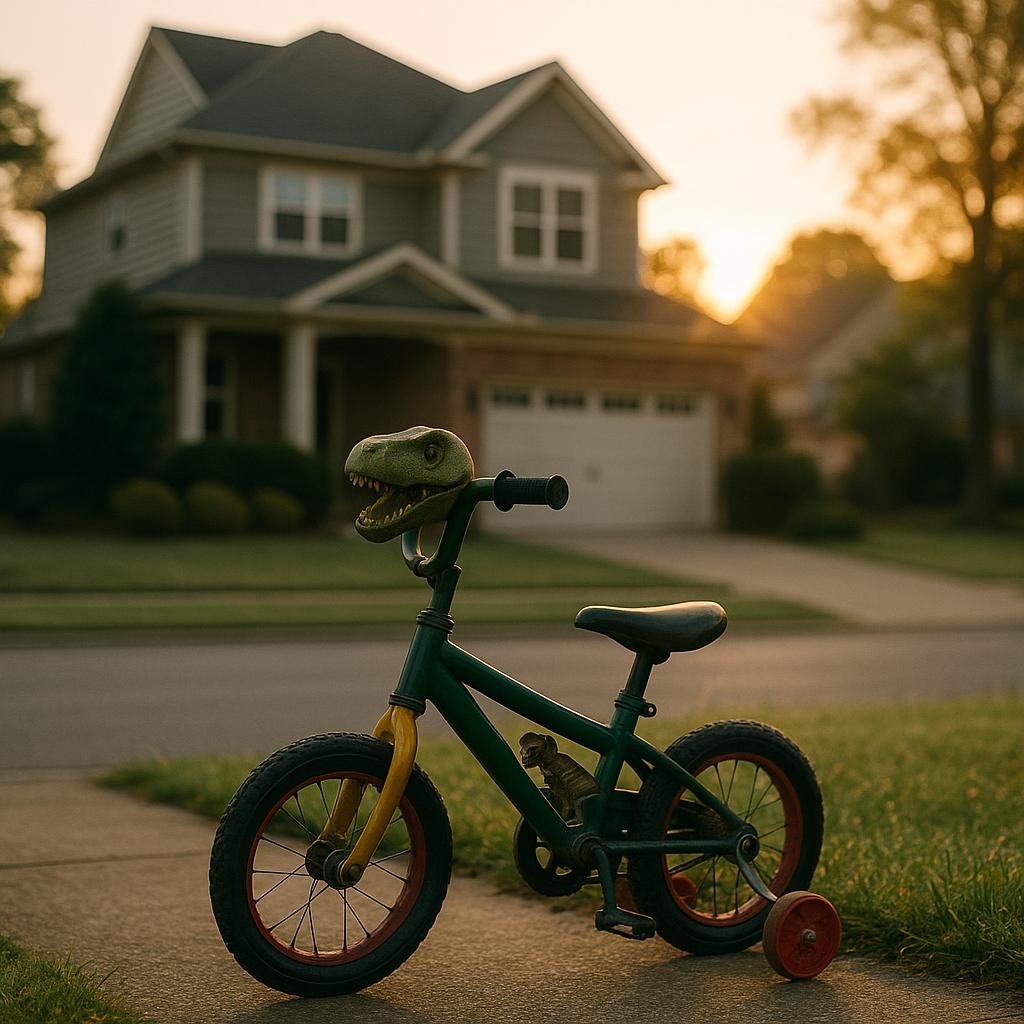 Image by RM AI
Image by RM AI
Decision to Act
By 6 AM, I'd made my decision. I threw some clothes into a duffel bag, grabbed my toothbrush, and called my boss. "Dave, I need a few days," I said, my voice steadier than I expected. "Just... need to clear my head." Dave didn't hesitate. "Take whatever time you need, Mark. We're all here for you." If only he knew what I was really doing. The highway stretched before me as I headed north toward Richmond, my GPS occasionally breaking the silence with directions. Four hours of driving gave me plenty of time to question my sanity. Was I really chasing a ghost? Or worse—was I setting myself up for heartbreak all over again? Somewhere around the Virginia border, I pulled into a rest stop and called Dr. Patel, Noah's pediatrician since he was born. "Mark, I'm so sorry about Noah," she said when she realized who was calling. "I was shocked when I heard." I gripped the steering wheel tighter. "Dr. Patel, did Noah ever show signs of any allergies? Anything at all?" There was a pause. "No, nothing. We tested him thoroughly after that scare with the strawberries when he was two, remember? Everything came back negative." My heart pounded. "And you never transferred his records to Tennessee?" "Tennessee?" she sounded confused. "No, I never received any transfer requests." Another lie from Isabel. As I pulled back onto the highway, the Richmond city limits sign came into view. Somewhere in this city was either the truth I desperately needed or the final nail in the coffin of my hopes. Either way, there was no turning back now.
 Image by RM AI
Image by RM AI
Arrival in Richmond
The Richmond city limits sign appeared just as my GPS chirped, "You have arrived at your destination." Six hours of driving with nothing but my racing thoughts and gas station coffee had left me wired and exhausted at the same time. I found a dingy motel about two miles from Marcel's neighborhood – the kind with flickering neon and hourly rates that doesn't ask questions. Perfect for a man who might be losing his mind. After checking in, I pulled up satellite images of Marcel's address on my phone. The house was exactly what I expected – large, pristine, screaming "we have money." The kind of place Isabel always wanted but I could never provide. Around 6 PM, I drove by, parking my beat-up Honda far enough away to avoid suspicion but close enough to see the front yard. My heart nearly stopped when I spotted them – a red tricycle, a plastic slide, scattered building blocks. Children's toys. Noah's toys? I gripped the steering wheel so hard my knuckles turned white, forcing myself to breathe. That's when I saw her – Ashley, Marcel's wife, pulling grocery bags from the trunk of her SUV. She looked exactly like her Facebook photos – petite, blonde, wearing expensive athleisure wear. As she struggled with the bags, I had the insane urge to get out and help her, to casually ask, "So, how's my son doing?" Instead, I sank lower in my seat, watching as she disappeared inside. What would I see if those doors opened wider? Would I find my boy sitting at their kitchen table, coloring pictures for parents who weren't his own?
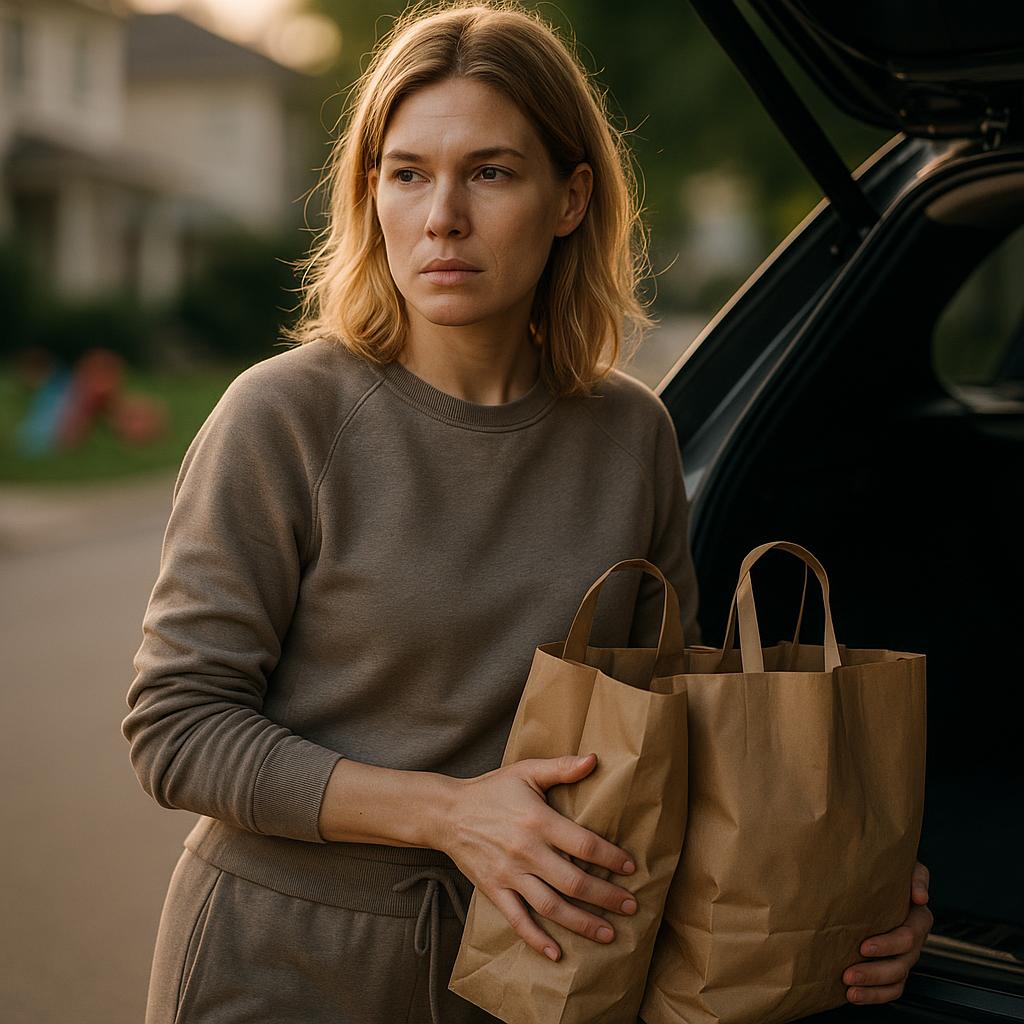 Image by RM AI
Image by RM AI
The Stakeout
I parked my car down the street from Marcel's house, slumping low in the driver's seat with a baseball cap pulled down over my eyes. Call me paranoid, but I'd even rented a different car after checking into the motel – a nondescript gray sedan that wouldn't raise eyebrows in this upscale neighborhood. For hours, I sat there, documenting every movement with my phone camera. Marcel arrived home around 5:30, briefcase in hand, looking every bit the successful businessman he always wanted to be. Through the binoculars I'd bought at a nearby Walmart, I watched as the family gathered around their dining table – Marcel, Ashley, and a small figure whose face I couldn't quite make out. My hands shook as I focused the lenses, but the angle was wrong. Then, just as the sun began to set, casting long shadows across the perfectly manicured lawn, the front door swung open. A little boy ran out, chasing a bright red ball that bounced erratically across the grass. He turned, his face catching the golden evening light, and my entire world stopped spinning. Those eyes. That smile. The way he ran with his left shoulder slightly higher than his right. Noah. My Noah. Alive. Breathing. Playing. My son wasn't dead – he was right there, less than a hundred feet away, wearing blue shorts and a dinosaur t-shirt I'd never seen before. I gripped the binoculars so hard I thought they might shatter, tears streaming down my face as I watched my supposedly dead son laugh and play in another man's yard. In that moment, I knew I'd move heaven and earth to get him back – but first, I needed proof no one could deny.
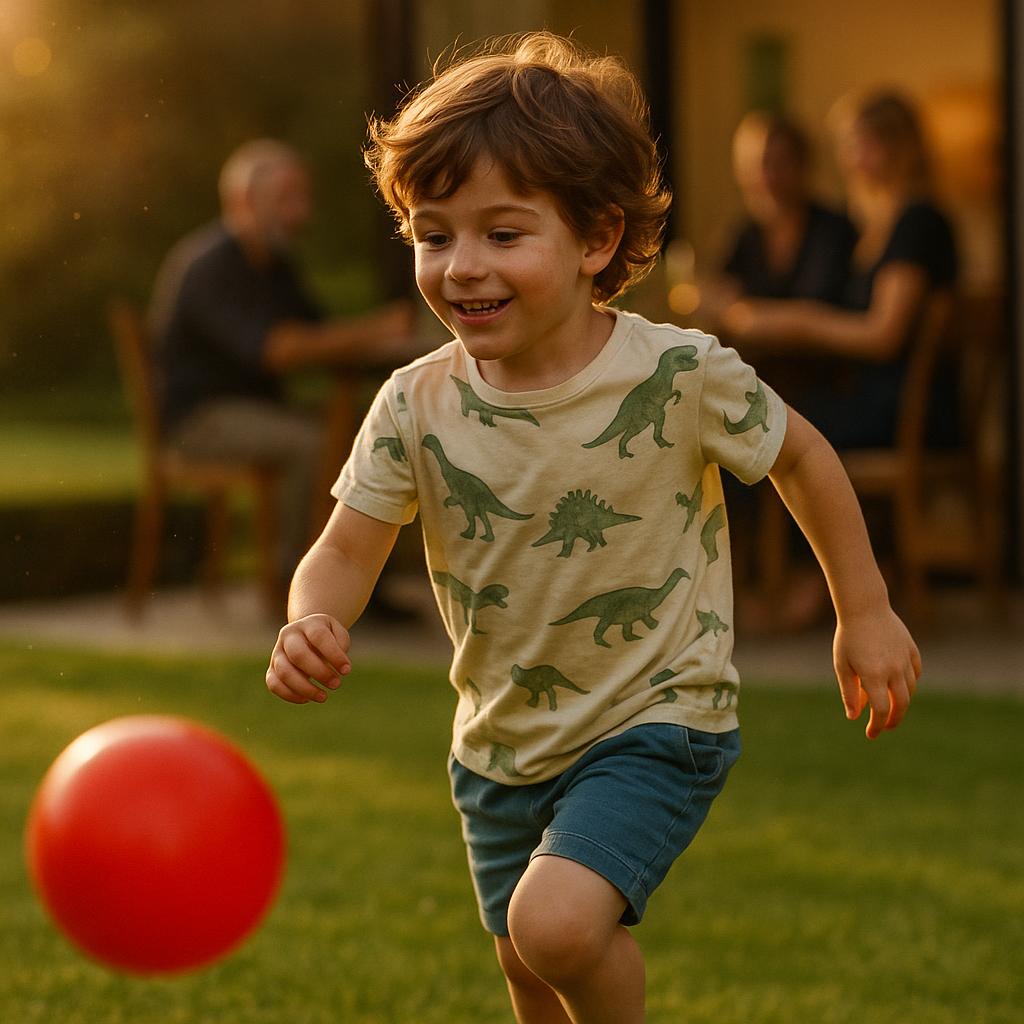 Image by RM AI
Image by RM AI
Fighting Instinct
Every cell in my body screamed at me to run across that lawn, to scoop Noah up in my arms and never let go. My muscles tensed, ready to sprint, but my brain forced them to stay put. If I grabbed him now, Isabel would have me arrested for kidnapping faster than I could say 'he's my son.' So I sat there, hands trembling so badly I could barely hold my phone steady as I recorded video after video, took photo after photo. Evidence. I needed irrefutable proof. When a neighbor walked by with their dog, I ducked down, heart hammering against my ribs. After about twenty minutes, Ashley called from the porch, 'Dinner time!' Noah turned, that familiar little skip in his step that he'd had since he learned to walk. 'Coming, Mommy!' he called back. Mommy. The word was like a knife between my ribs. Then Marcel appeared in the doorway, and Noah ran to him, arms outstretched. 'Daddy, can we have ice cream after?' I heard him ask. Daddy. That was my title. My role. My identity. Something inside me shattered in that moment – not just my heart, but something deeper, more primal. I bit down on my knuckles to keep from screaming, tasting blood as I watched another man living my life, raising my son, while the world thought Noah was dead. I needed help, and I needed it now – before I did something that would ensure I'd never see my son again.
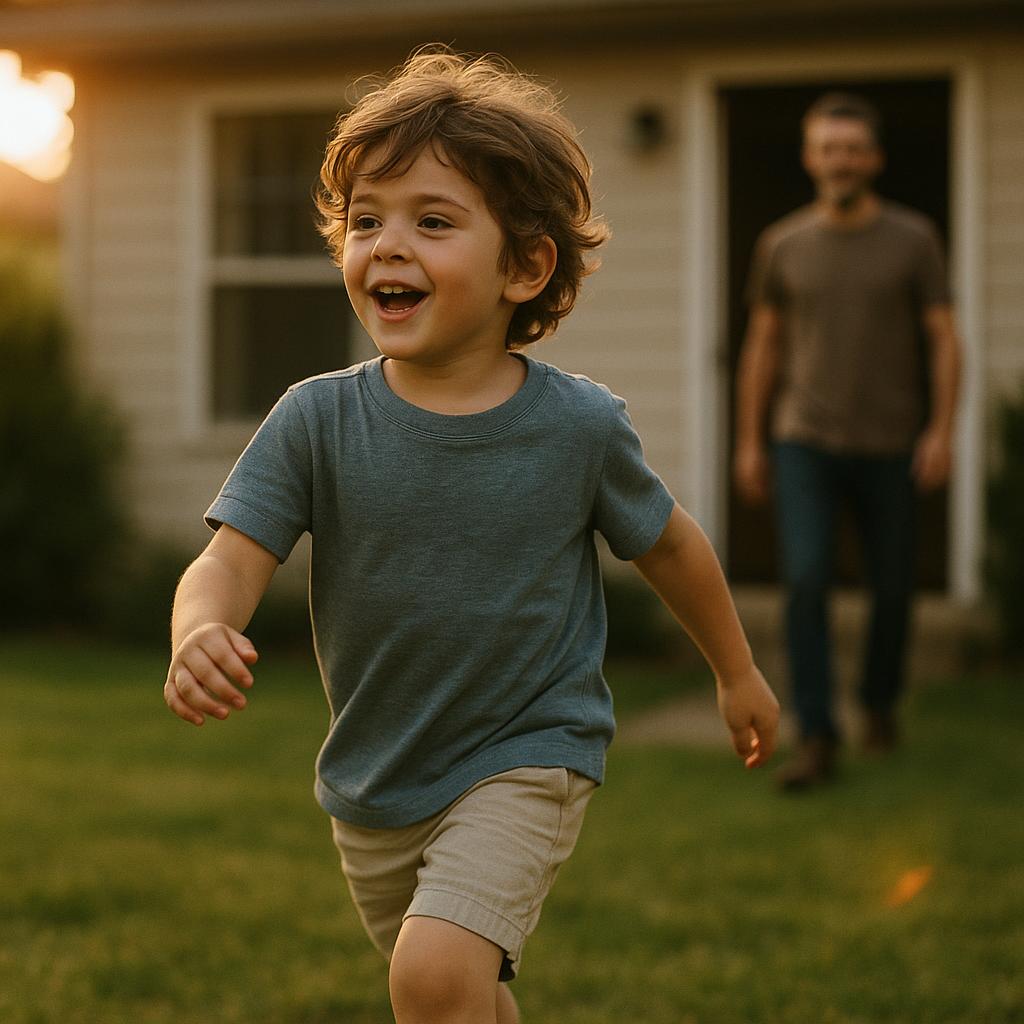 Image by RM AI
Image by RM AI
Calling for Help
Back at the motel, I paced the worn carpet, my hands shaking as I dialed the Richmond police. The first call was a disaster. 'Sir, it sounds like you're going through a difficult time,' the officer said in that patronizing tone people use when they think you're crazy. 'Have you considered grief counseling?' I wanted to scream. Instead, I hung up and tried again an hour later. This time, I got Detective Morales. Something in her voice was different – less dismissive, more attentive. 'Walk me through this again,' she said as I explained about the funeral with no death certificate, the wrong middle name, the mysterious call. When I mentioned Noah's supposed allergic reaction, she interrupted. 'And your son had no history of allergies?' 'None,' I confirmed, my voice cracking. 'His pediatrician confirmed it today.' I heard typing in the background. 'The funeral home in Kentucky – what was the name?' she asked. I gave her the details, along with Marcel's address. 'Mr. Lawson, falsifying a death certificate is a serious crime,' she said finally. 'So is parental kidnapping.' There was a long pause. 'I can't promise anything, but we'll do a welfare check tomorrow morning. If there's a child matching your son's description...' She didn't finish the sentence, but for the first time in months, I felt something dangerous bloom in my chest: hope.
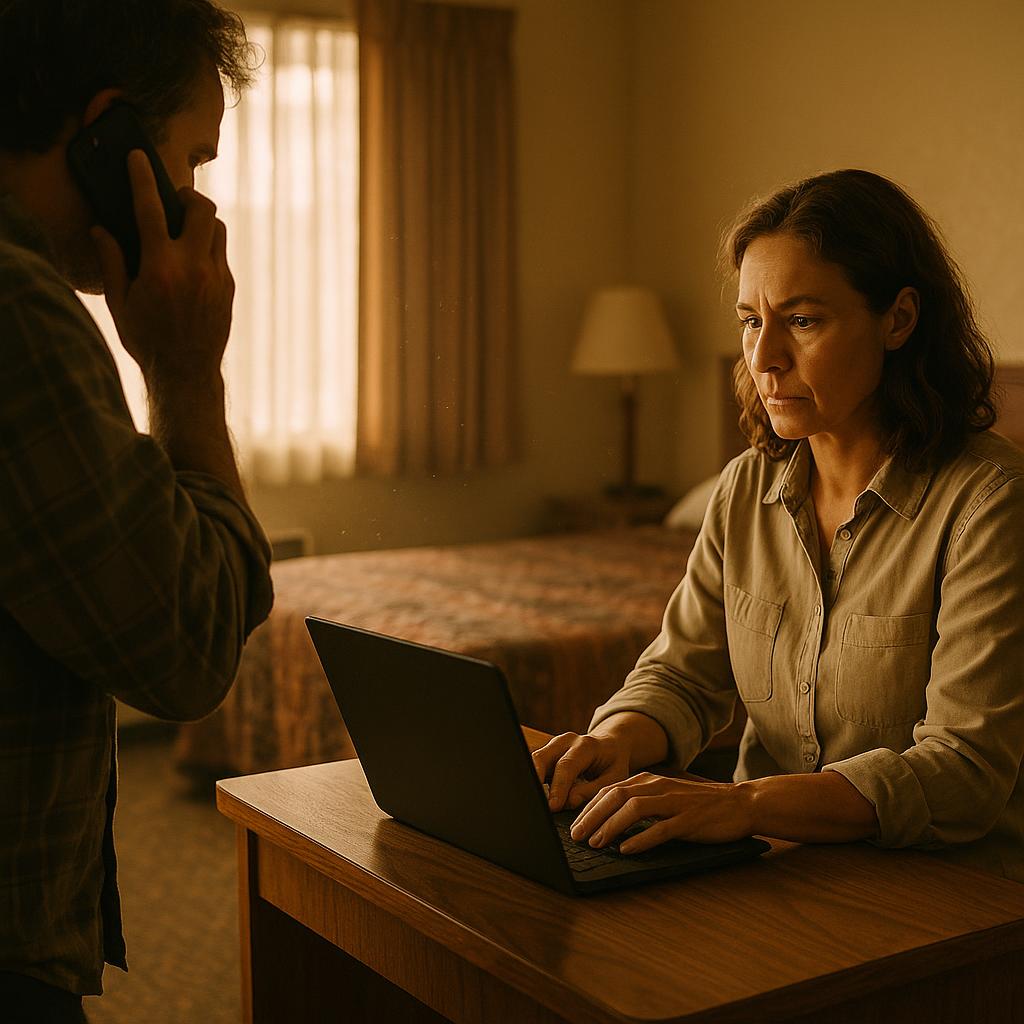 Image by RM AI
Image by RM AI
Building the Case
Detective Morales arrived at my motel room at 7 AM sharp, her no-nonsense demeanor softening slightly when she saw the wall I'd created—photos of Noah taped everywhere, timelines scrawled on hotel notepaper, a map with red pins marking inconsistencies. "You've been busy," she said, accepting the coffee I'd picked up from the gas station across the street. For the next hour, I walked her through everything: the funeral program with Noah's wrong middle name, Isabel's suspicious text about cremation, the mysterious phone call. Morales took meticulous notes, occasionally stopping me to clarify details. "This is... unusual," she admitted, making calls to verify what I already suspected—no death certificate for Noah existed in any state database. When I pulled up the video I'd taken yesterday, showing Noah chasing that red ball across Marcel's lawn, her professional mask slipped. She leaned forward, studying his face, his movements. "That's him, isn't it? Your son?" I nodded, unable to speak past the lump in my throat. Morales set down her notebook and looked me straight in the eyes. "Mr. Lawson, what your ex-wife has done here—faking a death, parental kidnapping, possible fraud—these are serious felonies." She stood up, straightening her jacket. "I'm going to help you get your boy back. But we need to do this by the book, understand? One wrong move, and they could disappear with him again."
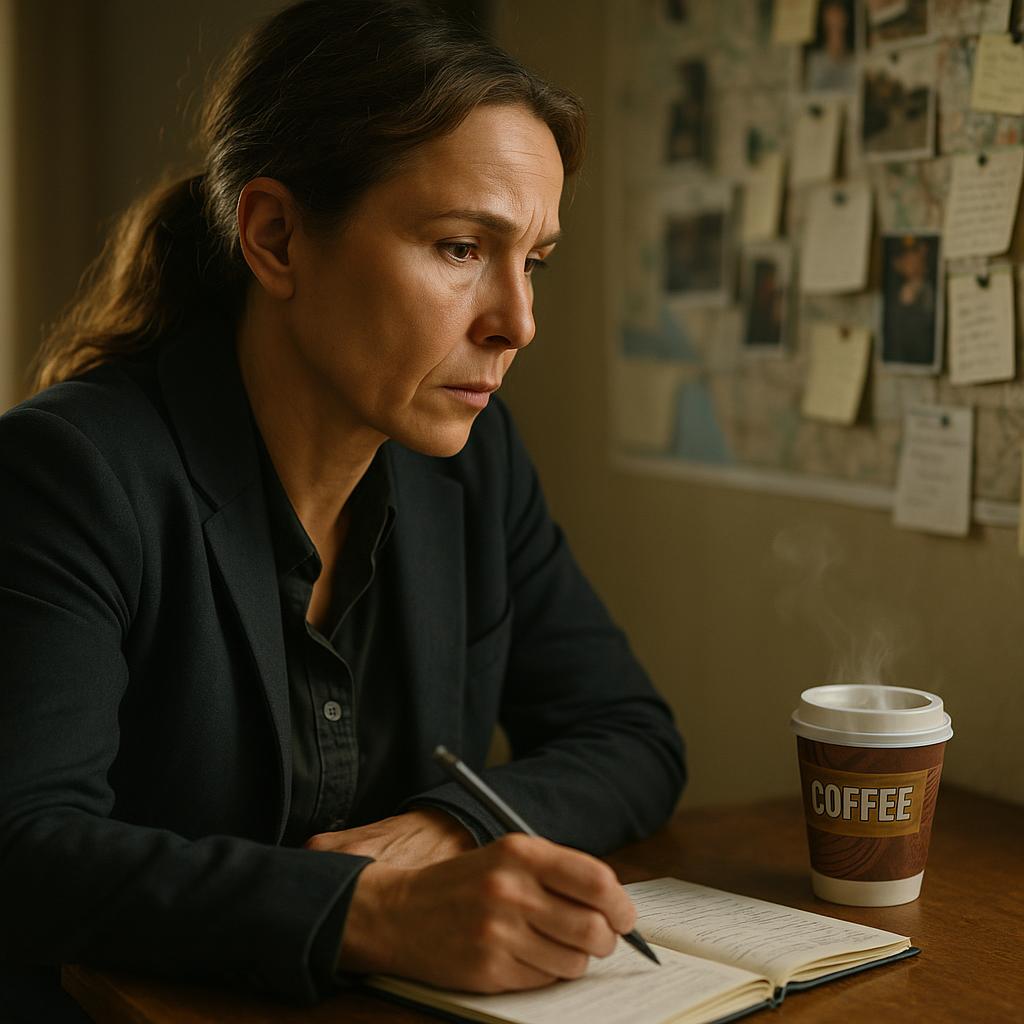 Image by RM AI
Image by RM AI
The Welfare Check
I sat in my rental car, knuckles white against the steering wheel, as Detective Morales' plan unfolded before my eyes. Two police cruisers pulled into Marcel's driveway, their presence both terrifying and exhilarating. Through my binoculars, I watched Marcel open the door, his face transitioning from confusion to barely concealed panic as the officers explained they were conducting a routine welfare check. Something about a neighbor's concern, I imagined. My heart hammered against my ribs like it was trying to escape my chest. When the officers disappeared inside the house, time seemed to stretch impossibly. Five minutes felt like five hours. I kept checking my phone, waiting for Morales' text. What if Noah wasn't there? What if they'd moved him? What if this was all some elaborate hallucination born from grief? I forced myself to breathe, counting each inhale and exhale like my therapist had taught me after the divorce. Then I saw movement at the door. An officer emerged, speaking into his radio. Behind him, partially obscured, stood a small figure. I raised the binoculars with trembling hands, adjusting the focus. The world around me disappeared as I zeroed in on that little face – those familiar eyes, that cowlick that never stayed down no matter how much I tried to smooth it. Noah. My son. Alive.
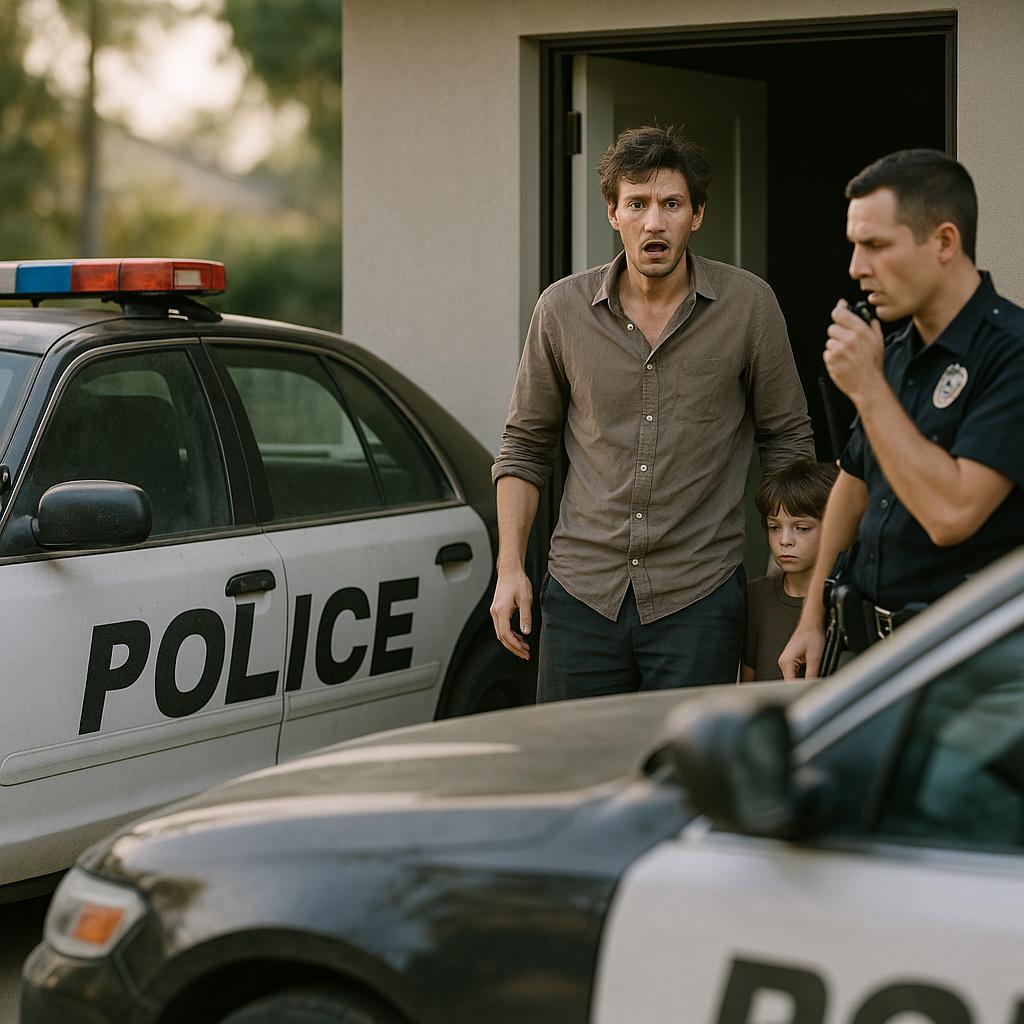 Image by RM AI
Image by RM AI
The Call Comes Through
Thirty minutes felt like thirty years as I sat in my car outside the police station, refreshing my phone screen every few seconds. When it finally rang, I nearly dropped it. Detective Morales' voice came through, steady but with an unmistakable crack of emotion. "We've found him, Mr. Lawson. Noah is here at the precinct. He's safe." I couldn't speak, couldn't breathe. The world around me blurred as tears filled my eyes. "Come immediately," she continued. "He's asking about you." I don't remember the drive there. Traffic lights, stop signs, other cars—they all became meaningless blurs as I navigated on autopilot. Halfway there, my phone rang again. Morales. My heart stopped—had something gone wrong? "Mark," she said, her professional tone softening, "I thought you should know. When we mentioned your name to Noah, his whole face lit up. He asked if his daddy was coming to get him." I pulled over, unable to see the road through my tears. "He remembers me?" I choked out. "Of course he does," she replied gently. "He said you promised to take him fishing someday. He's been waiting for you to come back." As I pulled back onto the road, hands shaking on the steering wheel, I realized I was about to face the moment I'd dreamed of for months—but nothing could have prepared me for what Noah would say when he saw me.
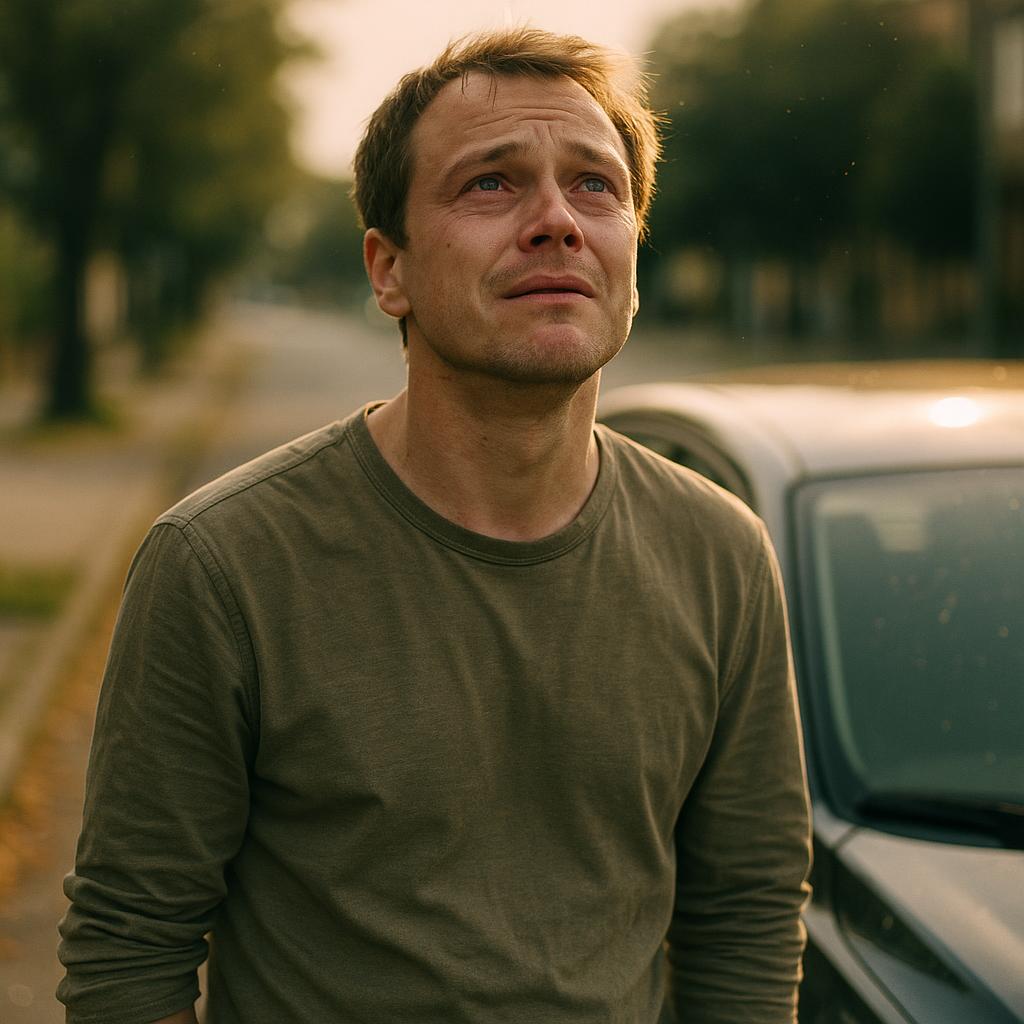 Image by RM AI
Image by RM AI
Reunion
The detective led me down a narrow hallway, each step feeling like I was walking through molasses. "He's in here," she said softly, opening a door to what looked like a break room. And there he was – my son, my Noah, sitting small and uncertain at a table meant for adults, his legs dangling nowhere near the floor. He was wrapped in a police-issued blanket that swallowed his tiny frame, clutching a juice box with both hands like it was keeping him anchored to this world. When our eyes met, time stood perfectly still. His eyes widened, recognition flooding his face like sunrise. "Daddy?" he whispered, so quietly I almost missed it. Then louder, "DADDY!" The juice box tumbled forgotten to the floor as he launched himself across the room and into my arms. I caught him mid-air, his small body colliding with mine with such force it nearly knocked me over. I couldn't stop the tears that came then, hot and fast, soaking into his hair as I held him tighter than I'd ever held anything in my life. "I thought you didn't want me anymore," he sobbed into my shoulder, his little hands gripping my shirt like he was afraid I'd disappear. "Mommy said you were gone forever." Those words cut deeper than any knife could. What kind of monster tells a child his father doesn't want him? As I rocked my son back and forth in that sterile police station room, I made a silent promise that no one – not Isabel, not the courts, not anyone – would ever separate us again. But even as Noah's tears soaked my shirt, I couldn't shake the feeling that getting him back was just the beginning of our battle.
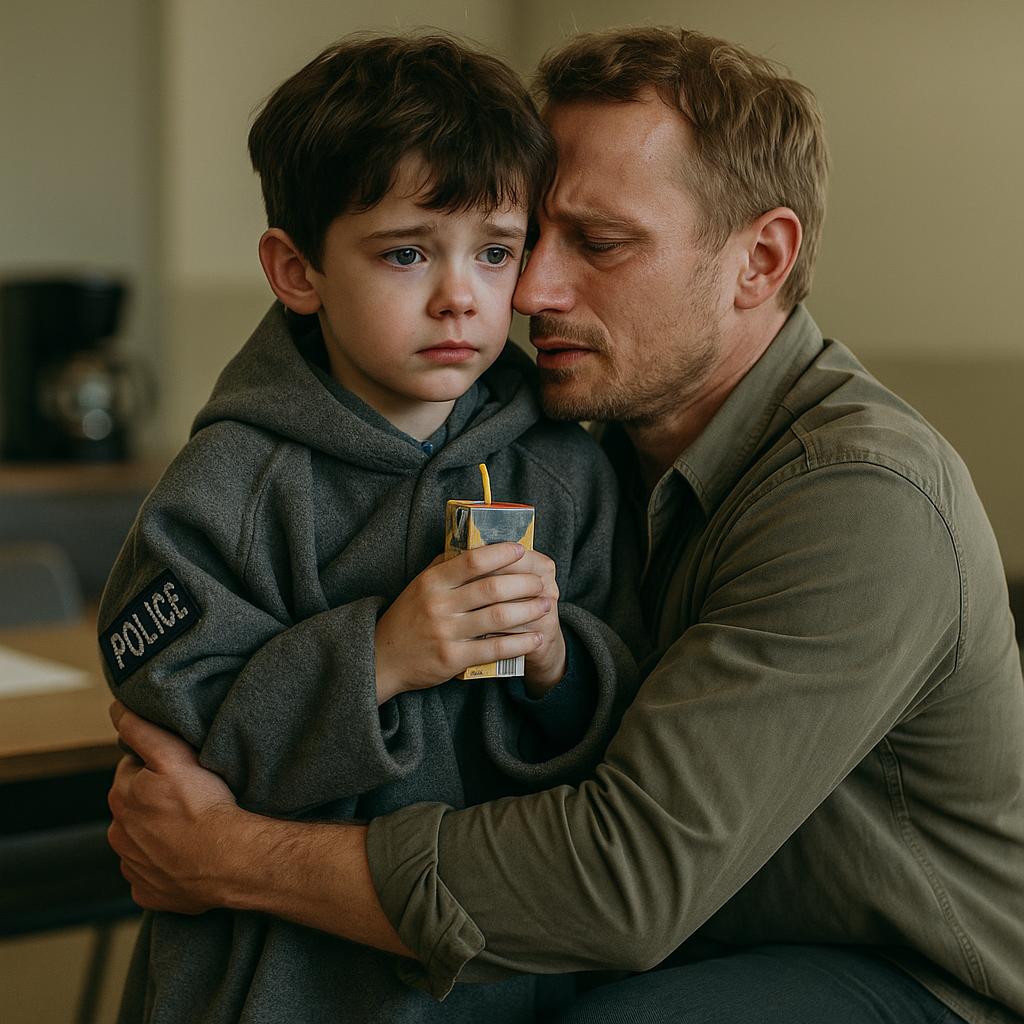 Image by RM AI
Image by RM AI
Noah's Story
The social worker, a kind-faced woman named Ms. Reyes, sat quietly in the corner as Noah curled against my side on the small couch. His voice was small but steady as he pieced together the nightmare of the last few months. "Mommy said we were going on a special trip," he explained, fidgeting with the zipper of his dinosaur hoodie. "She said you were too busy for us now." Each word was like a dagger to my heart. Noah described how Isabel drove him to Richmond, how she left him with Marcel and Ashley, and how they told him to call them Mommy and Daddy now. "They said you didn't want to be my daddy anymore," he whispered, his eyes filling with tears. "I cried a lot at first, but then they got mad when I did." The most chilling part came when he mentioned attending his own funeral. "We went to this party where everyone was sad about a boy with my name," he said, confusion clouding his face. "Aunt Ashley kept telling me to be super quiet. She said it was a game we had to play." I held him tighter, fighting back my own tears as Ms. Reyes scribbled notes. How do you explain to a five-year-old that his mother faked his death? That she sold him like property? As Noah continued his fragmented story, I realized we had a long road of healing ahead – and that Isabel's betrayal ran even deeper than I'd imagined.
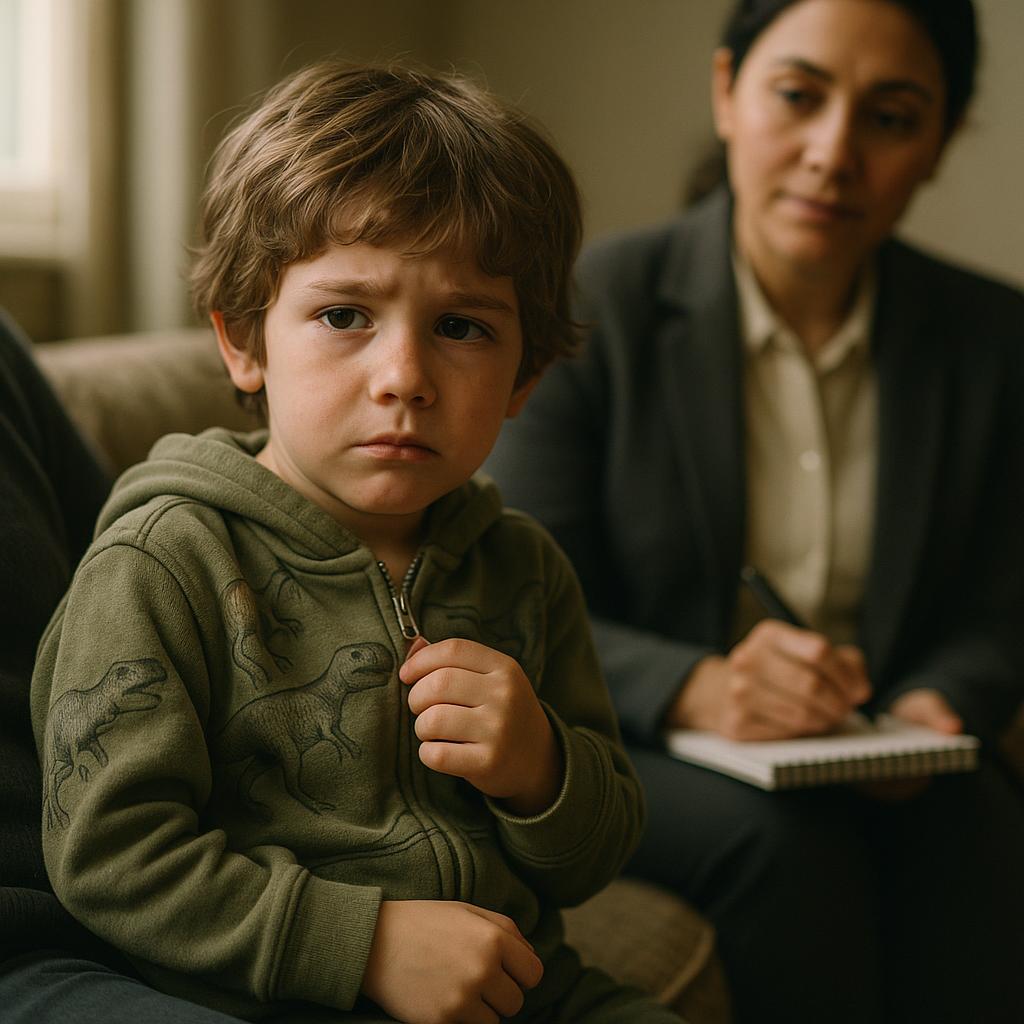 Image by RM AI
Image by RM AI
Marcel's Confession
Detective Morales sat across from me in the station's small conference room, a manila folder open between us. "Marcel broke pretty quickly," she said, sliding over documents with highlighted sections. "The whole story came out." I stared at the bank statement showing a $40,000 transfer from Marcel to Isabel dated three days before Noah's 'funeral.' My stomach turned. "She sold him? Like he was a car or something?" My voice cracked as the reality hit me. Morales nodded grimly. "Marcel and Ashley couldn't conceive. They'd been trying for years, spent a fortune on fertility treatments. Isabel knew this and saw an opportunity." She pushed another document toward me – a fake adoption certificate with forged signatures. "They created this whole paper trail, but nothing was legal." I ran my hands through my hair, trying to process it all. "But who called me? Who told me Noah was alive?" Morales's expression softened slightly. "Ashley did. Apparently, she couldn't live with the guilt anymore. Noah kept asking for you, crying at night. She said watching him call Marcel 'Daddy' while knowing you thought your son was dead became too much for her conscience." I sat back, stunned. The woman I'd watched from my car, the one I'd hated for stealing my son's love – she was the reason I'd found him. "What happens to Isabel now?" I asked, my voice barely above a whisper. Morales closed the folder with a finality that sent chills down my spine. "Mr. Lawson, what your ex-wife did crosses so many legal lines that she'll be lucky if she sees the outside of a prison before Noah graduates high school."
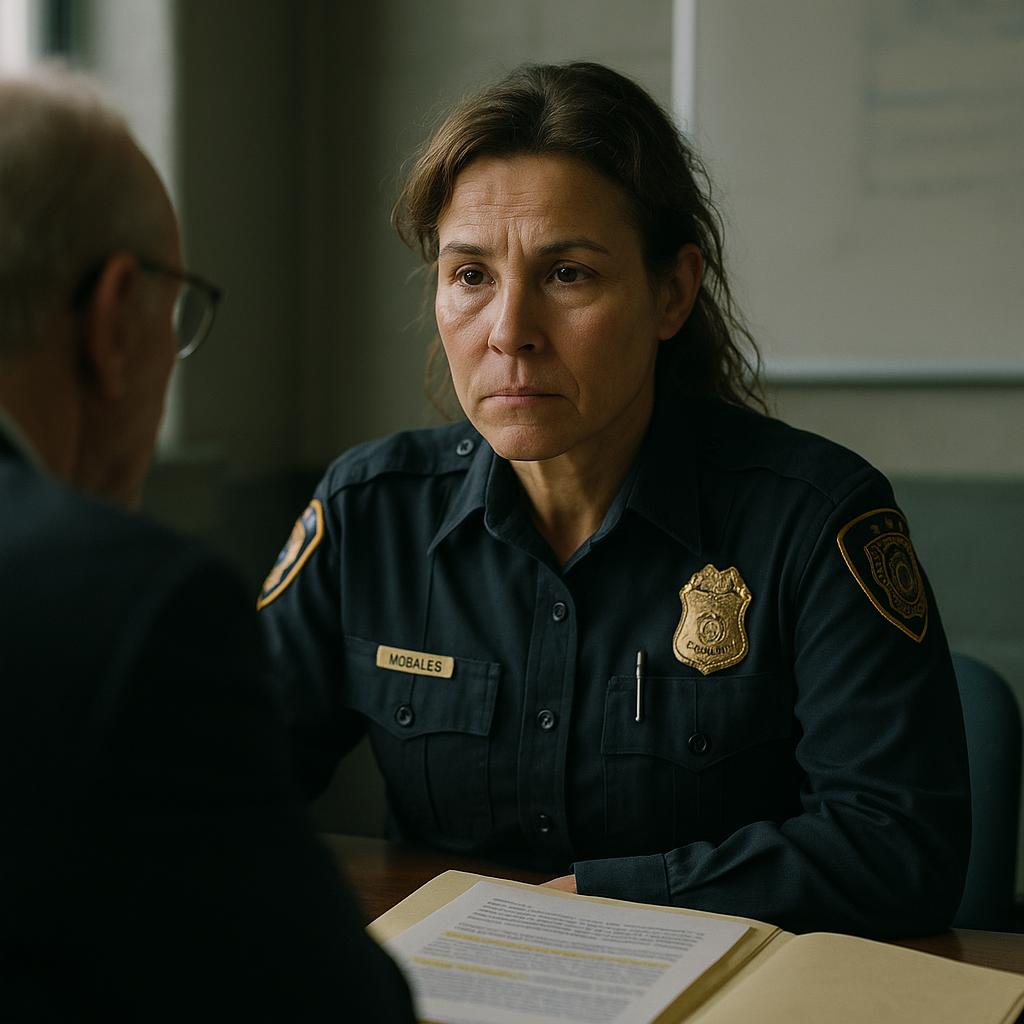 Image by RM AI
Image by RM AI
Ashley's Testimony
I sat across from Ashley in a small interview room at the police station, watching her twist a tissue between trembling fingers. Her designer clothes looked rumpled, her eyes red-rimmed from crying. "I never wanted to hurt anyone," she whispered, voice breaking. "We tried for seven years to have a baby. Seven years of treatments, disappointments, thousands of dollars..." She described how Isabel approached them with the "arrangement" – a word that made my skin crawl. "At first, it seemed like everyone would win. Isabel didn't want to be a mom anymore, we desperately wanted a child, and Noah would have a stable home." But reality quickly shattered that fantasy. Ashley's eyes filled with fresh tears as she described Noah crying himself to sleep, clutching a faded photo of me he'd somehow managed to hide in his backpack. "He'd ask when his real daddy was coming back. Isabel would video call sometimes, and when I mentioned Noah was struggling, she'd just say 'kids are resilient' and change the subject." The breaking point came three weeks ago. "Noah had a nightmare and kept calling for you. When I told Marcel we needed to make this right, he..." her voice faltered, "he said if I ruined this for us, he'd leave me with nothing." She looked up, meeting my eyes directly for the first time. "I couldn't live with myself anymore. Not when that little boy's heart was breaking every single day." What she said next would change everything about how I understood what had happened to my son.
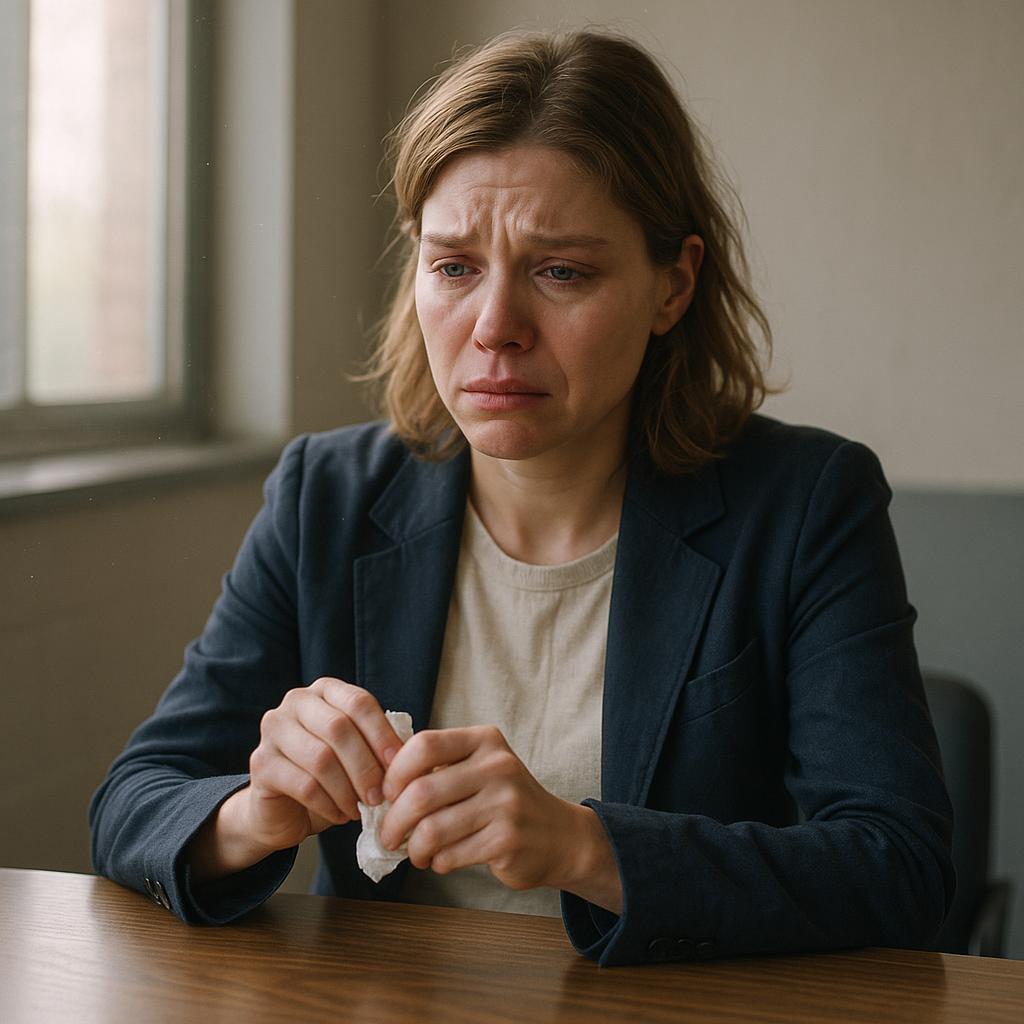 Image by RM AI
Image by RM AI
The Fake Funeral
Ashley's hands trembled as she pulled out her phone, scrolling to a folder labeled 'Arrangements.' 'Isabel planned everything down to the last detail,' she said, showing me texts that made my blood run cold. The funeral director—a cousin of Isabel's college roommate—had agreed to the whole charade for $2,000 cash. 'He never asked for a death certificate,' Ashley whispered. 'Just took the money and nodded when Isabel said it was "complicated."' She described how they kept Noah at a Holiday Inn twenty miles from the funeral home, bribing him with ice cream and new toys while strangers mourned his non-existence. 'The urn was empty,' she continued, her voice breaking. 'Isabel bought it online. She even practiced looking sad in the mirror the night before.' When I asked the question that had been burning inside me—why would a mother do this to her own child, to me—Ashley just looked down at her hands. 'She told Marcel once, after too many glasses of wine, that being a mom was "suffocating her potential." She wanted the money but not the responsibility.' She paused, meeting my eyes. 'And she knew you'd never stop fighting for him if you thought he was alive.' The realization hit me like a physical blow—Isabel hadn't just sold our son; she'd murdered him on paper to make sure I'd stop looking.
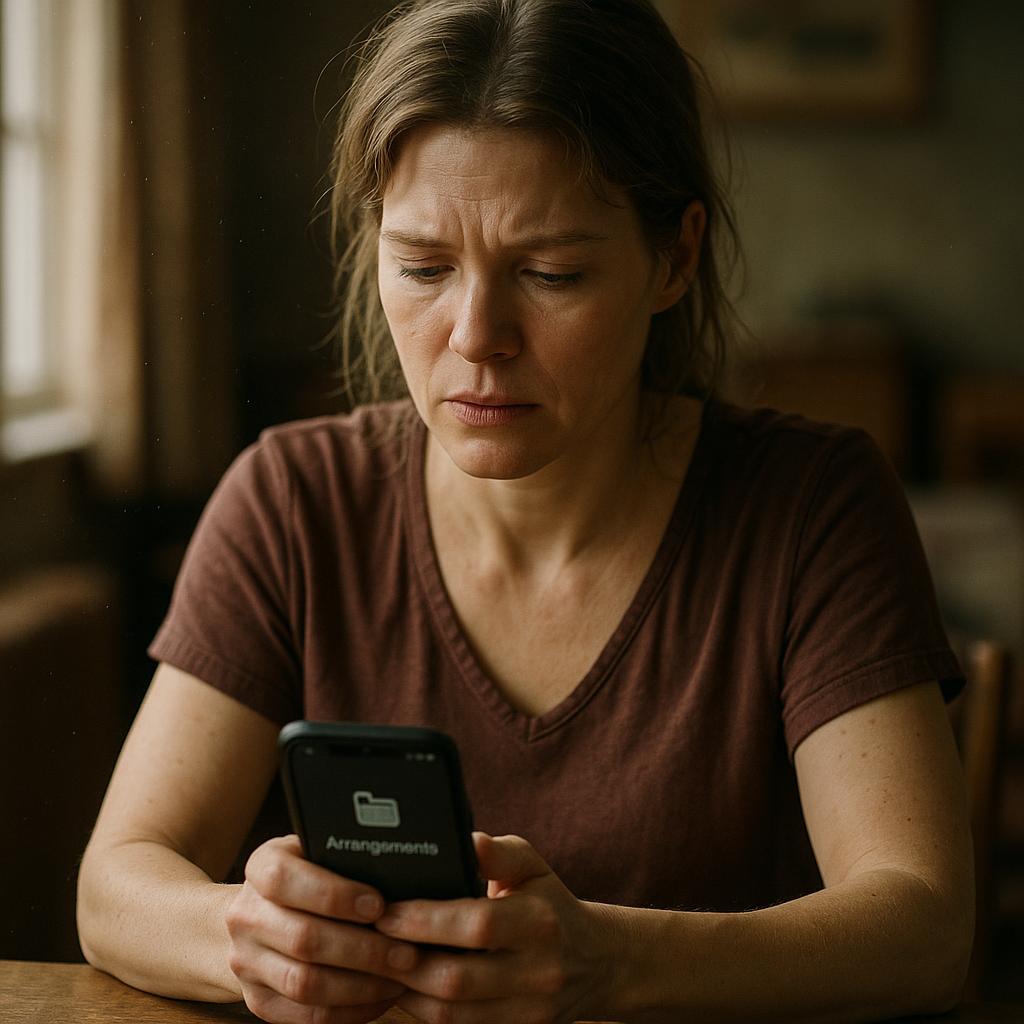 Image by RM AI
Image by RM AI
Isabel's Arrest
Detective Morales called me at 6 AM, her voice carrying a mix of professional satisfaction and genuine empathy. "We got her, Mark. Isabel was arrested at her apartment in Tennessee about an hour ago." I sat on the edge of my bed, Noah still sleeping peacefully in the next room, and felt a strange hollowness where I expected triumph to be. "How did she react?" I asked, my voice barely above a whisper. Morales sighed. "Like a cornered animal. Denied everything at first, then tried throwing Marcel under the bus completely. Said he 'forced her' into the arrangement." Later that day, at the station, Morales slid her tablet across the table to show me Isabel's booking photo. I barely recognized the woman I'd once loved, once built a life with. Her expression wasn't fearful or remorseful – it was calculating, cold, annoyed at the inconvenience. So different from the grieving mother who'd dabbed at dry eyes at our son's fake funeral. "The bank records tell a different story," Morales explained. "Forty thousand dollars, split into four payments. She even haggled with them for more money when Noah kept asking for you." I pushed the tablet away, suddenly nauseated. What kind of mother erases her child from existence? What kind of person sells their own flesh and blood? The reality of what Isabel had done – not just to me, but to our innocent son – crashed over me like a tidal wave. But the worst part? I still had to figure out how to explain to Noah why his mommy wasn't coming back.
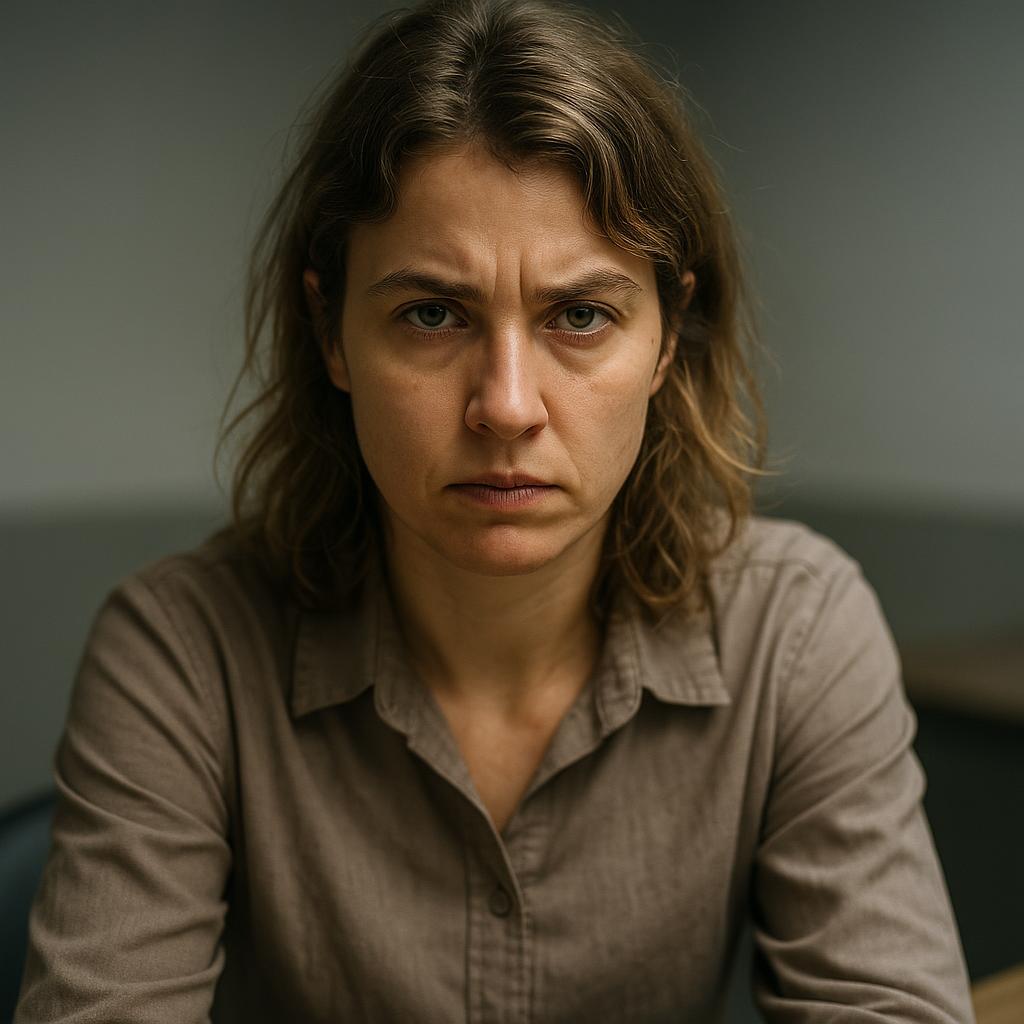 Image by RM AI
Image by RM AI
Legal Aftermath
The district attorney, a stern woman with kind eyes, laid out the charges against Isabel and Marcel in her office the next morning. 'Fraud, falsifying death records, child endangerment, and potential human trafficking charges,' she listed, each word landing like a hammer blow. 'What they did was essentially sell a human being.' I sat there, Noah's small hand in mine, trying to process it all. The emergency custody papers sat on the desk between us, my signature still drying. 'Mr. Lawson,' she said, leaning forward, 'you have the option to press additional charges. Given the psychological trauma inflicted on your son...' She trailed off, glancing at Noah who was quietly coloring in the corner, blissfully unaware of the adult conversation. That night, in our sterile hotel room with its too-firm beds and humming air conditioner, I was still weighing my options when Noah's screams tore through the darkness. 'DADDY! DON'T LET THEM TAKE ME AGAIN!' he sobbed as I gathered him into my arms, his little body trembling violently. 'I'm here, buddy. I'm right here,' I whispered, rocking him back and forth. As his breathing slowly steadied, I realized the true cost of Isabel's betrayal wasn't measured in legal charges or prison sentences – it was in the terror that now lived in my five-year-old's eyes.
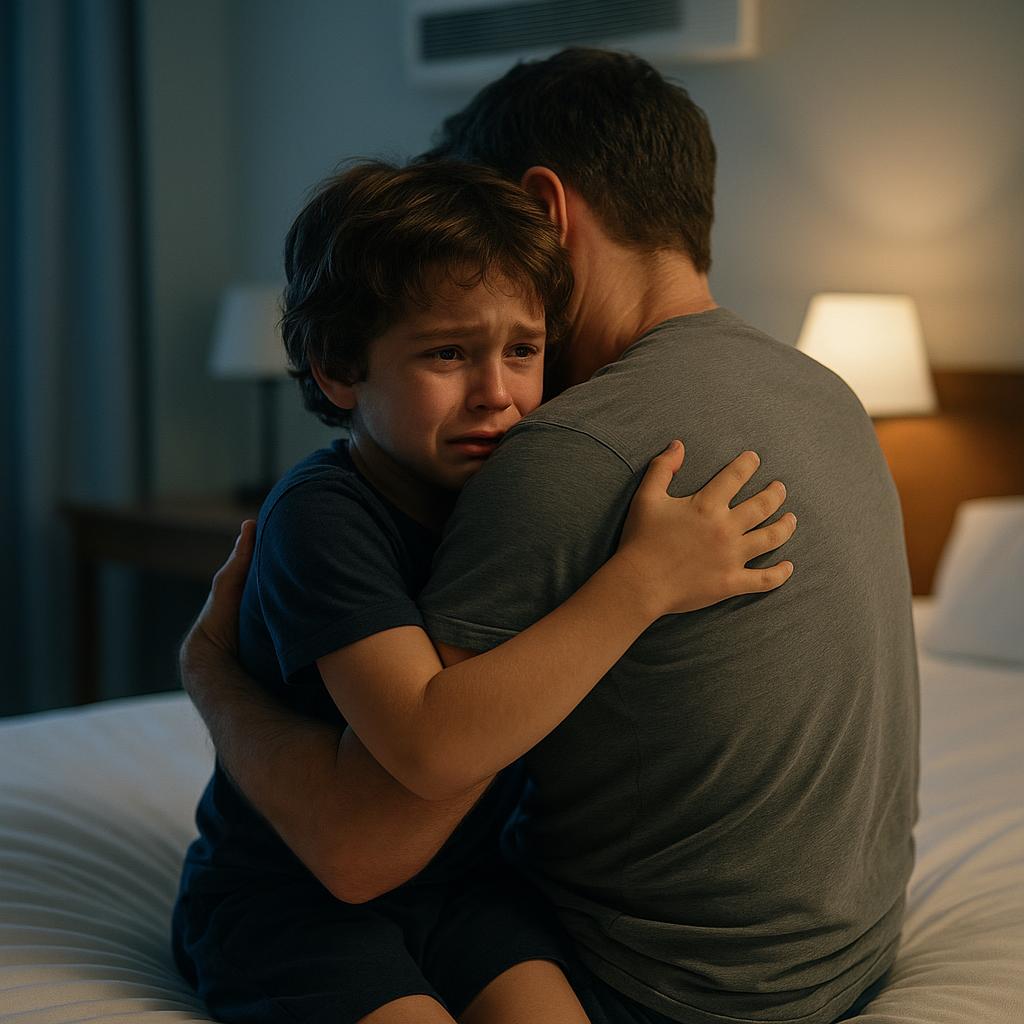 Image by RM AI
Image by RM AI
Going Home
After three grueling days in Richmond—days filled with police statements, preliminary hearings, and social workers asking Noah the same painful questions over and over—we were finally heading home. The seven-hour drive back to North Carolina stretched before us like a blank canvas, one I hoped we could fill with something resembling normalcy. Noah's questions came in waves from the backseat, each one more difficult to answer than the last. "Is Mommy coming to live with us too?" he asked, his voice small against the hum of highway noise. I gripped the steering wheel tighter, choosing my words carefully. How do you tell a five-year-old that his mother sold him? That she pretended he was dead? "Mommy... did some things that weren't right, buddy. She's going to be away for a while." When we finally pulled up to my apartment complex, exhaustion weighing on both of us, I saw Noah's face fall as we walked through the door. My bachelor pad—with its sparse furniture, empty refrigerator, and complete lack of toys—suddenly looked as depressing as it truly was. No dinosaur sheets. No colorful plastic cups. Nothing that said a child belonged here. "Where's my room?" Noah whispered, clutching his small backpack of belongings—all he had left in the world. The look in his eyes nearly broke me. I'd gotten my son back, but I had no idea how to give him the home he deserved.
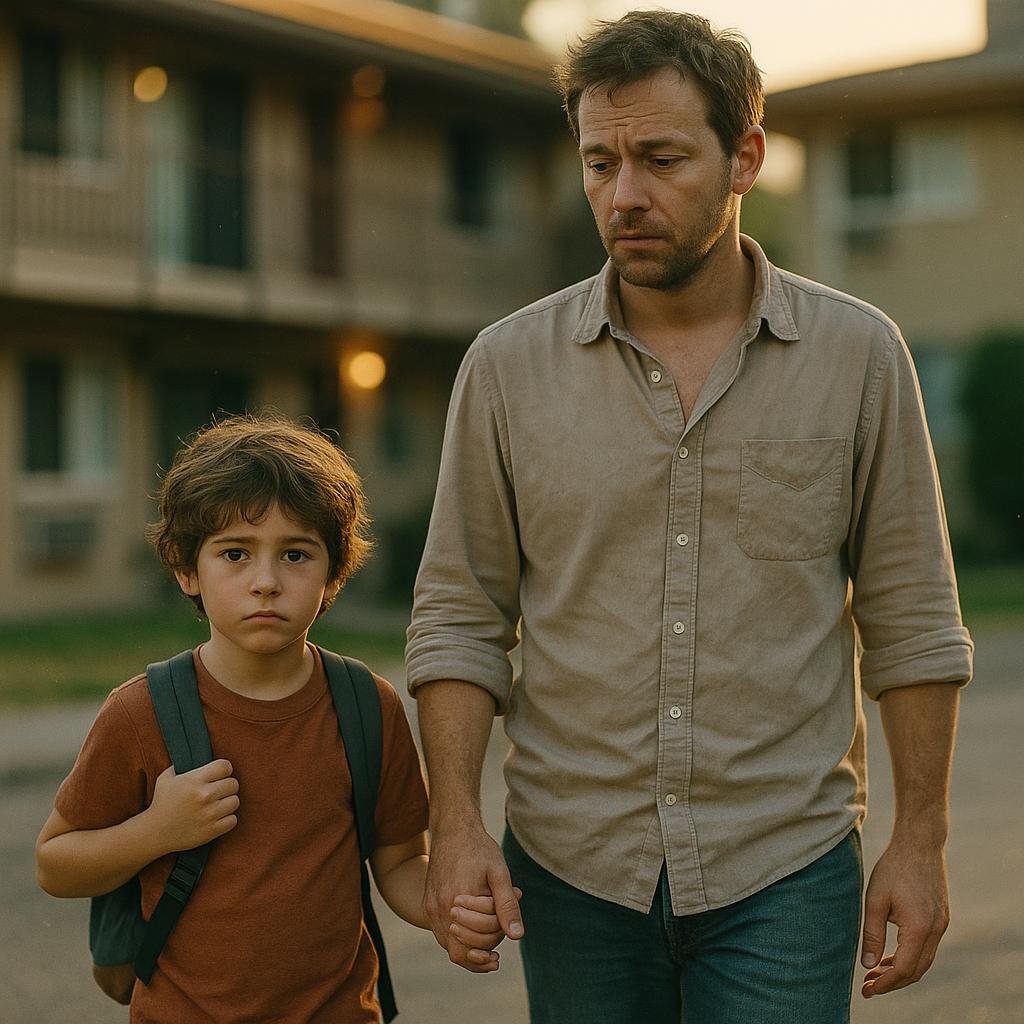 Image by RM AI
Image by RM AI
Building a New Life
I called my supervisor at the warehouse the next morning, my voice still raw from the emotional rollercoaster of the past few days. "Mark, take all the time you need," he said after I explained the situation. "Family comes first." That first day back home, I realized how utterly unprepared I was to be a full-time dad again. Noah had nothing – no clothes that fit, no toys, not even a proper bed. We headed to Target, where I watched him hesitantly touch action figures and dinosaur pajamas, as if afraid to ask for anything. "It's okay, buddy. Pick whatever you want," I told him, my heart breaking at his uncertainty. When we reached the bedding section, he pointed at sheets covered with T-Rexes and Triceratops. "Can I have dinosaurs in my room like before?" he asked quietly. I swallowed hard, realizing how much of his life I'd missed – his favorite colors, his bedtime routine, whether he still liked the crusts cut off his sandwiches. "We can do better than sheets," I promised. "We'll paint actual dinosaurs on your walls." That afternoon, my phone exploded with texts from coworkers who'd heard the impossible story. By evening, they'd organized a collection – gift cards, a barely-used PlayStation, even a handmade bookshelf from Joe in shipping. As Noah fell asleep that night on his new dinosaur sheets, clutching the stuffed Stegosaurus my team had sent, I made a silent vow: I would learn everything about my son – not just who he was before, but who he was becoming now. What I didn't know was that Isabel had one more devastating card to play.
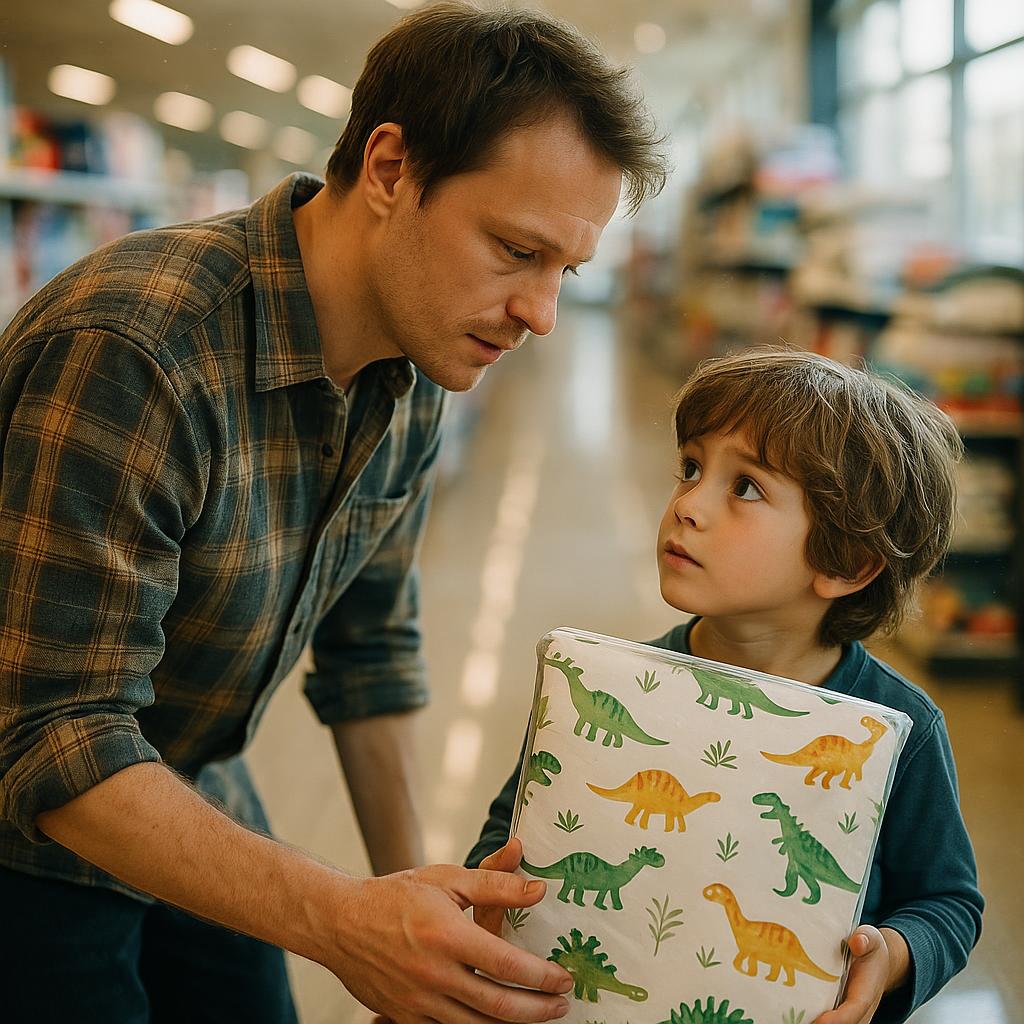 Image by RM AI
Image by RM AI
Noah's Nightmares
The first night Noah was truly home, I woke to screams that made my blood run cold. I found him tangled in his new dinosaur sheets, eyes wide with terror but not fully awake. "Don't let them take me again!" he sobbed as I gathered him into my arms. These nightmares became our nightly ritual – sometimes about "Aunt Ashley's house" where they'd lock his door at night, sometimes about Isabel yelling that "Daddy doesn't want you anymore." Dr. Winters, the child psychologist with kind eyes and a voice like warm honey, suggested we establish rock-solid routines. "Predictability creates security," she explained while Noah built a Lego tower in the corner of her office. "Right now, his world feels dangerously unpredictable." We created charts with colorful stickers for morning and bedtime routines, but nothing seemed to keep the nightmares at bay. One night, as I tucked him in, Noah looked up at me with those serious eyes that seemed too old for his five-year-old face. "Is Mommy coming to take me away again?" he whispered. My heart shattered into a million pieces. How do you explain to a child that his mother is in jail for selling him? "No, buddy," I said, stroking his hair. "Mommy did some things that weren't right, and now she has to face consequences. But you're staying with me." That night, he refused to sleep in his own bed, dragging his dinosaur pillow into my room. "I need to see you," he explained with devastating simplicity. "If I can't see you, you might disappear." As he finally drifted off beside me, his small hand clutching my t-shirt, I realized the legal battle might be over, but the war for Noah's sense of security had just begun.
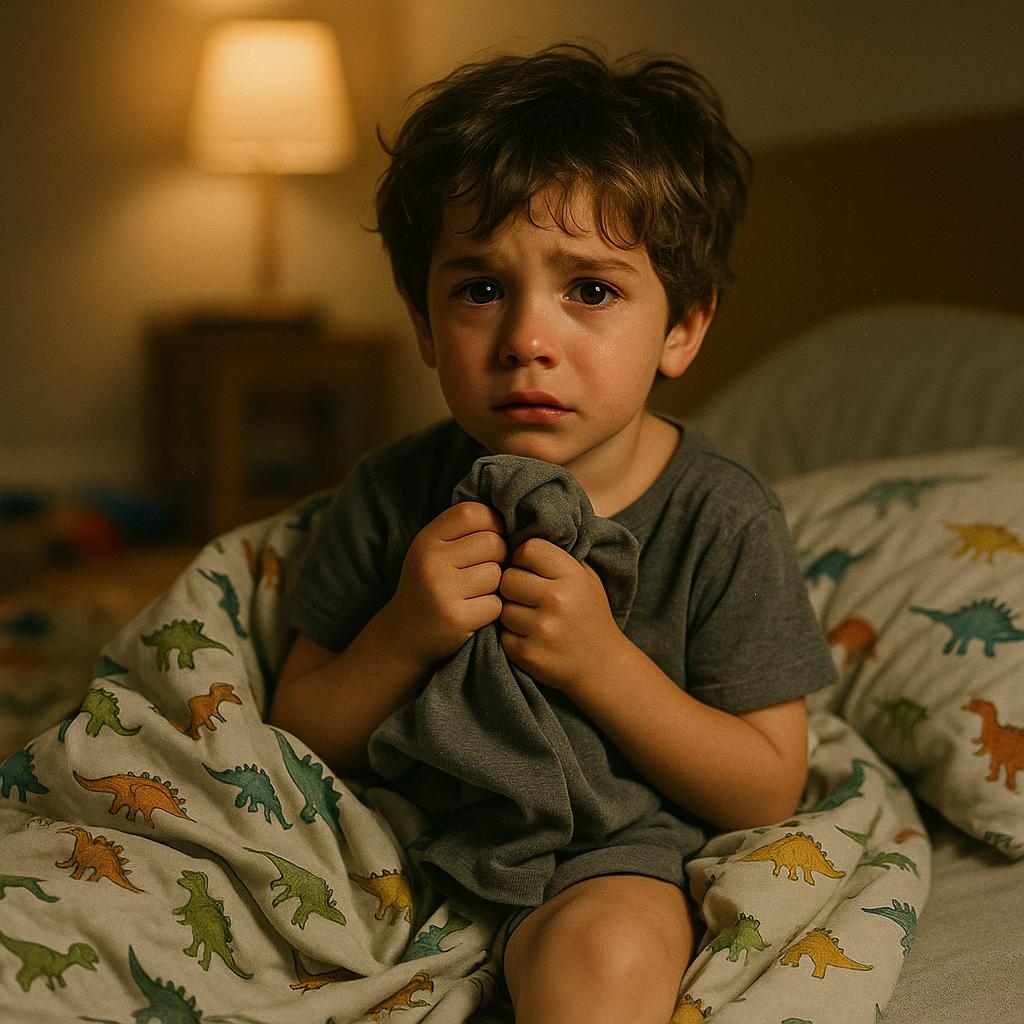 Image by RM AI
Image by RM AI
The Media Circus
I never expected our story to go viral, but three days after Isabel's arrest, the media descended like vultures. I opened my blinds one morning to find a news van parked outside our apartment building, a reporter with perfect hair doing a stand-up about the 'shocking case of a mother who sold her own child.' By afternoon, there were three more vans. My phone wouldn't stop ringing with calls from numbers I didn't recognize. 'Daddy, why are those people taking pictures of our windows?' Noah asked, his voice small and frightened. I pulled the blinds shut, trying to shield him from the circus our lives had become. The next day, I took Noah to the playground, thinking we could escape the madness for an hour. Big mistake. A reporter with a telephoto lens crouched behind the slide, trying to snap photos of my son. Something in me snapped. I lunged at him, grabbing his camera and nearly throwing it to the ground before two other dads pulled me back. 'He's just a kid!' I shouted, my voice breaking. 'Leave him alone!' That night, as Noah hid under his dinosaur blanket when someone knocked on our door for the fifth time, my phone rang again. This time, I answered. 'Mr. Lawson? This is Diane from Morning America Today. We'd like to feature your incredible story on our show next week. We can fly you and Noah to New York, all expenses paid.' As I listened to her pitch about 'sharing our journey' and 'inspiring others,' I watched Noah peeking fearfully from his bedroom doorway, and realized we were facing a new kind of danger I hadn't prepared for.
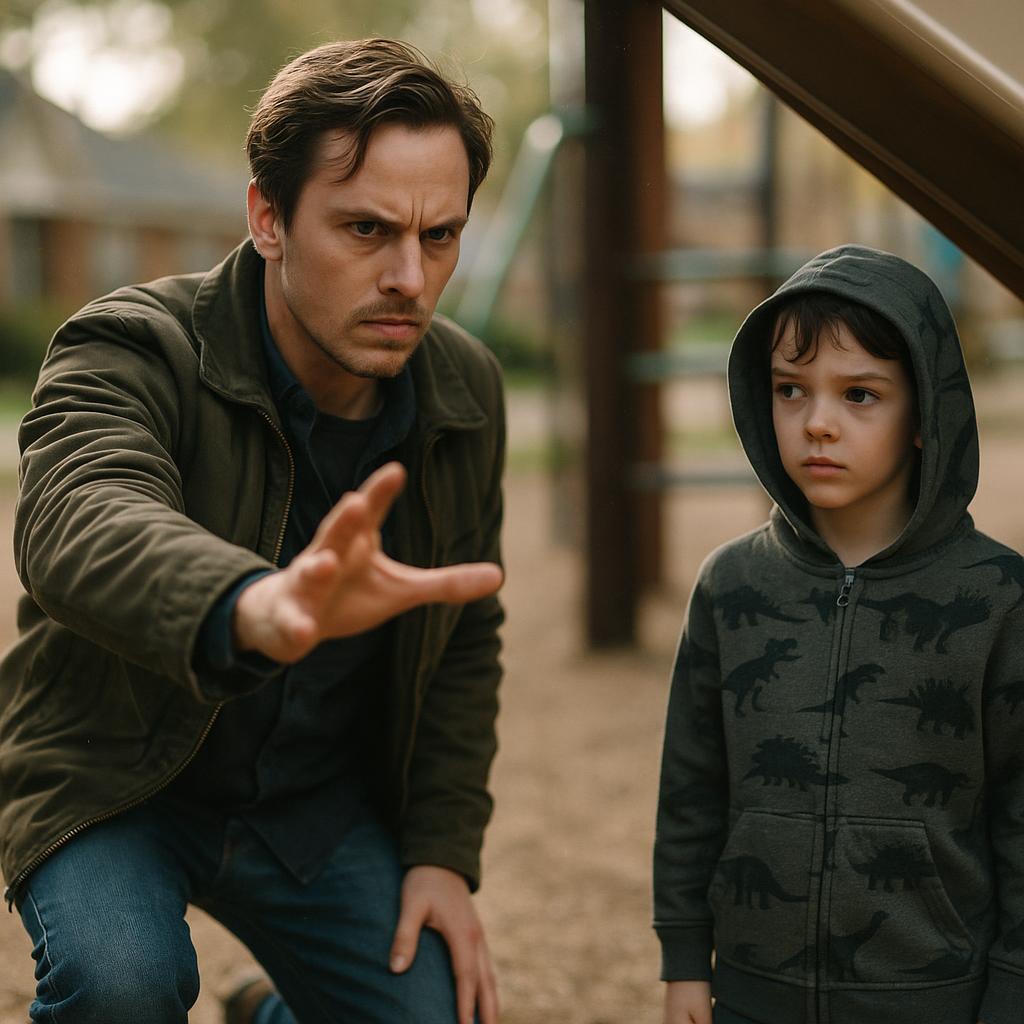 Image by RM AI
Image by RM AI
Isabel's Defense
I was making Noah's favorite dinosaur-shaped pancakes when my phone buzzed with a text from Detective Morales: 'Turn on Channel 7.' My stomach dropped as Isabel's lawyer appeared on screen, a polished woman in a navy suit with perfectly styled hair. 'My client was suffering from severe postpartum depression that went untreated for years,' she declared to the cameras. 'Combined with financial abandonment from her ex-husband, Ms. Lawson made decisions while in a state of psychological distress.' I nearly burned the pancakes watching this complete rewriting of history. Suddenly, Isabel wasn't a monster who sold our son—she was a struggling mother failed by the system and by me. Social media exploded with hot takes from people who knew nothing about us. 'Maybe the dad wasn't in the picture enough,' one comment read. 'No mother would do this unless she was desperate.' The worst moment came when Noah wandered in during a news segment. The TV showed Isabel's college graduation photo—smiling, innocent-looking—as a commentator questioned whether I was 'using this tragedy for attention.' 'Daddy,' Noah asked, his voice small, 'why do they say Mommy was sick? Is that why she gave me away?' I turned off the TV, kneeling to his level, searching for words that wouldn't come. How do you explain to a five-year-old that his mother is trying to convince the world—and maybe herself—that selling him was an act of desperation rather than cold calculation? What I didn't know then was that Isabel's PR campaign was just beginning, and she had saved her most devastating accusation against me for last.
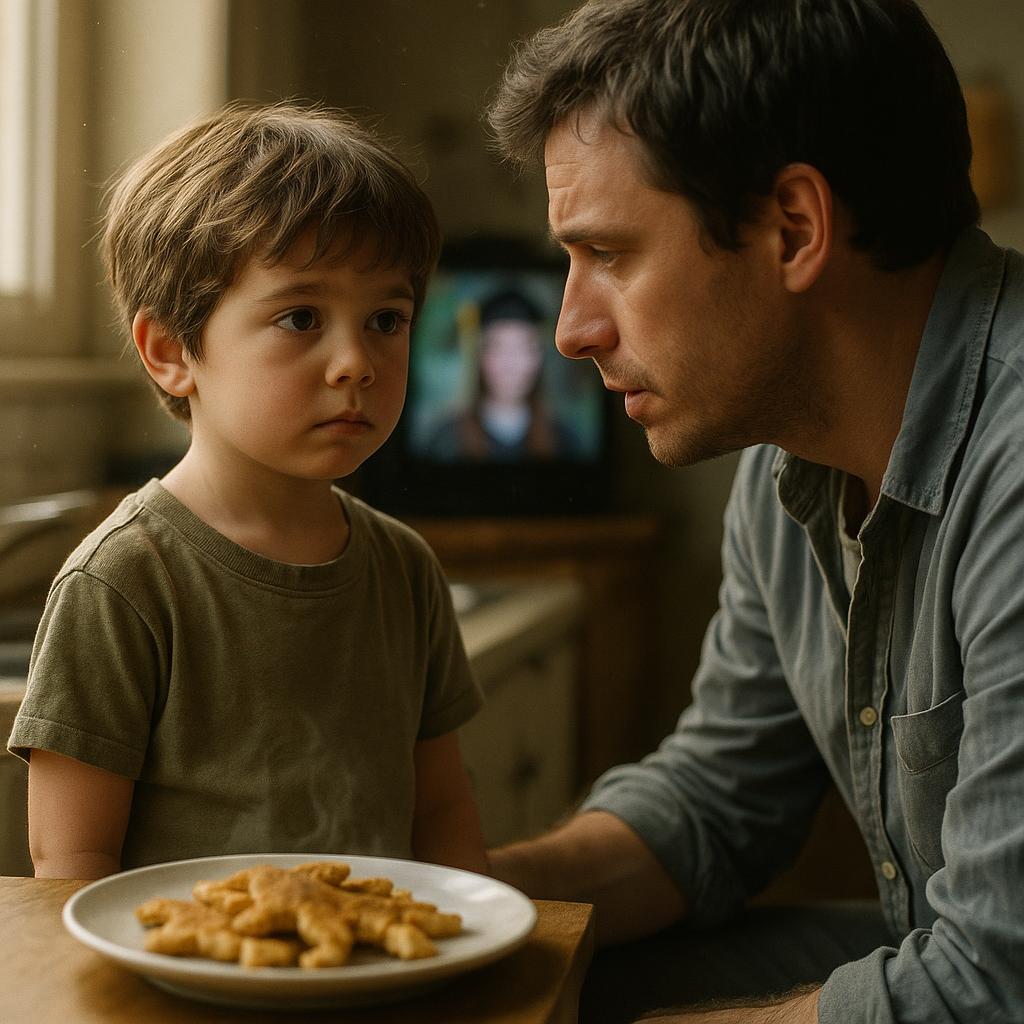 Image by RM AI
Image by RM AI
Finding Support
After weeks of drowning in media attention and legal paperwork, I finally broke down and Googled 'single dad support groups' at 2 AM. That's how I found myself sitting awkwardly in a church basement the following Thursday, surrounded by men clutching coffee cups like lifelines. 'First time's the hardest,' said Michael, a bearded guy in his forties who'd fought his ex-wife for three years to get shared custody. 'The system isn't built for dads.' When I shared Noah's story—leaving out the parts that had made national news—the room went silent. Then, one by one, they offered practical help instead of pity. Michael knew a lawyer who specialized in cases like mine. Dave suggested a therapist who worked wonders with his daughter after their divorce. When Noah started having meltdowns at his new preschool, it was Raj who saved us with a simple suggestion: 'My son carried a small photo of me in his pocket. Whenever he felt scared, he'd touch it and remember I was coming back.' The photo trick worked like magic for Noah. These men became my lifeline—texting me encouragement on court days, dropping off outgrown clothes and toys, even helping paint those promised dinosaurs on Noah's bedroom walls. For the first time since finding my son alive, I didn't feel like I was drowning alone. What I didn't realize was how much I'd need this newfound support when Isabel's lawyer filed the motion that would threaten everything we'd rebuilt.
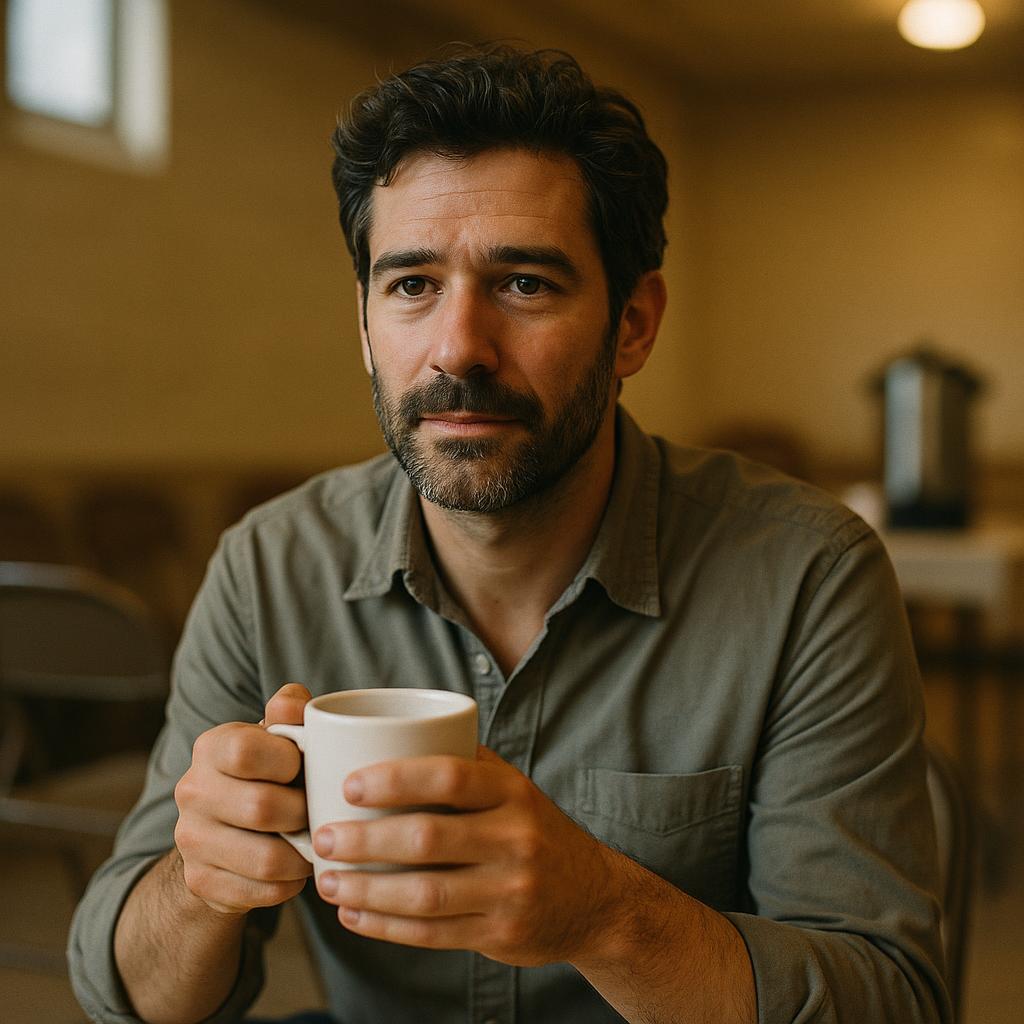 Image by RM AI
Image by RM AI
The Preliminary Hearing
The courthouse felt like it was closing in on me as I walked through the metal detectors. Today was the day I'd face Isabel—not as my ex-wife or Noah's mother, but as the woman who'd sold our son and faked his death. My support group had offered to come, but this was something I needed to do alone. The courtroom was smaller than I expected, with harsh fluorescent lighting that made everyone look sickly. When they brought Isabel in, our eyes locked for a split second. There was no remorse there—just cold calculation behind her perfectly applied makeup. Her lawyer had dressed her in a modest blue dress that screamed 'struggling mother,' a far cry from the designer clothes she usually wore. Marcel shuffled in behind her, looking utterly broken. He stared at the floor, shoulders slumped, refusing to acknowledge anyone. The proceedings moved quickly, with the prosecutor methodically laying out the evidence—the bank transfers, the fake funeral arrangements, the forged documents. Isabel's lawyer painted her as a victim of circumstance, a struggling single mother who'd made a terrible mistake while suffering from untreated depression. I nearly laughed out loud at the absurdity. When the judge denied bail for both of them, citing flight risk, Isabel's carefully constructed facade finally cracked. "He's lying!" she screamed, pointing at me across the courtroom. "Mark was abusive! I was protecting Noah!" As security rushed to restrain her, I realized with horror that this was just the beginning of her desperate attempt to rewrite our history.
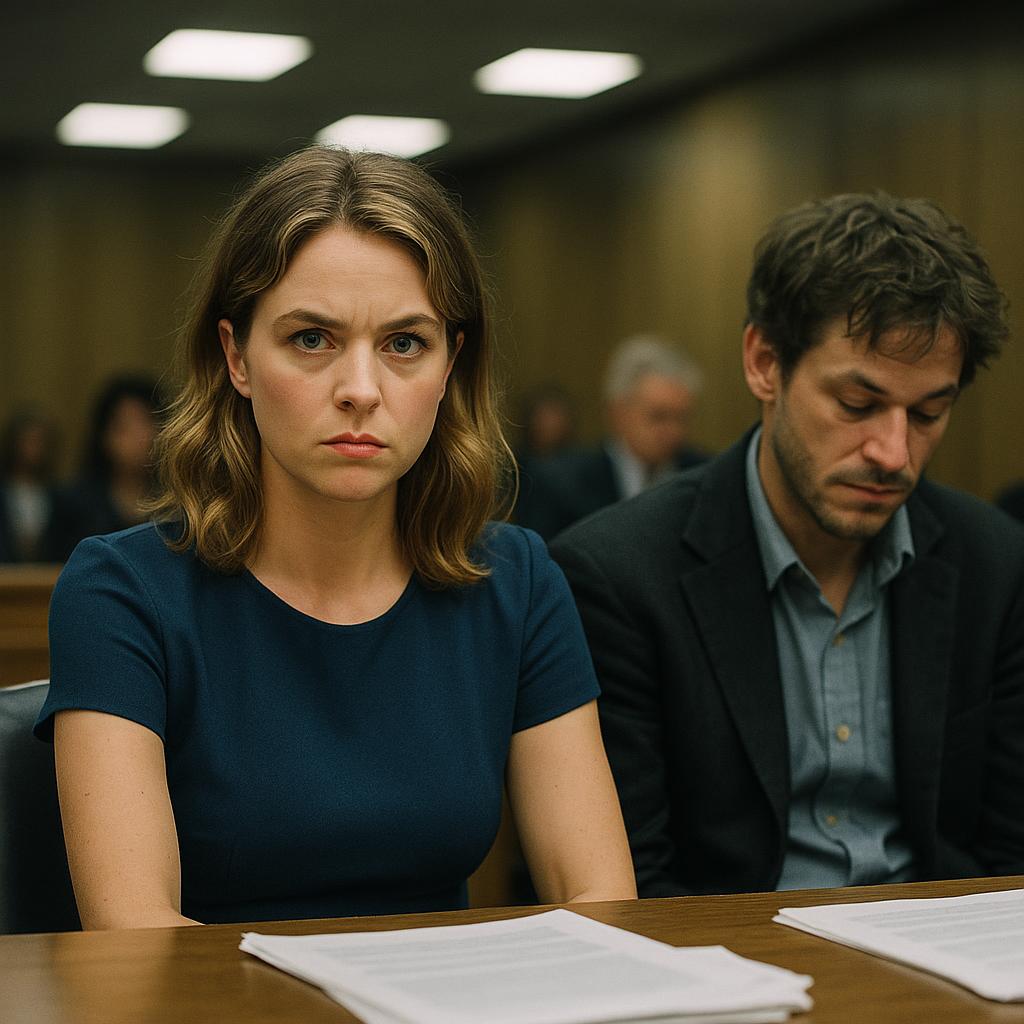 Image by RM AI
Image by RM AI
Ashley's Decision
The email from Ashley's lawyer arrived on a Tuesday morning, its formal language masking the bombshell inside: 'My client wishes to meet with Noah before entering witness protection.' I stared at my phone, coffee growing cold beside me, as conflicting emotions battled in my chest. Ashley—the woman who had helped perpetuate the lie about my son's death but ultimately became the whistleblower who saved him—wanted to say goodbye. Part of me wanted to delete the email and shield Noah from any more trauma. But another part wondered if this might provide some closure for my son, who still sometimes asked about 'Aunt Ashley' in the middle of the night. I called Dr. Linden that afternoon while Noah was at his new preschool. 'Children need narrative coherence to process trauma,' she explained gently. 'Meeting Ashley might help Noah understand that chapter of his life is truly ending.' Her words made sense, but the decision still felt impossible. That night, as I tucked Noah into his dinosaur sheets, he looked up at me with those eyes that seemed to hold wisdom beyond his years. 'Daddy, are the bad people still trying to take me?' he whispered. My heart cracked open. How could I explain that the woman who had both harmed and helped him wanted to say goodbye? And more importantly—would seeing her heal my son's wounds or reopen them?
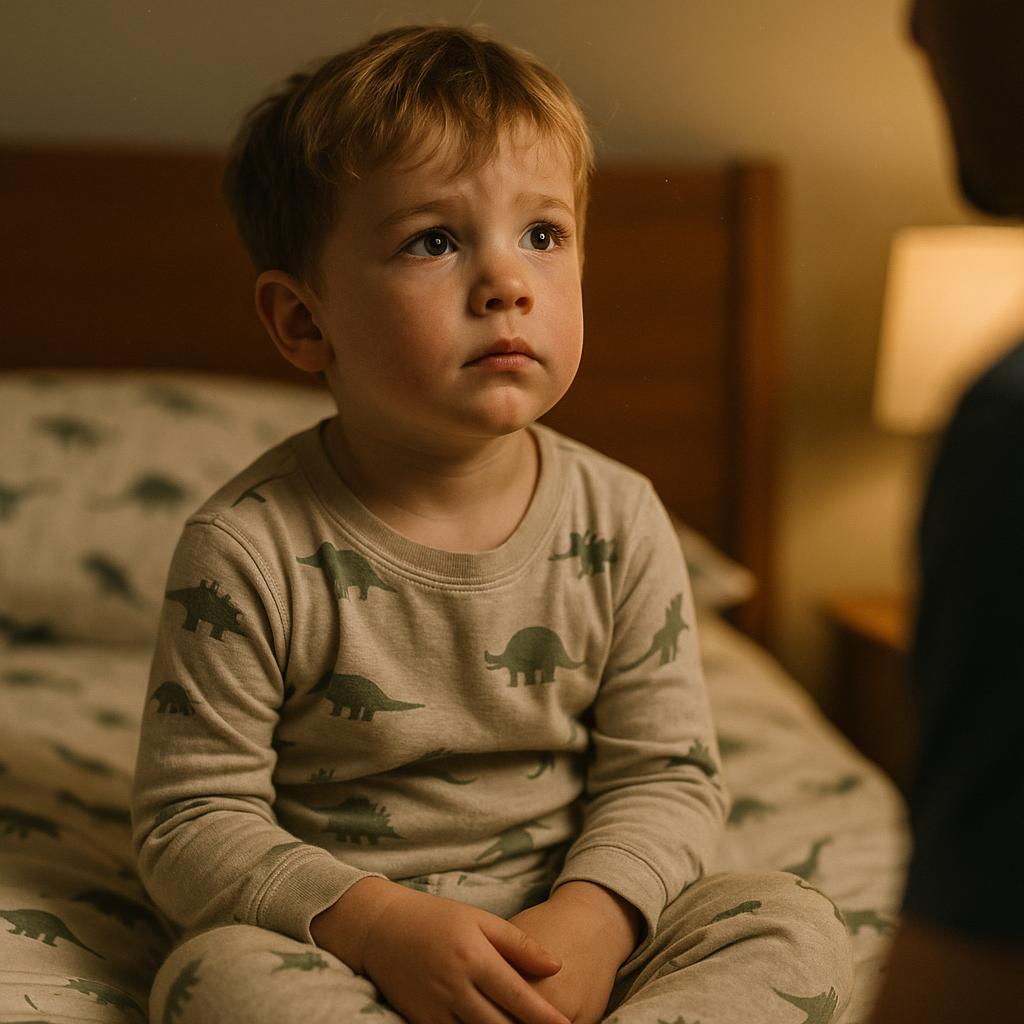 Image by RM AI
Image by RM AI
Noah Meets Ashley
After days of deliberation, I finally agreed to let Noah meet Ashley at Dr. Linden's office. The room was neutral territory – soft lighting, comfortable chairs, and a corner full of toys where Noah immediately gravitated. When Ashley walked in, her eyes red-rimmed and hands trembling, I felt a confusing mix of gratitude and anger. This woman had participated in my nightmare but ultimately ended it too. Noah looked up from the toy dinosaurs he was arranging, his expression puzzled. "Why aren't you Mommy anymore?" he asked her, so innocently it made my chest ache. Ashley knelt down to his level, tears streaming freely now. "I made a big mistake, Noah," she said, her voice barely above a whisper. "I pretended to be something I wasn't supposed to be. Your real daddy missed you so much." Noah tilted his head, processing this in that remarkable way children do. "Were you the one who called my daddy?" he asked. When Ashley nodded, something extraordinary happened. My son – who still woke up screaming most nights – walked over and wrapped his small arms around her neck. "Thank you for bringing my daddy back," he said simply. I stood frozen, watching this moment of grace from a five-year-old who somehow understood forgiveness better than I did. What I didn't realize then was that this meeting would become crucial evidence when Isabel's lawyer made their most devastating move yet.
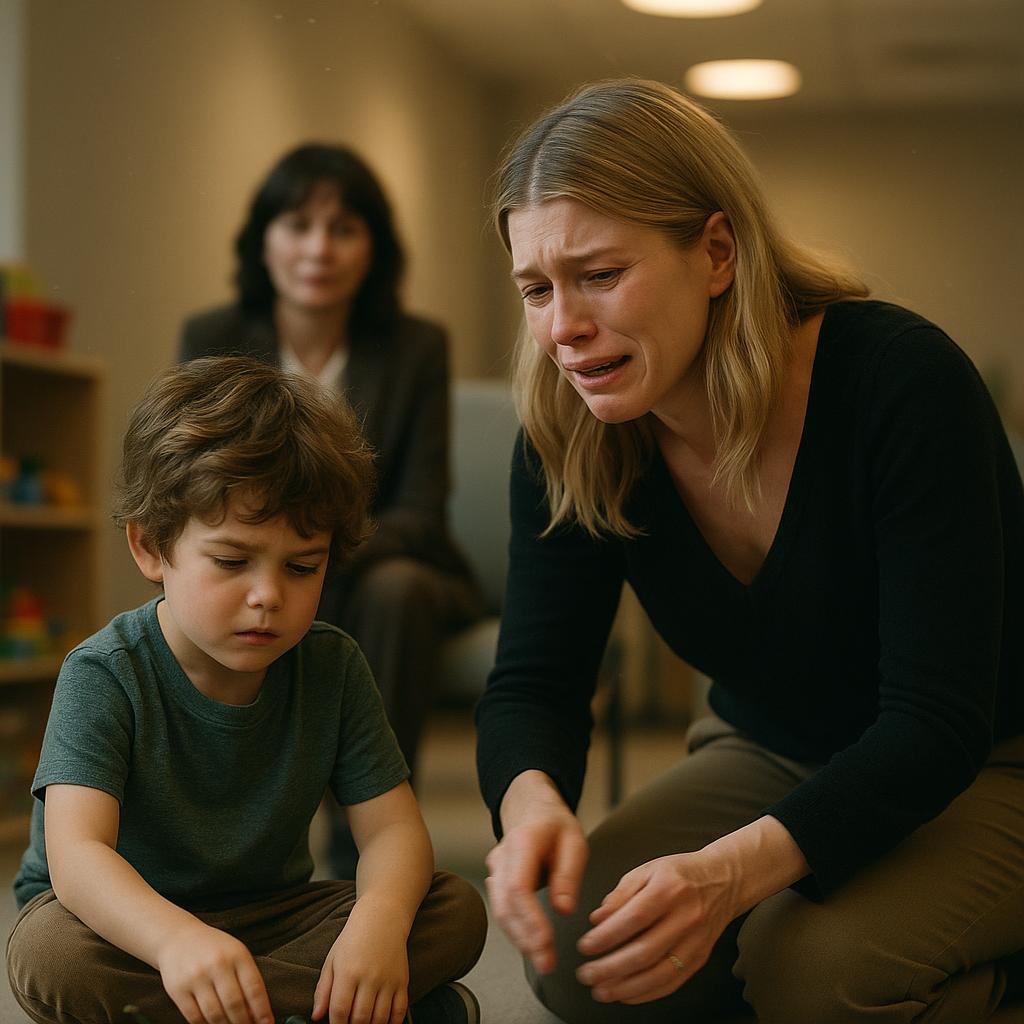 Image by RM AI
Image by RM AI
The Job Offer
The bills were piling up faster than I could handle. My warehouse job had been generous with leave, but unpaid time off is still unpaid. Between lawyer fees, Noah's therapy sessions, and the mountain of expenses that come with suddenly becoming a full-time dad again, my savings were evaporating. I'd started applying for remote jobs at night after Noah fell asleep, but nothing seemed to fit around his schedule – and after everything he'd been through, I refused to leave him with strangers at daycare all day. I was scrolling through yet another job board when my phone buzzed. It was Michael from the support group. "Got a minute to talk about something?" When we met for coffee the next day, he got straight to the point. "I need someone at my renovation company. Hours are flexible – you can work around Noah's schedule." I nearly choked on my coffee. "Michael, I appreciate it, but I don't know the first thing about renovation." He waved away my concern. "You can learn. I'm offering because seven years ago, I was you – broke, desperate, and putting my kid first." His eyes met mine. "Someone gave me a chance when no one else would. Now I'm paying it forward." On the drive home, I felt something I hadn't in months – hope. What I didn't realize was that this job would put me in exactly the right place when Isabel's next attack came.
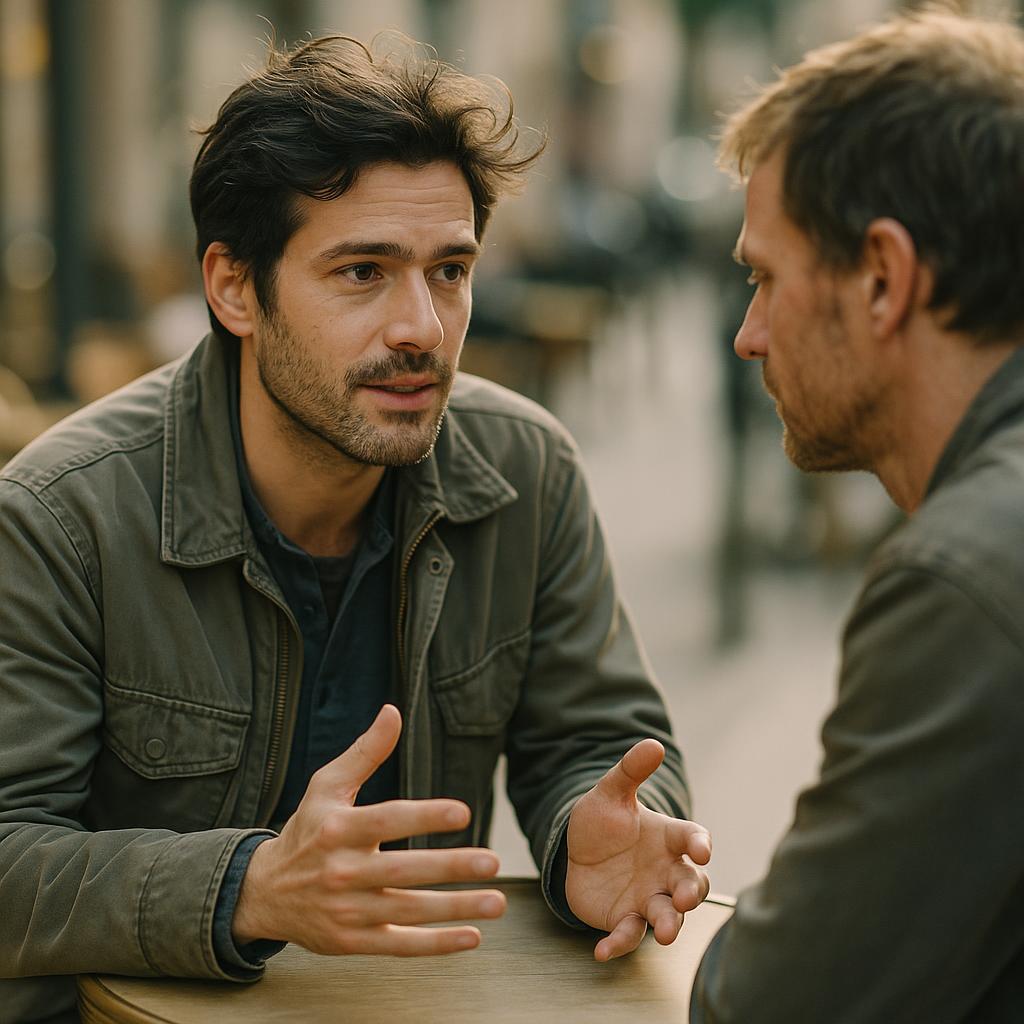 Image by RM AI
Image by RM AI
Moving Forward
The small two-bedroom house wasn't much by most standards, but to Noah and me, it felt like a palace. After months in my cramped apartment, having a backyard where he could play and a separate room he could call his own was everything. The day we moved in, Noah clutched his dinosaur backpack and ran from room to room, his excitement palpable. "Daddy, can I really paint my room?" he asked, eyes wide with disbelief. We spent that weekend transforming his walls into a prehistoric landscape, his tiny handprints leaving green and blue smudges alongside my more careful brushstrokes. For the first time since I'd found him, Noah talked about the future – where his bed would go, which friends from preschool could come over, what we'd plant in the garden. Then yesterday, a package arrived with no return address. Inside was a carefully crafted scrapbook filled with photos of Noah from those missing months – building snowmen, blowing out birthday candles, playing at parks I'd never seen. "I thought he should have these memories," Ashley's note read. "They weren't all bad days." I sat on the porch steps long after Noah had gone to bed, flipping through images of my son's life that I should have been part of, torn between gratitude that Ashley had documented these moments and rage that they'd happened at all. What kind of person helps steal a child, then makes sure he has a photo album of the experience?
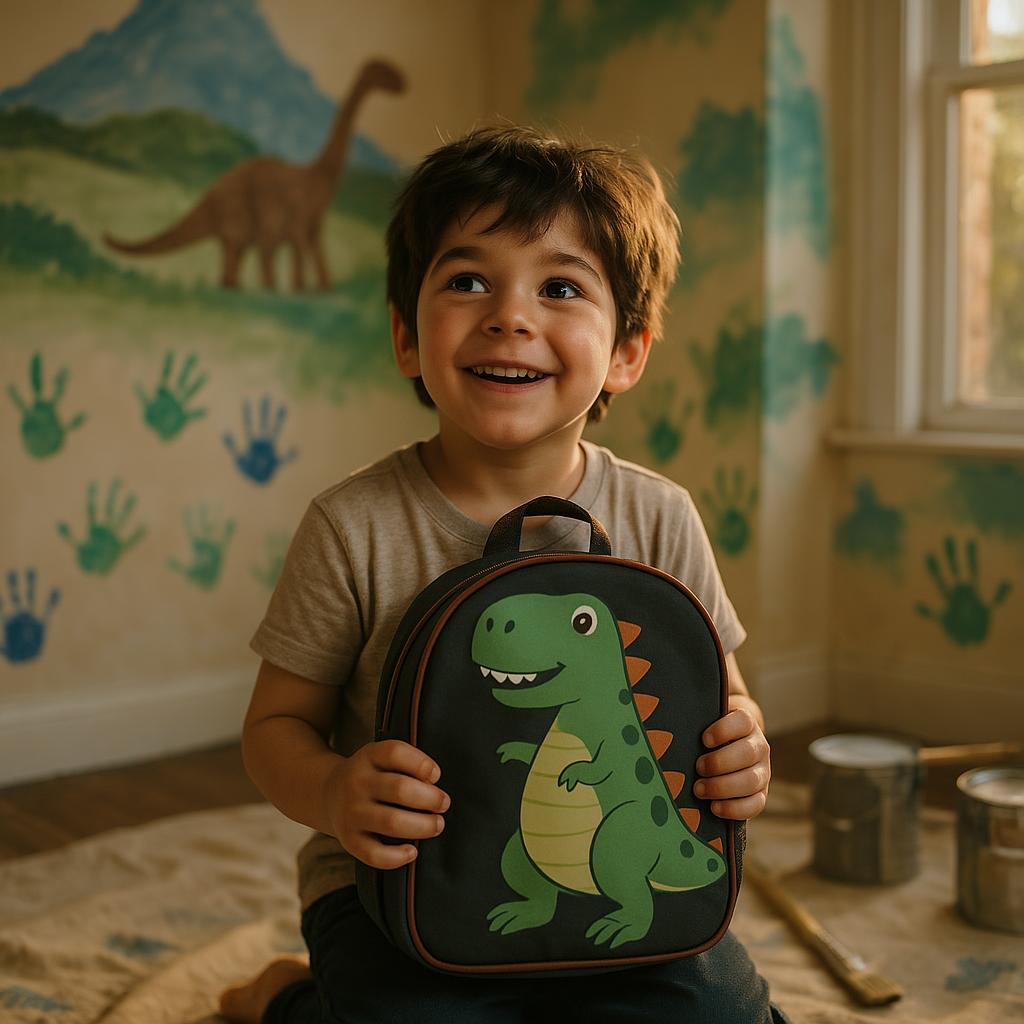 Image by RM AI
Image by RM AI
Isabel's Plea Deal
The call from the prosecutor came on a Tuesday afternoon while I was installing cabinets at Michael's latest renovation project. 'Isabel's accepted a plea deal,' she said, her voice matter-of-fact. 'Five years, with possibility of parole after three, in exchange for testimony against Marcel and the funeral director.' I had to sit down on a half-finished countertop, sawdust coating my jeans. Five years? For faking our son's death, selling him like property, and putting us both through hell? It felt like a slap in the face. 'That's... that's nothing,' I managed to say. 'She sold our child.' The prosecutor sighed. 'Mark, I understand your frustration. But without her testimony, we might not get Marcel at all. And this guarantees Noah won't have to testify.' That night, as I tucked Noah into bed, he looked up at me with those eyes that seemed to hold the weight of the universe. 'Daddy, when will I see Mommy again?' he asked innocently. My throat tightened. How do you explain prison to a five-year-old? How do you tell him his mother chose money over him without destroying what little security he's rebuilt? 'Mommy did something very wrong,' I said carefully, smoothing his dinosaur sheets. 'She has to go to a special time-out place for grown-ups for a while.' Noah nodded solemnly, as if this made perfect sense. 'Like when I hit Tommy at school and had to sit in the thinking chair?' If only adult crimes were so simple. What I didn't tell him was that Isabel's lawyer had already filed paperwork requesting visitation rights once she was settled in prison – and I had absolutely no idea what to do about it.
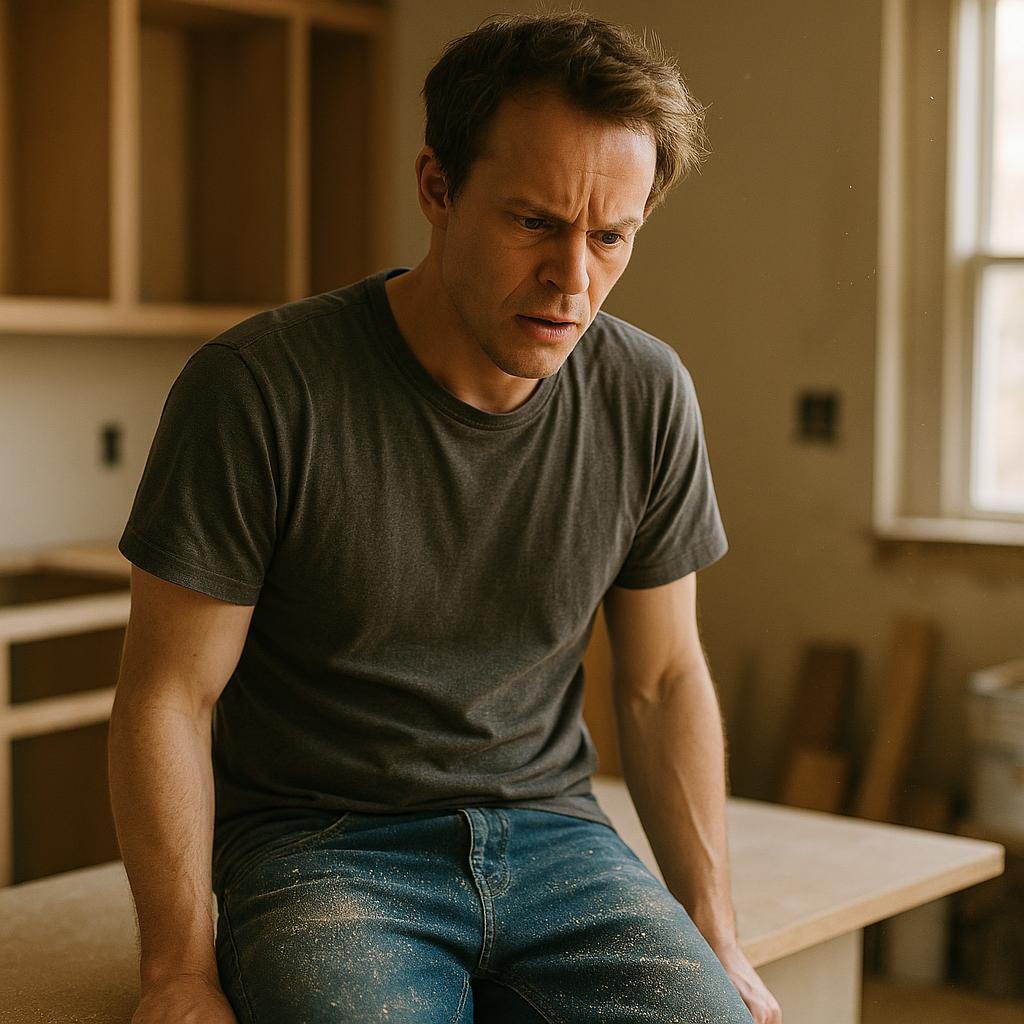 Image by RM AI
Image by RM AI
Marcel's Trial
The courthouse felt different this time – heavier somehow. Unlike Isabel, who took the easy way out with her plea deal, Marcel decided to fight it out in court. His defense? Isabel manipulated him into the whole scheme. When I took the stand, the prosecutor walked me through my relationship with Marcel before the divorce – how we used to go fishing together, how he was at the hospital when Noah was born. Then came the hard questions about my desperate search for my son. The entire time, Marcel sat there, shoulders slumped, finally meeting my eyes with what looked like genuine remorse. It wasn't until his own testimony that the full horror unfolded. Isabel had apparently approached several potential 'buyers' before settling on Marcel and Ashley – like she was selling a used car, not our child. 'She said Mark didn't want him anymore,' Marcel testified, his voice breaking. 'She convinced me I'd be saving Noah from foster care.' I gripped the courtroom bench until my knuckles turned white, fighting the urge to scream that I'd never, ever stopped wanting my son. The most chilling moment came when Marcel's lawyer presented text messages showing Isabel had negotiated prices with three different couples, ultimately going with Marcel because he offered the most money. As I listened to him describe how methodically she had planned everything, I realized with sickening clarity that the woman I once loved – the mother of my child – was a stranger I never really knew at all.
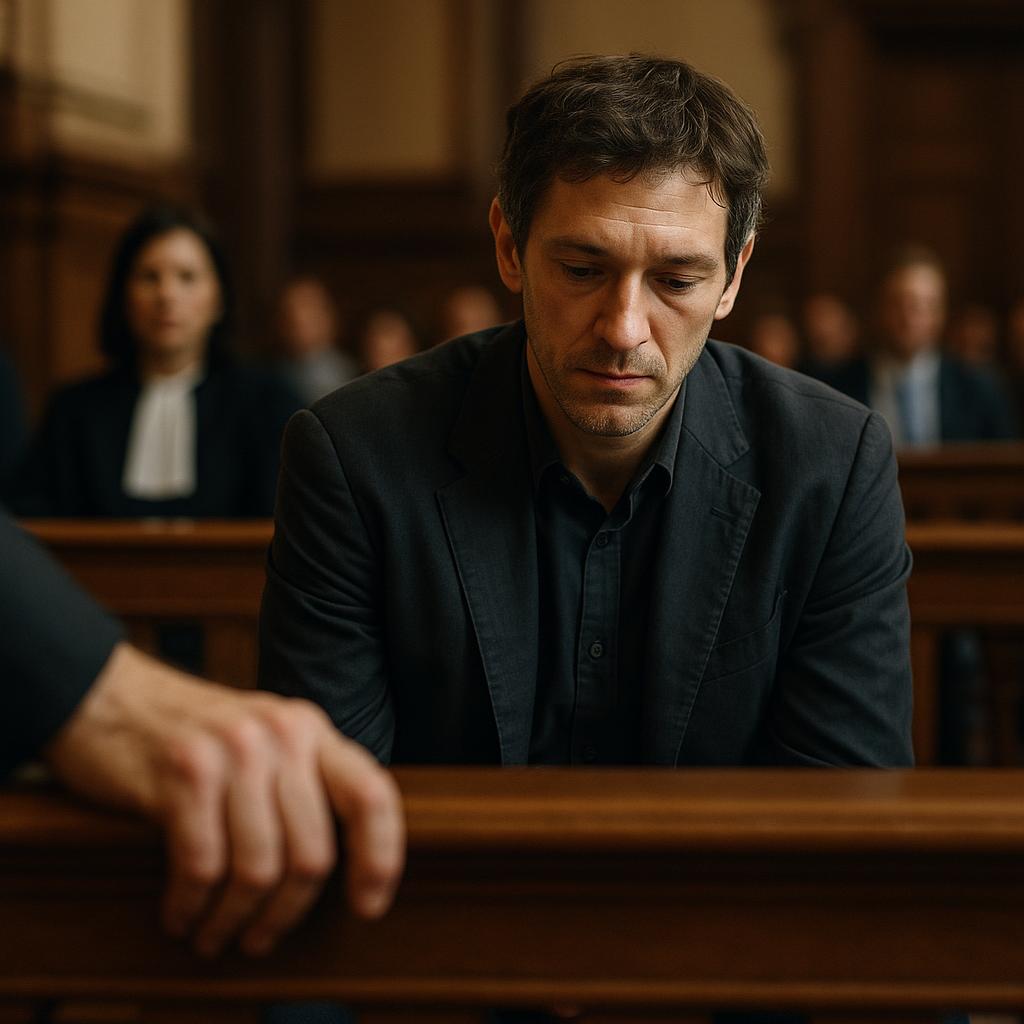 Image by RM AI
Image by RM AI
The Verdict
The courtroom fell silent as the judge read the verdict: guilty on all counts. Eight years. I watched Marcel's face crumple as the reality hit him. After the bailiff led him away, his lawyer approached me. "He wants to speak with you." Part of me wanted to refuse, but something pulled me toward that small conference room where Marcel sat, handcuffed and defeated. "I'm sorry," were his first words, eyes red-rimmed and voice barely audible. "I know that means nothing, but I am." I just nodded, not trusting myself to speak. Then he told me something that made my blood run cold. "Isabel was never planning to stay in contact with Noah. The money—she was going to use it to start over in Europe. She told me I'd have him permanently." My hands began to shake. "Why are you telling me this now?" Marcel looked up, his expression hollow. "Because Noah deserves to know someone fought for him, even if it wasn't me." On the drive home, I couldn't stop thinking about how close I'd come to losing my son forever—not just to Marcel and Ashley's fake family, but to another continent. What haunted me most wasn't Isabel's betrayal; it was realizing that if Ashley hadn't made that anonymous call, I might have spent the rest of my life visiting an empty grave while my son grew up thinking I'd abandoned him.
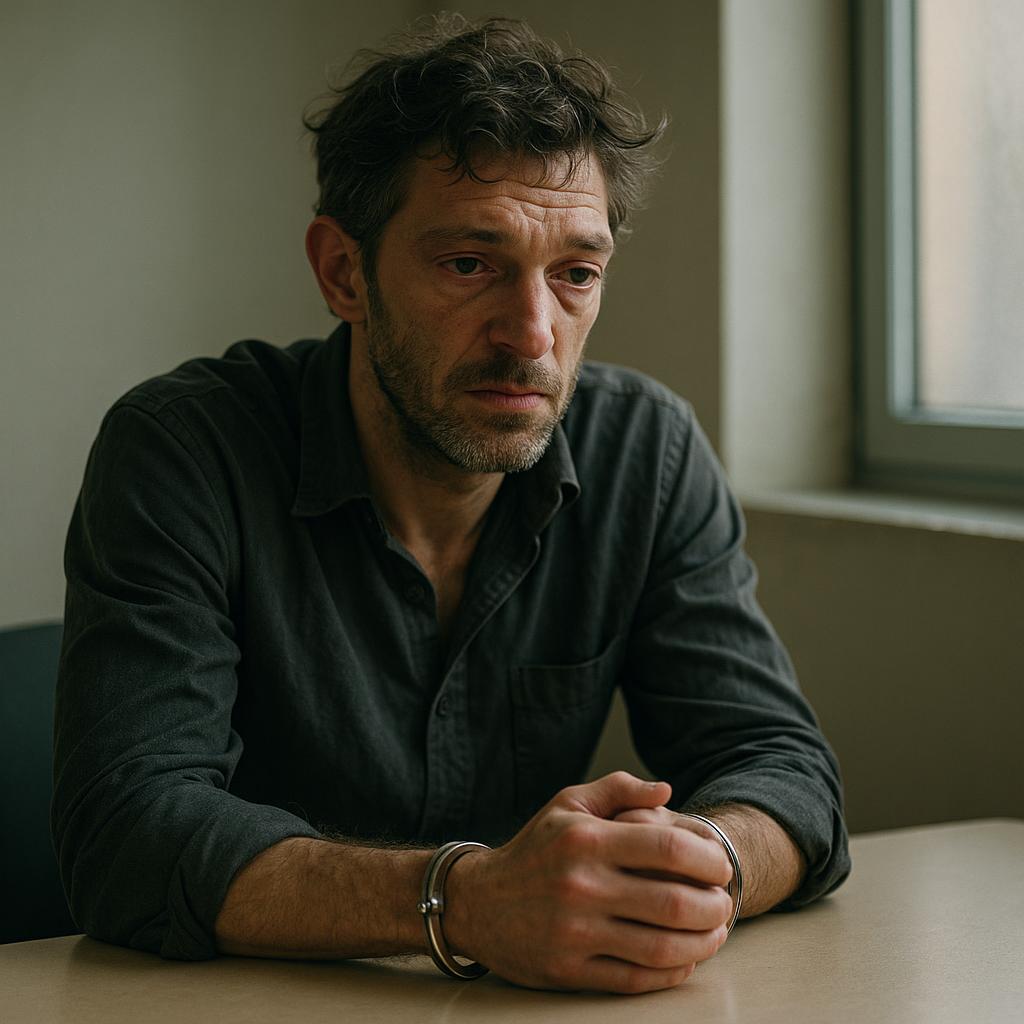 Image by RM AI
Image by RM AI
Noah's Birthday
Six colorful candles flickered on a dinosaur-shaped cake as Noah's friends from preschool sang 'Happy Birthday' with the enthusiastic off-key charm only kids can manage. I stood back, recording on my phone, trying to keep my hand steady despite the lump in my throat. Six years old. My son was turning six, and I'd almost missed it—almost spent this day laying flowers at an empty grave while he blew out candles in another state, another life. When the singing stopped, Noah closed his eyes tight, made his wish, and blew with all his might. The room erupted in cheers as I high-fived him, this resilient little boy who somehow still knew how to smile after everything. Later, as he tore through dinosaur-themed wrapping paper with his new friends, Mrs. Abernathy, his preschool teacher, squeezed my arm. 'He's adjusting beautifully,' she whispered. 'You'd never know what he's been through.' That night, as I tucked him into bed surrounded by new toys, Noah looked up at me with those serious eyes that always seemed too old for his face. 'Daddy,' he asked, 'can Mommy come to my birthday next year?' My heart stuttered. I smoothed his dinosaur sheets, buying time. 'We'll see, buddy. That's a long way off.' His little face scrunched in thought. 'She did a big time-out, right? For the bad thing?' I nodded, swallowing hard. 'Yeah, buddy.' How do you explain to a six-year-old that his mother sold him like a used car without breaking something fundamental inside him?
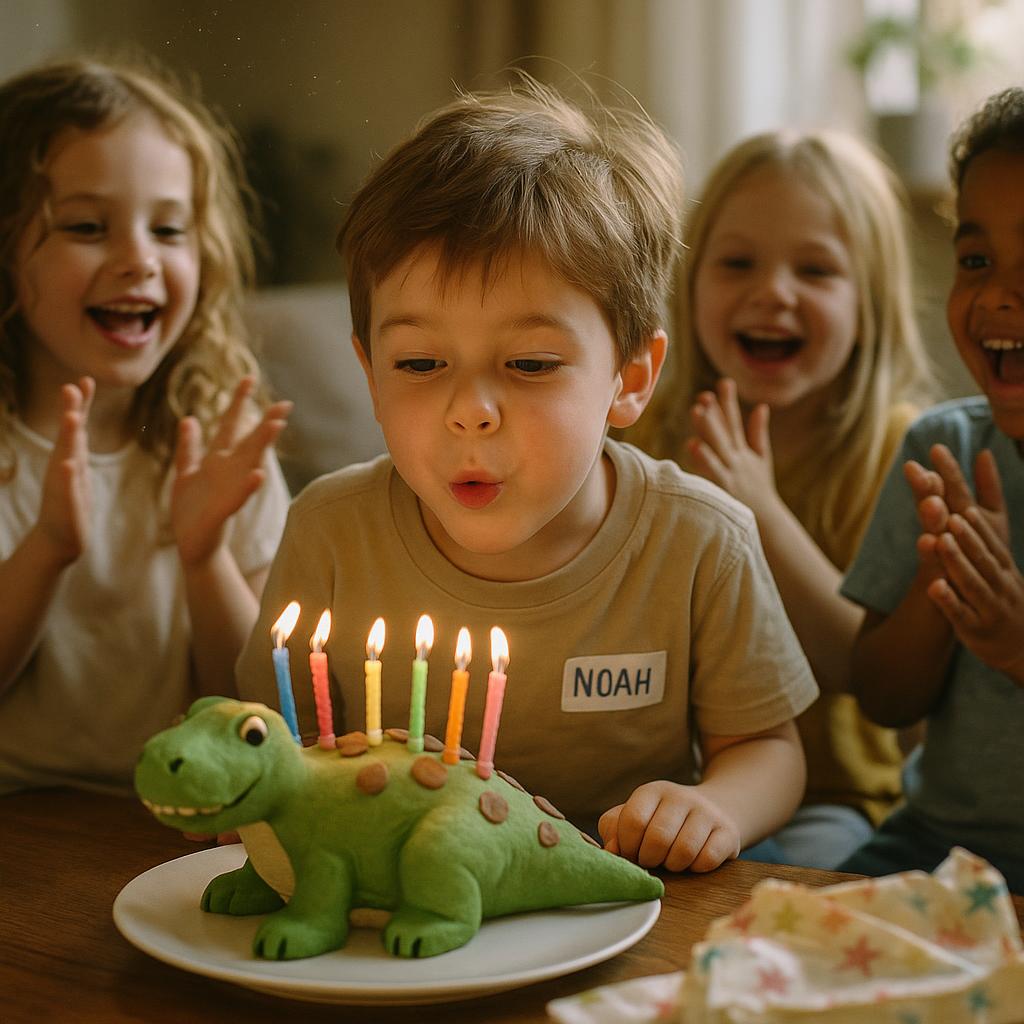 Image by RM AI
Image by RM AI
Isabel's Letter
The envelope sat on my kitchen counter for three days before I found the courage to open it. The prison return address made my stomach knot every time I walked past it. When I finally tore it open, Isabel's familiar handwriting hit me like a physical blow. 'Dear Mark,' she began, as if we were old college friends catching up. 'I've been in therapy and I'm starting to understand what I did to you and Noah.' Four pages followed – tearstained confessions, apologies that seemed heartfelt, and stories about her 'journey to self-awareness' behind bars. She asked for recent photos of Noah and, buried in the final paragraph like an afterthought, mentioned the possibility of supervised visits 'when the time is right.' I read it three times, searching for the woman I once loved in those carefully crafted sentences. But something felt off. The Isabel who sold our son wouldn't suddenly develop this level of self-awareness after six months in prison. I noticed how she described Noah as 'our beautiful boy' but never once mentioned his dinosaur obsession or asked how he was coping with the trauma she'd caused. Classic Isabel – remembering the broad strokes but missing the details that actually mattered. I folded the letter and slipped it back into its envelope, already composing an email to Dr. Linden. Before I made any decisions about Isabel's role in Noah's life, I needed a professional to help me decode what was genuine remorse and what was just another performance from the woman who had perfected the art of manipulation.
 Image by RM AI
Image by RM AI
The Book Deal
The email from Vanessa Winters at Horizon Publishing sat in my inbox for three days before I finally opened it. 'Your story has the potential to help countless families navigating broken systems,' she wrote. 'We're prepared to offer a substantial advance.' My first instinct was to delete it. The last thing I wanted was to commodify what Noah had been through. But that number she mentioned would fully fund Noah's college education—something I'd been losing sleep over since becoming a single dad again. When I brought it up at the fathers' support group, the room immediately divided. 'It's exploitation,' Michael argued, his face flushed. 'They'll sensationalize everything.' Across the table, Darius shook his head. 'Or it could be the roadmap someone else needs when the system fails them.' I was still undecided when I found Noah in my bedroom that night, cross-legged on the floor surrounded by old photo albums. 'Daddy, was I happy when I was a baby?' he asked, pointing to a picture of himself as a toddler on my shoulders. His innocent question hit me like a freight train. Noah deserved to know his complete story someday—not just the trauma, but the love that existed before and after. Maybe documenting everything wasn't about exploitation; maybe it was about preservation. As I tucked him in later, I realized the real question wasn't whether to tell our story, but who should control how it was told.
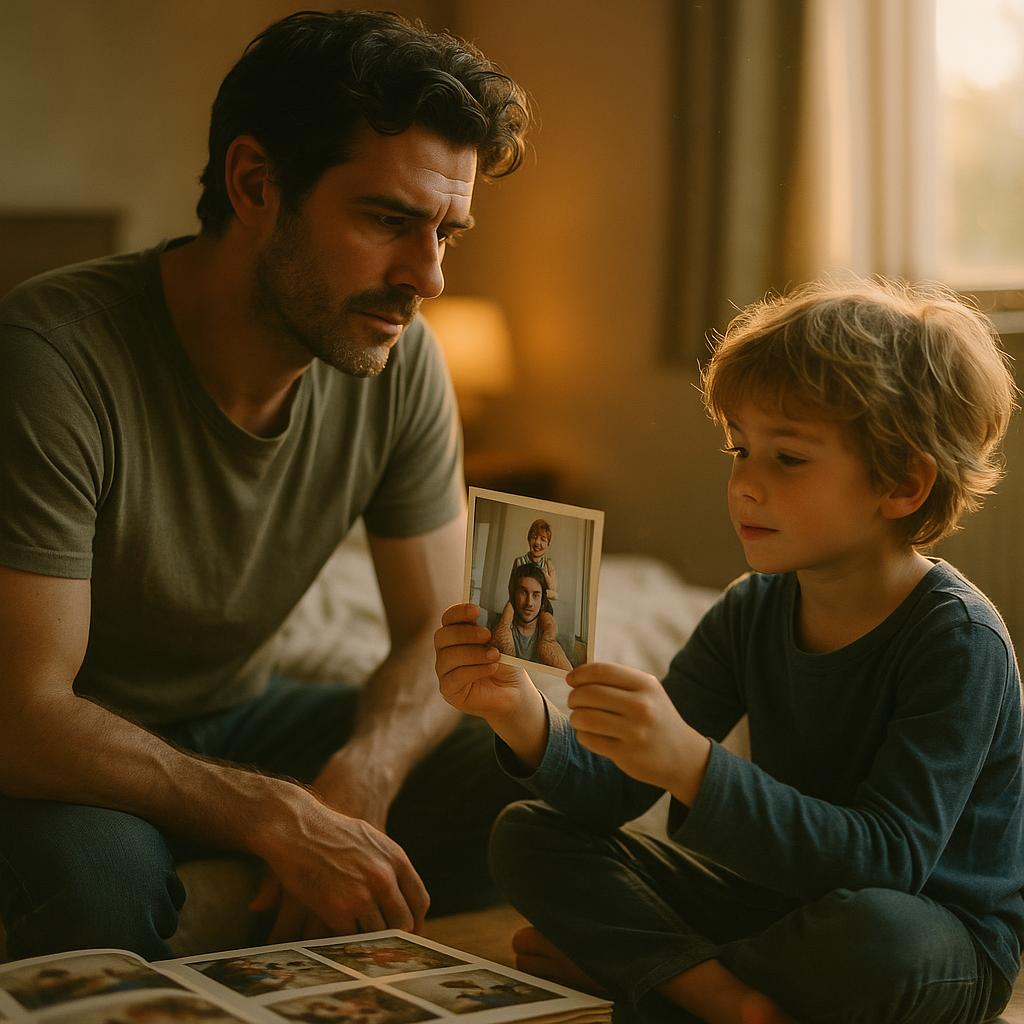 Image by RM AI
Image by RM AI
School Challenges
Noah's first day of first grade should have been about new backpacks and nervous excitement. Instead, it became about whispers and sideways glances. It started when Mrs. Brenner, mother of twin boys in Noah's class, recognized us from the news coverage of Marcel's trial. By pickup time, a cluster of parents were huddled together, stealing glances our way. Three days later, my phone rang with the principal requesting a 'community meeting' to address 'concerns.' I sat in that too-small chair in the school library, gripping my coffee cup as Mrs. Brenner stood up. 'We just want to know if there are safety protocols in place,' she said, not quite meeting my eyes. 'Given the... unusual circumstances.' My hands shook as I stood. 'My son,' I said, my voice steadier than I felt, 'is a six-year-old boy who loves dinosaurs and struggles with his shoelaces. He's not a 'circumstance.' He's a child who deserves privacy and normalcy.' The room fell silent until Mr. Grayson, the school counselor, outlined the support systems already in place. Afterward, as parents filed out, a young teacher with kind eyes approached me. 'I'm Ms. Collins, Noah's art teacher,' she said quietly. 'When I was eight, my adoption story made the local paper because of... similar complications. Kids are resilient, but they need advocates.' She slipped me her card with her personal number. 'Call anytime.' Walking to my car, I realized this was just the beginning of a new battle – protecting Noah's right to be just another kid in a world that had already labeled him as something else.
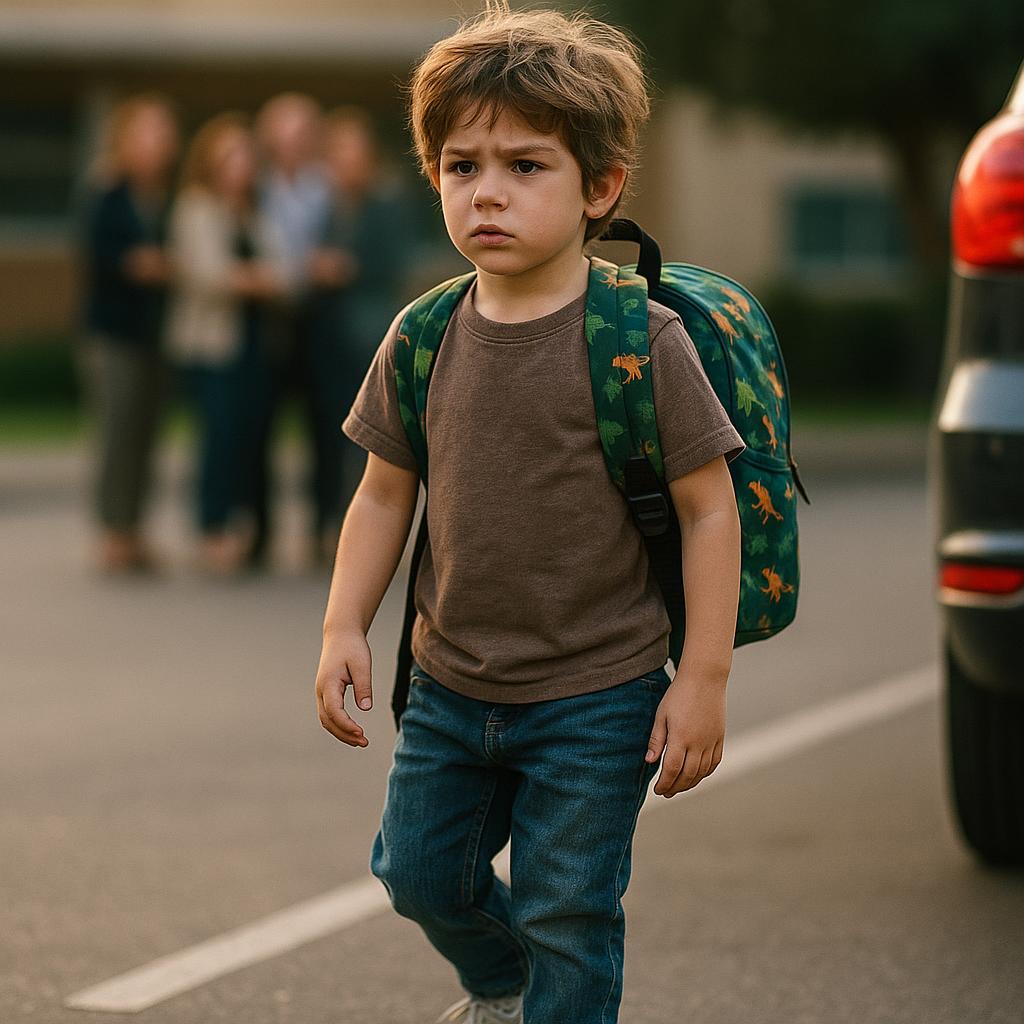 Image by RM AI
Image by RM AI
The First Visit
The prison looked exactly like you'd expect – cold concrete, barbed wire, and that distinct institutional smell that hits you the moment you walk in. After months of therapy sessions with Dr. Linden and countless sleepless nights weighing the pros and cons, I finally agreed to bring Noah to see Isabel. The entire two-hour drive there, my stomach was in knots while Noah alternated between excited chatter about seeing his mom and long stretches of anxious silence. When Isabel walked into the visitation room, her prison uniform hanging loose on her frame, I saw genuine tears in her eyes as she spotted Noah. But something felt off about our interaction. Instead of acknowledging what she'd done, she kept asking Noah if he remembered their 'special pancake Sundays' and their 'fun trips to the lake' – as if desperately trying to remind him of a narrative where she was a loving mother. Noah sat stiffly beside me, answering her questions with one-word responses, his little hand gripping mine under the table. The drive home was quiet until we were about halfway there. 'Daddy?' Noah's small voice broke the silence. 'Why did Mommy sell me?' The question I'd been dreading since the day I found him hung in the air between us. How do you explain to a six-year-old that his mother valued money more than him without destroying something fundamental inside him?
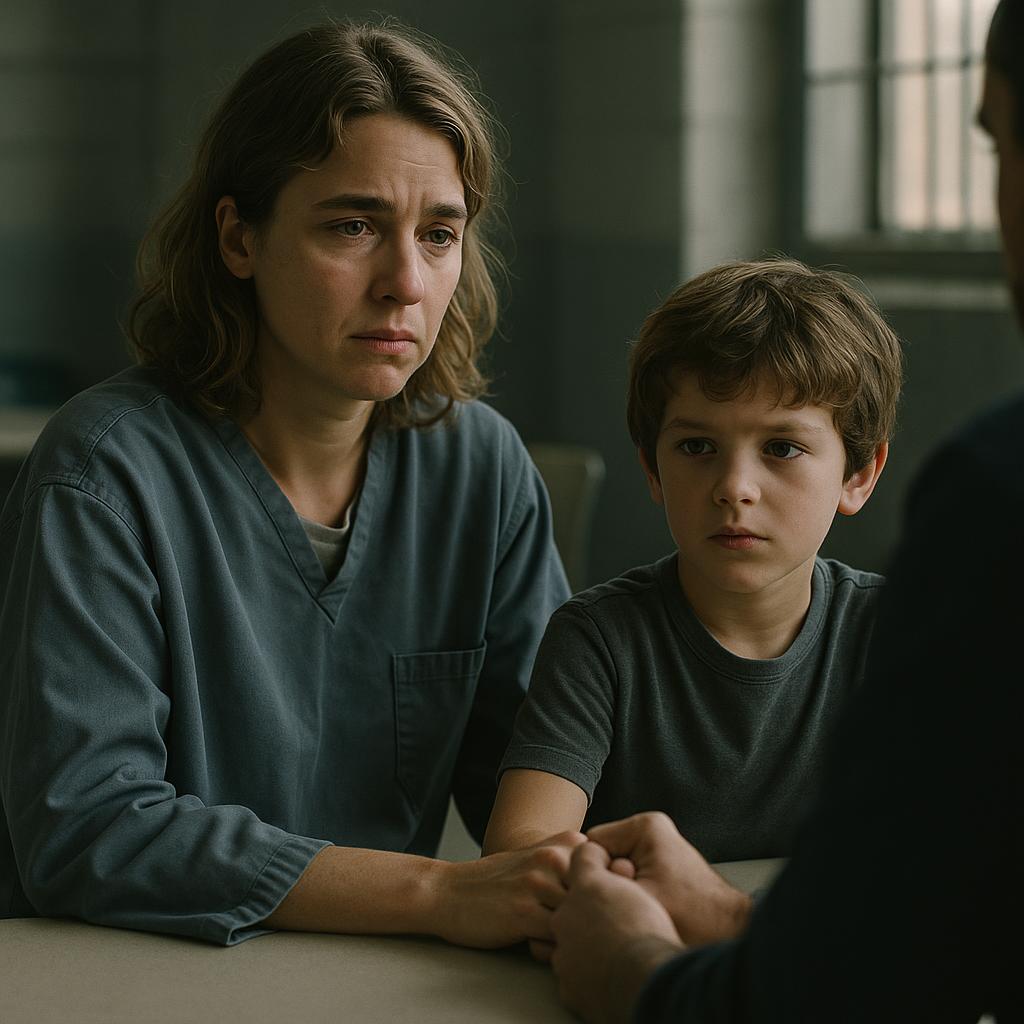 Image by RM AI
Image by RM AI
Explaining the Inexplicable
I sat in my car for a long time after Noah asked that impossible question. How do you tell your child his mother sold him like a used appliance? The next day, I called Dr. Linden in a panic. "This isn't something you can wing, Mark," she said gently. "We need to be careful." We spent two sessions mapping out what to say - something honest but not soul-crushing. That Saturday morning, I took Noah to our special spot by the creek. "Buddy," I started, my voice shakier than I wanted, "sometimes grown-ups make terrible mistakes because they're sick in their thinking." I explained that Mommy had problems that made her think money was more important than it should be, and that none of it - absolutely none of it - was his fault. "It's like when your brain gets a virus, like a computer," I said, watching his face carefully. "It makes people do things they shouldn't." Noah picked up a stick, dragging it through the dirt. "But you found me," he said finally, looking up with those eyes that always seemed to see right through me. "Because you're a good daddy." I pulled him into my arms, tears streaming down my face as he patted my back awkwardly. That night, for the first time since I'd found him, Noah slept through until morning - no screaming, no nightmares. As I watched him eat breakfast the next day, I realized something profound: sometimes the truth, even when it's painful, can be the first real step toward healing.
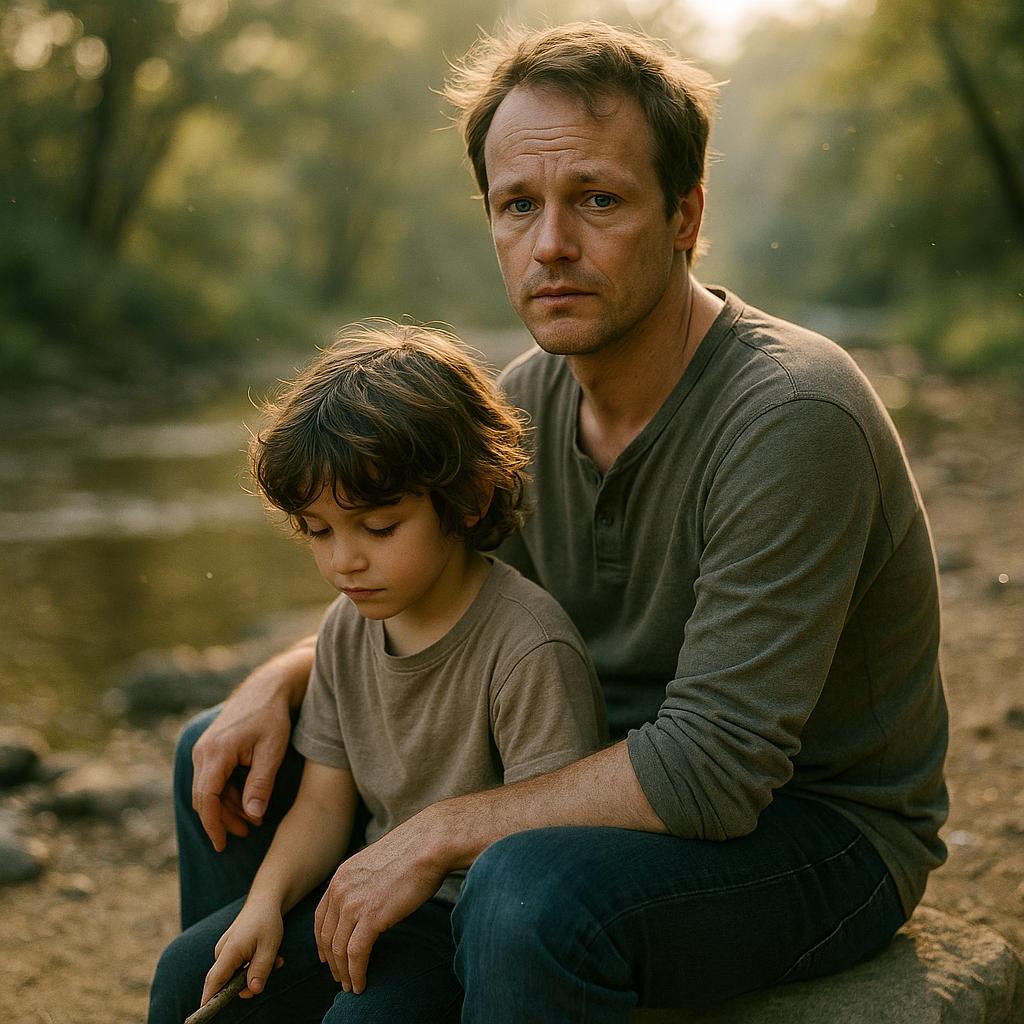 Image by RM AI
Image by RM AI
The Documentary Proposal
The email from Eliza Winters at Frontline Documentaries arrived on a Tuesday morning. 'Your story exposes critical failures in our family court system,' she wrote. 'We believe it could help change legislation that currently leaves children vulnerable.' My first instinct was absolute refusal. Haven't we been through enough public scrutiny? But then she mentioned similar cases—children shuffled through broken systems while parents fought impossible battles. I arranged a meeting at a coffee shop near my office, where Eliza laid out her vision. 'We'd focus on the systemic issues,' she explained, her eyes earnest behind stylish glasses. 'Not exploiting Noah's trauma, but using your experience to highlight where things went wrong.' When I expressed concerns about Noah's privacy, she immediately suggested keeping him off-camera entirely. 'This isn't about creating spectacle,' she assured me. 'It's about creating change.' That night, I called both Dr. Linden and my lawyer. 'It could be healing,' Dr. Linden suggested cautiously, 'but only with strict boundaries.' My lawyer was more pragmatic: 'Get everything in writing—especially the anonymity provisions for Noah.' Two days later, I signed preliminary paperwork with one non-negotiable condition: Noah would remain completely anonymous, his face never shown, his voice never recorded. As I watched Eliza file away the contract, I wondered if I was making the right choice or just opening old wounds that had barely begun to heal.
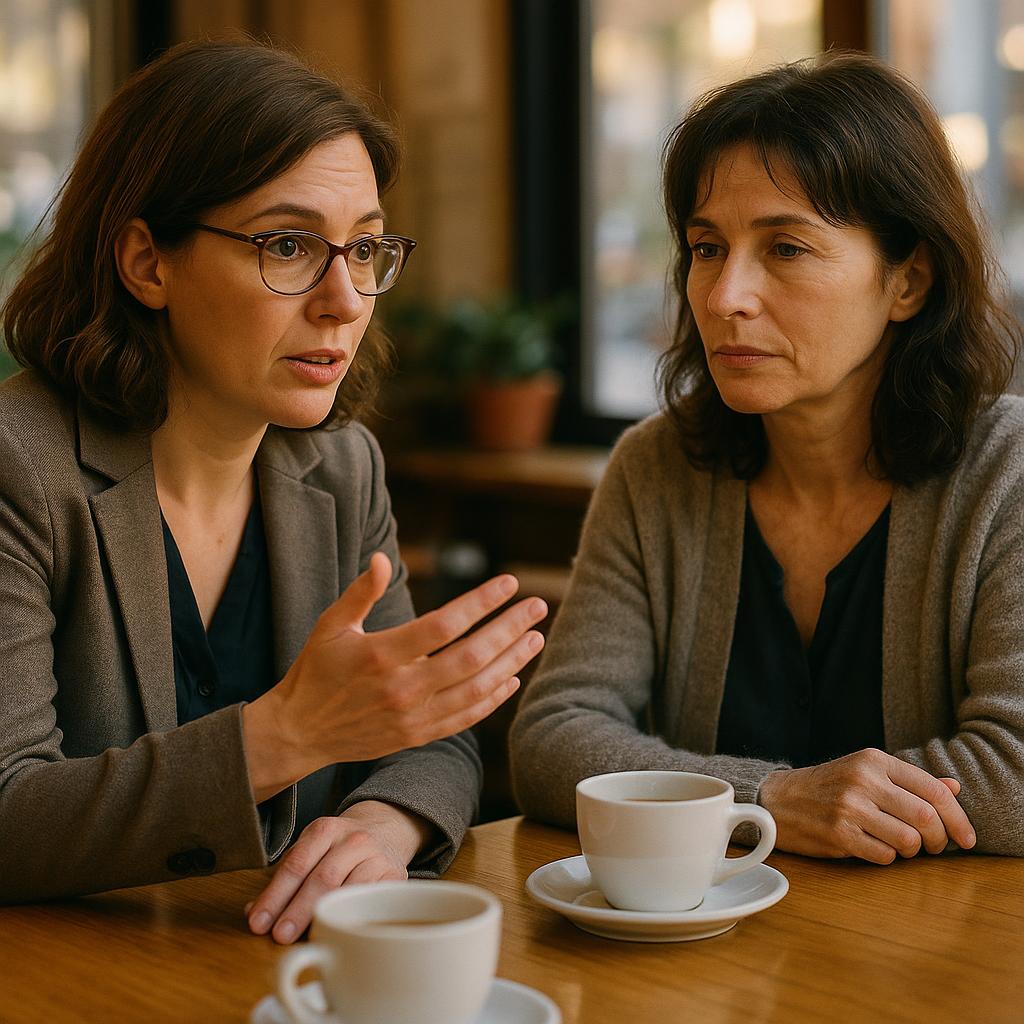 Image by RM AI
Image by RM AI
Isabel's Appeal
The letter from the prosecutor arrived on a Thursday morning, buried between junk mail and bills. 'Isabel has filed an appeal,' it read, 'claiming ineffective counsel and diminished capacity at the time of the crime.' I had to read it twice, my coffee going cold beside me. The prosecutor called that afternoon, her voice tense. 'Mark, I need to be straight with you. If she succeeds, her sentence could be cut in half.' Half? She'd barely serve two years for what she did to Noah—to us. The next morning, I spotted the first news van outside our house. By afternoon, Noah's principal called: reporters were lingering near the playground. 'Daddy, is she coming to get me again?' Noah whispered that night, his dinosaur nightlight casting shadows across his terrified face. I held him close, feeling his heart racing against mine. 'No, buddy. Never again.' But the truth was, I couldn't promise that—not with absolute certainty. That night, after Noah finally fell asleep, I called my lawyer. 'I don't care what it costs,' I told him, my voice steadier than I felt. 'We're fighting this with everything we've got.' As I hung up, I realized something had shifted inside me. The man who once just wanted peace now understood that sometimes, peace only comes after you've fought the war you never asked for.
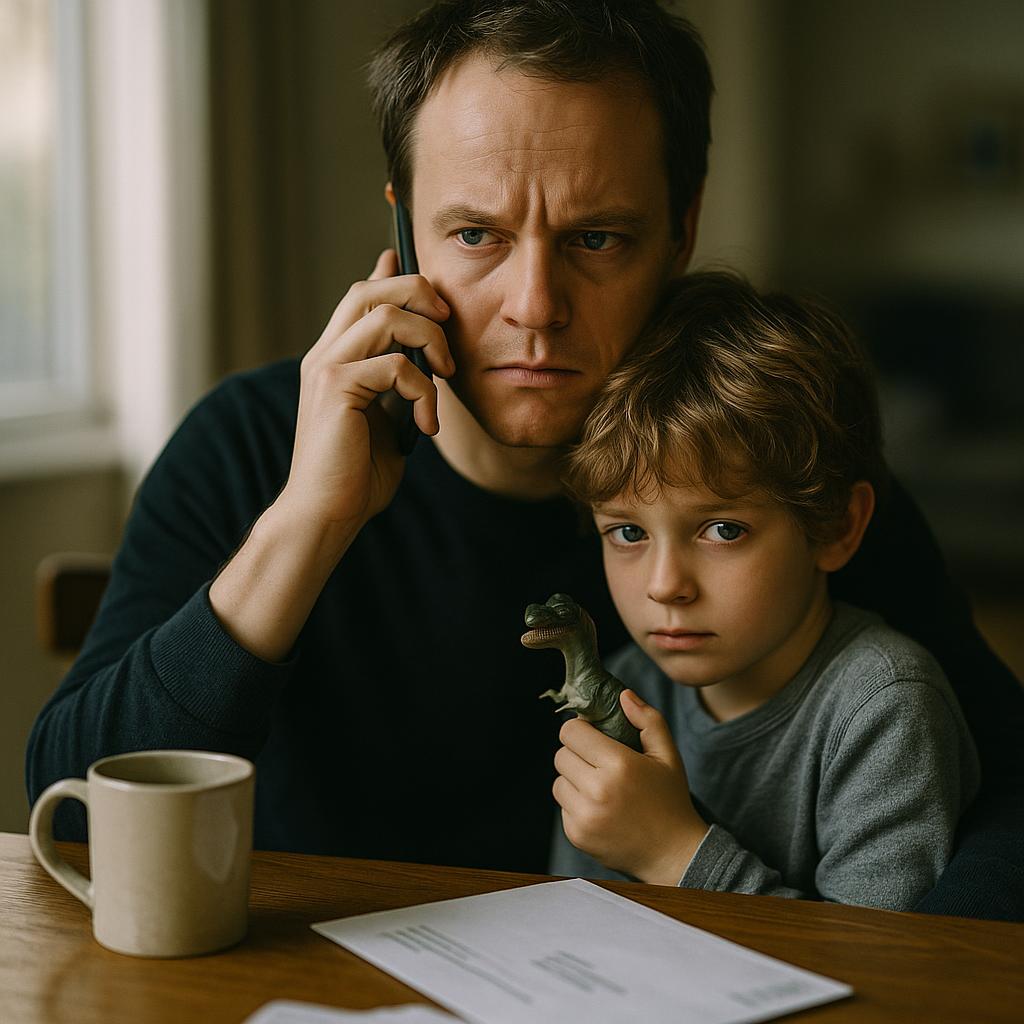 Image by RM AI
Image by RM AI
The Appeal Hearing
The courthouse felt different this time – colder, more sterile. I sat in the back row, watching Isabel's new hotshot lawyer paint her as some tragic victim of 'untreated postpartum depression and financial desperation.' The expert witnesses they'd brought in spoke about her 'compromised decision-making abilities' and 'extreme duress' – as if selling your child was just a bad day, not a calculated betrayal that took weeks of planning. I gripped the edge of my seat when the psychiatrist described Isabel as 'a mother who lost her way,' conveniently forgetting the price negotiations and fake funeral she'd orchestrated. During the recess, I was grabbing coffee when Isabel appeared beside me, her prison pallor making her look almost fragile. 'Mark,' she whispered, those familiar eyes welling with tears on cue, 'I've changed. I'm getting help now. Please, just one more chance with Noah.' When I firmly told her no, something flickered across her face – that cold, calculating look I remembered from our marriage. 'He's my son too,' she hissed, dropping the wounded mother act entirely. 'You can't keep him from me forever.' As she walked away, I realized with chilling clarity that the woman who sold our child hadn't changed at all – she'd just found a new audience to manipulate.
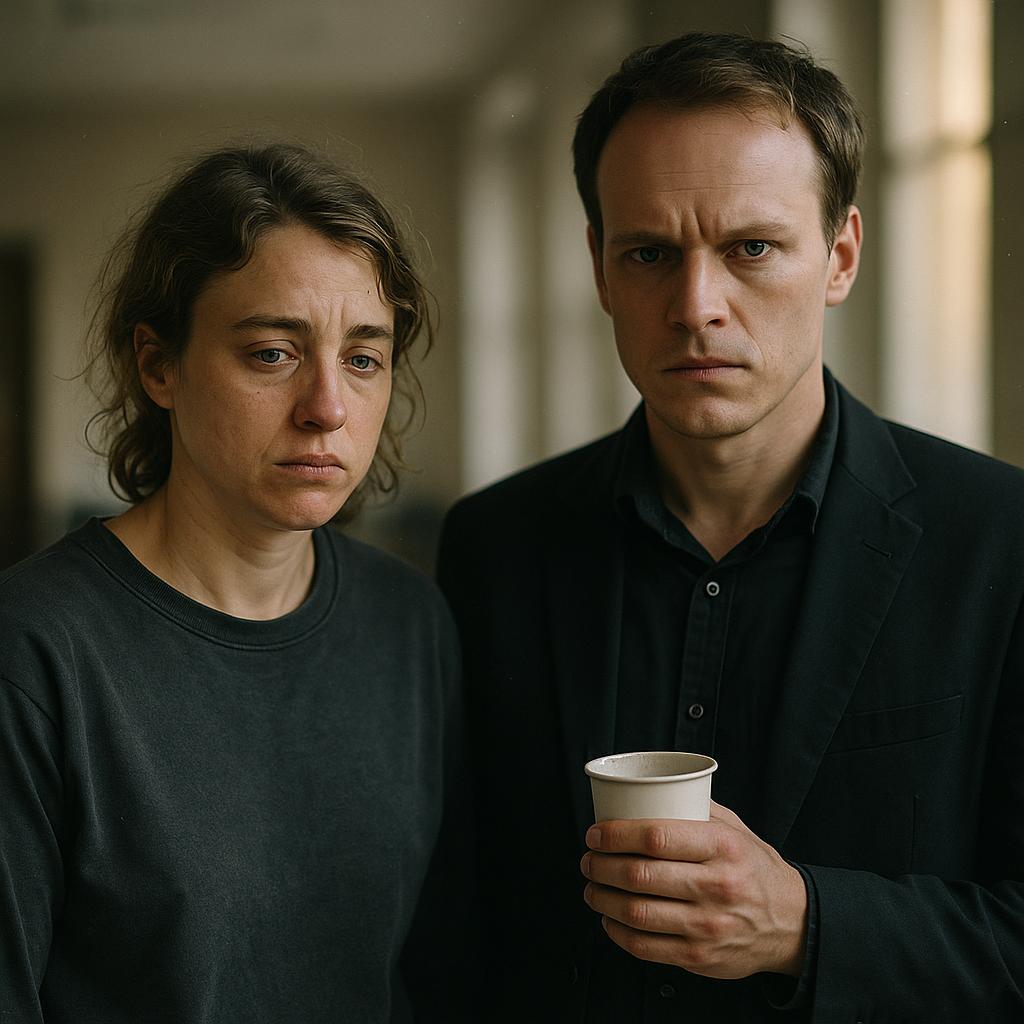 Image by RM AI
Image by RM AI
Appeal Denied
The courtroom was silent as the judge delivered the verdict. 'Appeal denied.' Two simple words that felt like a mountain lifting off my shoulders. Isabel's carefully crafted persona of the misunderstood mother crumbled as the judge systematically dismantled her claims, citing the 'meticulous planning' and 'calculated deception' evident in her actions. Her new lawyer looked stunned, while Isabel's face hardened into that cold mask I remembered too well from our marriage. Outside, microphones thrust in my face as reporters shouted questions. 'How do you feel about the court's decision, Mr. Lawson?' Instead of the anger burning inside me, I took a deep breath. 'I hope Isabel gets the help she needs,' I said evenly. 'Our focus remains on Noah's healing.' That evening, as I was helping Noah with his dinosaur puzzle, he looked up with those serious eyes. 'Daddy, can I call Mom?' My heart stuttered. 'What for, buddy?' He fidgeted with a puzzle piece. 'I won the art contest at school. With my volcano painting. I want to tell her.' I watched my son's face—this incredible child who somehow found room in his heart for the woman who had sold him—and realized that healing doesn't always look the way we expect it to. As I dialed the prison's number, I wondered if Isabel would ever truly understand what she'd thrown away, or if Noah's capacity for forgiveness was something she'd never deserve but would always receive.
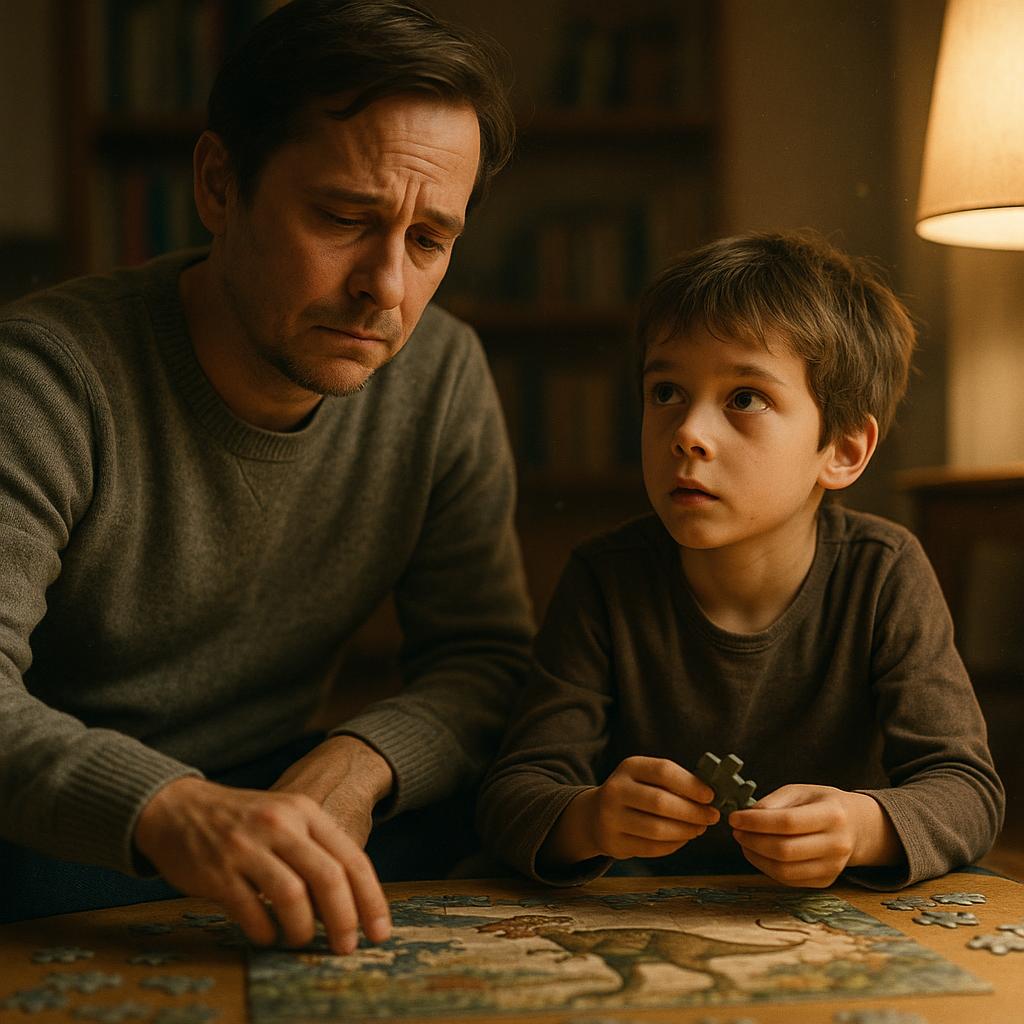 Image by RM AI
Image by RM AI
The Documentary Impact
The night the documentary aired, I sat alone in my living room, Noah already asleep upstairs. I'd watched the rough cut weeks earlier, but seeing our story broadcast nationwide hit differently. My phone buzzed constantly with texts from friends, family, and complete strangers. 'Just saw you on Frontline. You're changing lives, man.' The next morning, my inbox overflowed with messages – parents fighting similar battles, lawyers offering pro bono services for families in crisis, and most surprisingly, three state representatives requesting my testimony for proposed legislation. They were calling it 'Noah's Law' – a bill requiring stricter verification protocols for death certificates and custody transfers between states. Two weeks later, Mrs. Abernathy called me during my lunch break. 'Mark, something happened in class today I thought you should know.' My heart dropped – those words usually preceded trouble. 'We were discussing civic engagement, and I showed a clip from your documentary.' Before I could process my surprise, she continued, 'Noah stood up and told everyone, "My dad helped change the law." He was so proud, Mark.' That night, as I tucked Noah in, he looked up with those wise eyes. 'Dad, are you famous now?' he asked. I laughed, smoothing his dinosaur sheets. 'Not famous, buddy. Just trying to fix something broken.' He nodded seriously. 'Like when my T-Rex lost his arm and we glued it back.' As I kissed his forehead, I realized that somehow, through all this darkness, we'd found purpose – turning our pain into protection for other children. What I couldn't have known then was how quickly that purpose would be tested.
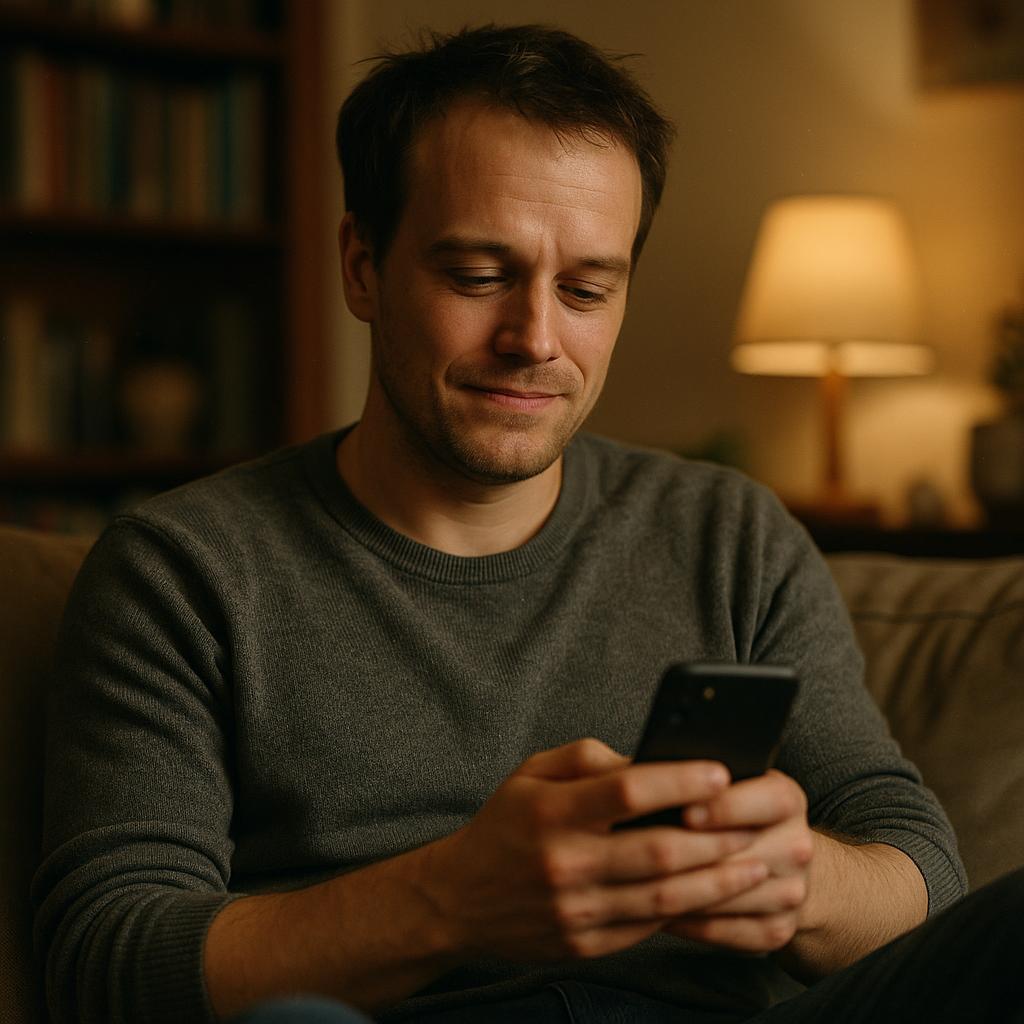 Image by RM AI
Image by RM AI
Ashley's Update
The envelope arrived on a Tuesday, postmarked from Oregon with no return address. Inside was a handwritten letter and a check that made my hands shake when I saw the amount: $40,000. Exactly what they'd paid for my son. 'Dear Mark,' Ashley wrote, 'I hope this finds you and Noah well.' She explained she'd moved across the country, changed her name, and started a support group for people caught in illegal adoption schemes. 'What Marcel and I did was unforgivable,' she continued, 'but I'm trying to make amends.' She wanted the money to go toward Noah's education—the future Isabel had tried to sell. That evening, I showed Noah her picture, curious about his reaction. 'Do you remember her?' I asked carefully. He studied the photo, his brow furrowed in that serious way that made him look older than seven. 'She was nice but sad,' he said finally, 'and she helped you find me.' His simple assessment knocked the wind out of me. While I'd been seeing Ashley as Marcel's accomplice, Noah remembered the woman who'd made the call that saved him. I folded the check, unsure whether to cash it or burn it. The money felt tainted, but wasn't this exactly what Noah deserved—his future bought back? As I tucked him in that night, watching him arrange his dinosaurs in their nightly formation, I wondered if forgiveness was something you could learn from a child who somehow understood the complicated shades of good and bad better than most adults ever would.
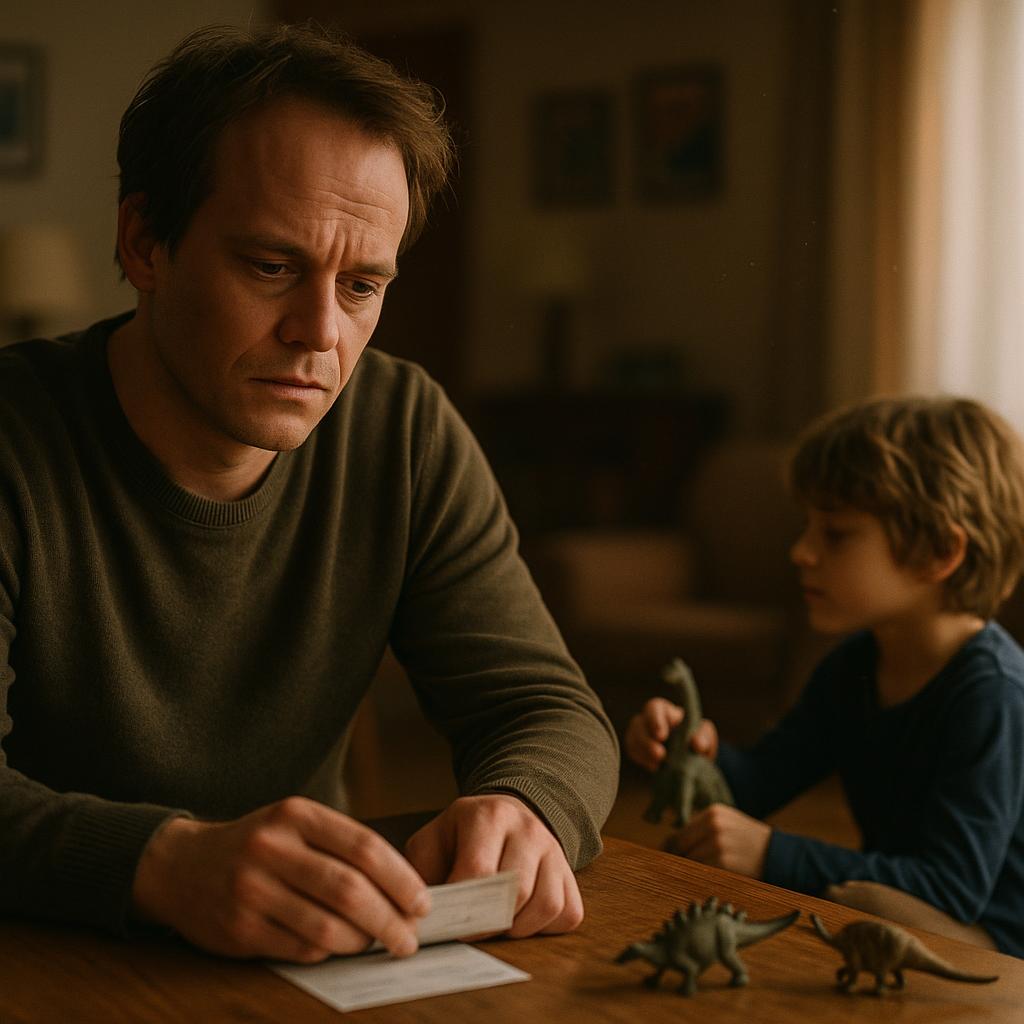 Image by RM AI
Image by RM AI
Noah's Progress
Dr. Linden's office always smelled like lavender and old books – a combination that somehow made even the hardest conversations easier. 'Noah's making remarkable progress,' she told me during our monthly check-in, sliding a folder of notes across her desk. 'His emotional regulation skills are developing faster than I typically see in trauma cases.' She credited our consistent routine and the way we talked openly about difficult things – no sugar-coating, just age-appropriate honesty. At Noah's parent-teacher conference last week, Ms. Collins pulled out a drawing he'd made – stick figures holding hands in a circle. 'This is Noah's "protection squad,"' she explained. 'He's started looking out for kids with family troubles.' Apparently, my son had become the unofficial guardian of the classroom misfits, the ones with dark circles under their eyes or lunch accounts that ran empty too often. Yesterday, when Tyler Jenkins sneered, 'At least I have a mom who wants me,' Noah didn't cry or fight like he might have months ago. Instead, he looked Tyler straight in the eye and said, 'I have a dad who loves me enough for two parents.' When Ms. Collins told me this, I had to excuse myself to the hallway where I pressed my forehead against the cool cinderblock wall, overwhelmed by a mixture of heartbreak and fierce pride. My son was building armor from the very things meant to break him. What I didn't realize then was that Noah's newfound strength would soon be tested in ways neither of us could have anticipated.
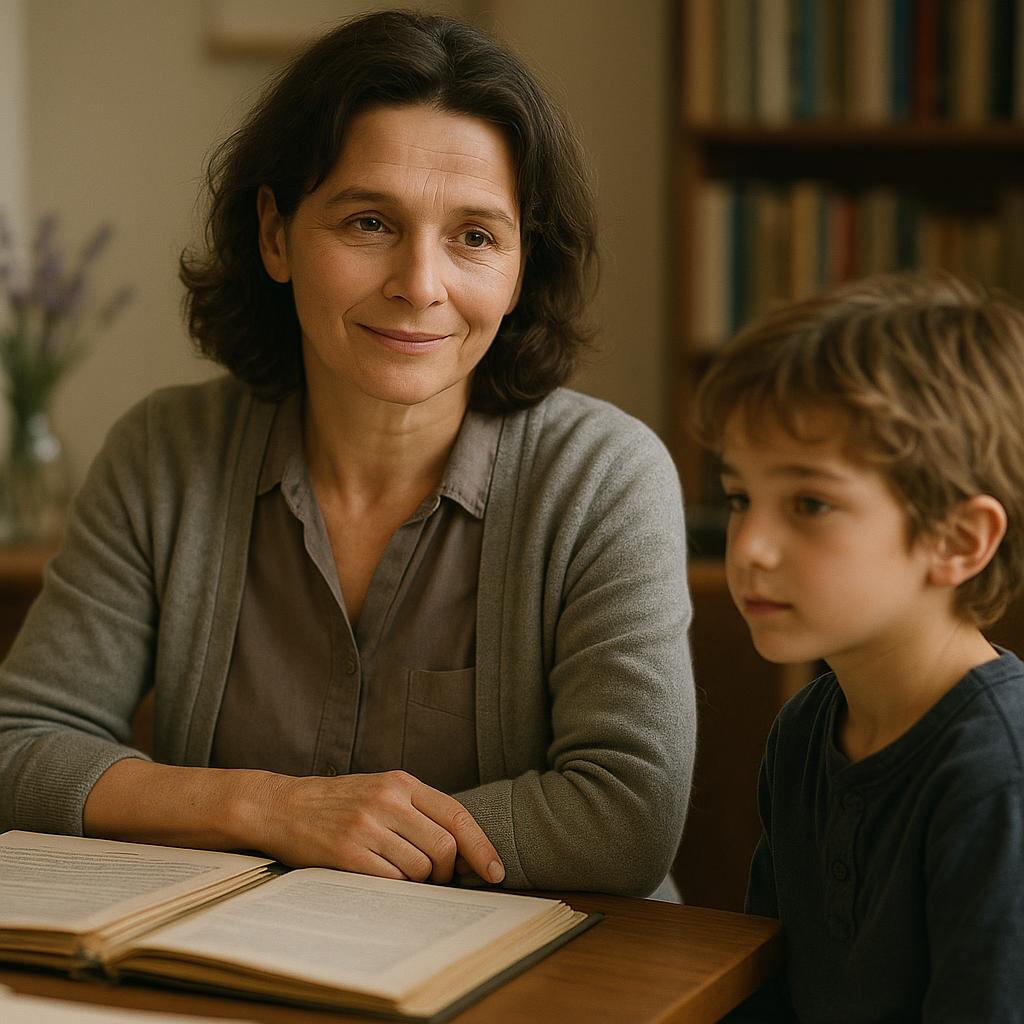 Image by RM AI
Image by RM AI
The Unexpected Letter
The manila envelope sat on my kitchen counter for three days before I could bring myself to open it. The return address—Hazelwood Correctional Facility—made my stomach turn. Inside was a neatly handwritten letter from Marcel, his penmanship surprisingly elegant for a man who'd helped steal my son. 'I've been following your story,' he wrote. 'The documentary, Noah's Law... you've turned something terrible into something meaningful.' He explained that he'd established a trust fund for Noah with his remaining assets—nearly $120,000 from the sale of his house. 'I know money can't undo what happened,' he continued, 'but perhaps it can help secure the future we tried to take from him.' My first instinct was to tear it all up, to protect Noah from any connection to the man who'd bought him like property. But Dr. Linden offered a different perspective when I brought it up during our session. 'This isn't about Marcel,' she said, tapping her pen thoughtfully against her notepad. 'It's about Noah's right to his own history. Keep the letter somewhere safe. When he's older, let him decide what relationship—if any—he wants with this part of his past.' That night, I placed the letter and trust documents in a fireproof box alongside Noah's birth certificate and the few photos I had of him as a baby. As I locked it away, I wondered if I was preserving a bridge to understanding or just storing dynamite that might one day blow up in our faces.
 Image by RM AI
Image by RM AI
Moving Forward
Eighteen months after finding Noah, life finally started feeling... normal. Michael's company promoted me to project manager, which came with better pay and—more importantly—flexible hours. I could actually make it to Noah's soccer games and still keep our Thursday therapy sessions with Dr. Linden. One Friday after work, Michael cornered me in the break room. "Mark, when's the last time you did something just for you?" I couldn't remember. "My sister-in-law Jenna is in town next weekend. Smart, funny, loves kids." My immediate reaction was to shut it down—dating seemed like a luxury I couldn't afford while Noah was still healing. But that night at dinner, I casually mentioned Michael's suggestion. Noah looked up from his dinosaur-shaped chicken nuggets, those wise eyes studying me. "You should go, Daddy," he said, surprising me. "You need friends too." The way he said it—so matter-of-fact—made my throat tight. This kid who'd been through hell was worried about ME being lonely. The next day, I texted Michael to set up the date, feeling equal parts terrified and hopeful. As I stared at my closet trying to remember what people even wore on dates, I realized how much of myself I'd put on hold. Noah had become my entire world—which was necessary for his recovery, but maybe not for mine. What I didn't know then was that this small step toward rebuilding my life would lead to questions I wasn't sure either of us was ready to answer.
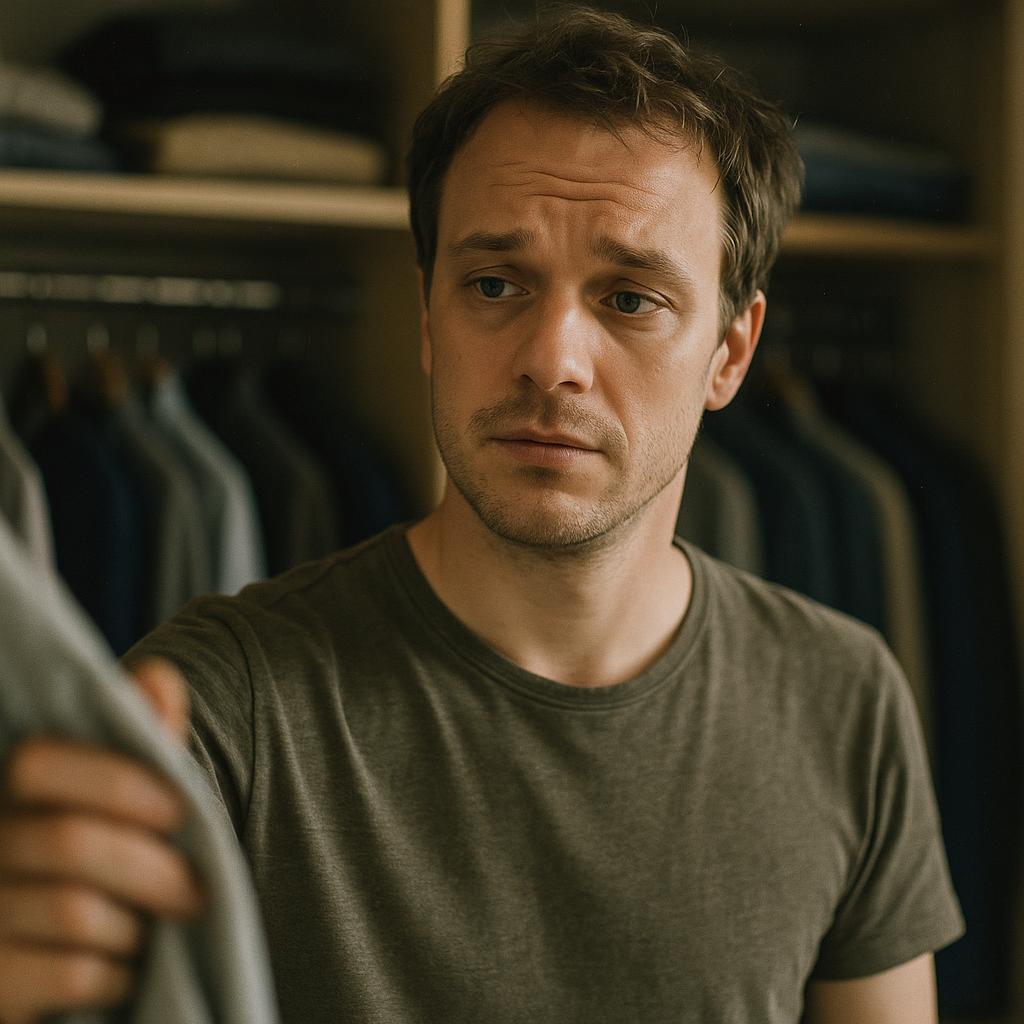 Image by RM AI
Image by RM AI
The Second Chance
Claire entered our lives like a gentle breeze – no dramatic whirlwind, just a steady, calming presence that somehow made everything feel a little more right. After our first few dates, I was careful about introducing her to Noah, remembering Dr. Linden's warnings about attachment and timing. But when Noah's seventh birthday rolled around, it felt natural to include her in our celebration. I watched nervously as Noah approached her with a folded construction paper card, decorated with dinosaur stickers and wobbly handwriting. "This is for you," he said, suddenly shy. Claire opened it carefully, as if handling something precious. Inside, Noah had written: "Thank you for making my dad smile again." That night, after dinosaur-themed cake and presents, Noah sat on the edge of his bed, fidgeting with his new T-Rex figure. "Dad," he asked, his voice small but steady, "could Claire be my new mom someday?" My heart caught in my throat. I sat beside him, choosing my words carefully. "Claire isn't here to replace your birth mother," I explained. "But families can grow in different ways. Sometimes people join our lives and make them better." Noah nodded, processing this with that serious expression that always made him seem older than his years. "I think I'd like that," he said simply. Those six words felt like permission – not just for me to love again, but for us to become something new together. What I couldn't have known then was how Claire's presence would be tested when the past came knocking at our door once more.
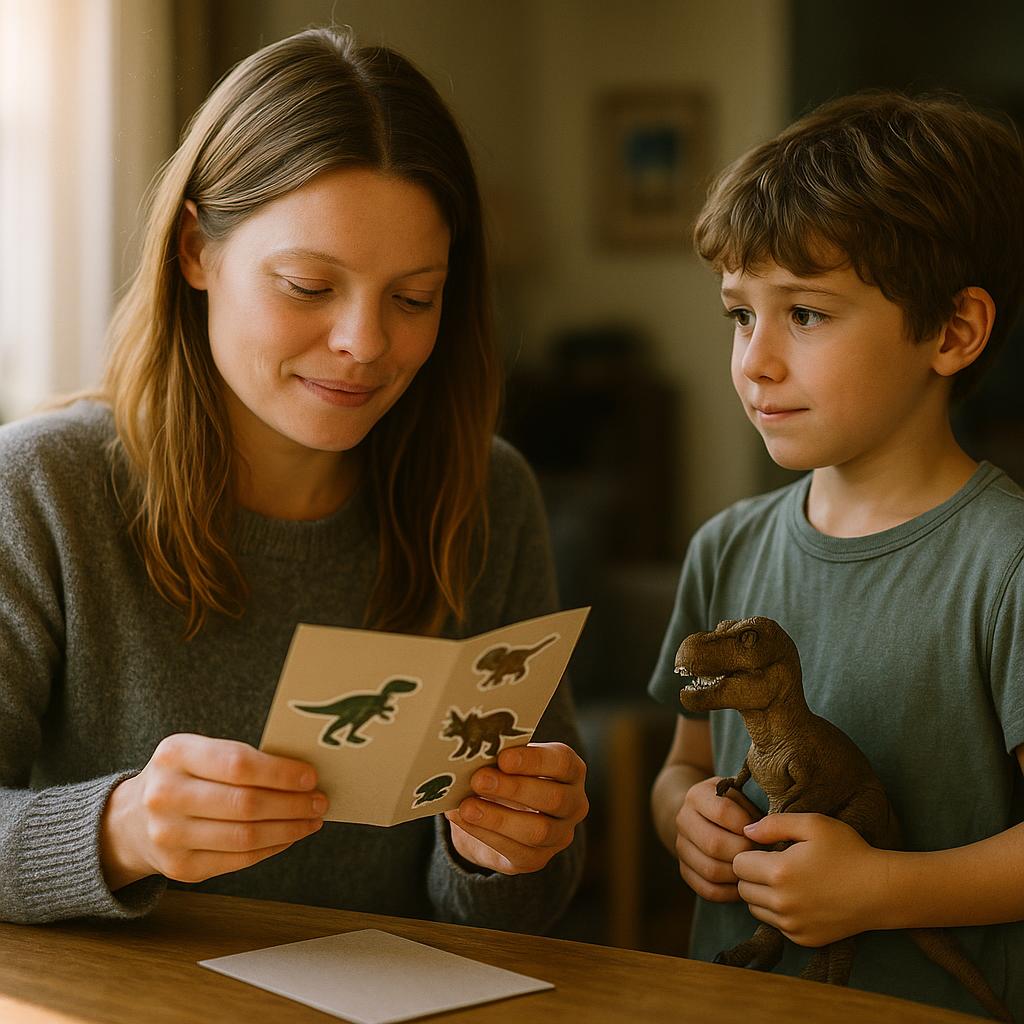 Image by RM AI
Image by RM AI
Full Circle
The waves crashed gently against the shore as I watched Noah and Claire building an elaborate sandcastle system. Two years after that life-changing moment when I found my son alive, here we were at the same beach where Noah and I used to play before everything fell apart. The sun caught in Claire's hair as she helped Noah dig a moat, both of them laughing when a wave rushed in and filled it perfectly. I stayed back, just watching, my throat tight with emotions I couldn't name. This place held so many memories—some beautiful, some painful—but seeing Noah here again felt like closing a circle that had been broken for too long. "Dad! Dad!" Noah called, running toward me with wet sand clinging to his knees. "Remember when you taught me to swim right here? When I was really little?" His eyes were bright, excited—not haunted. "You held my hands and told me to kick like a dinosaur!" The fact that he remembered that day, from before everything went wrong, hit me like a physical blow. He wasn't erasing his past; he was weaving it into who he was becoming. That night, driving home with Noah asleep in the backseat and Claire's hand resting lightly on mine, I realized something profound. I was no longer the broken man who'd lost everything. I was the father who never stopped searching, who found his way back to joy through the darkest possible path. What I didn't know then was that our journey was far from over—and that the biggest test of our new family was waiting just around the corner.
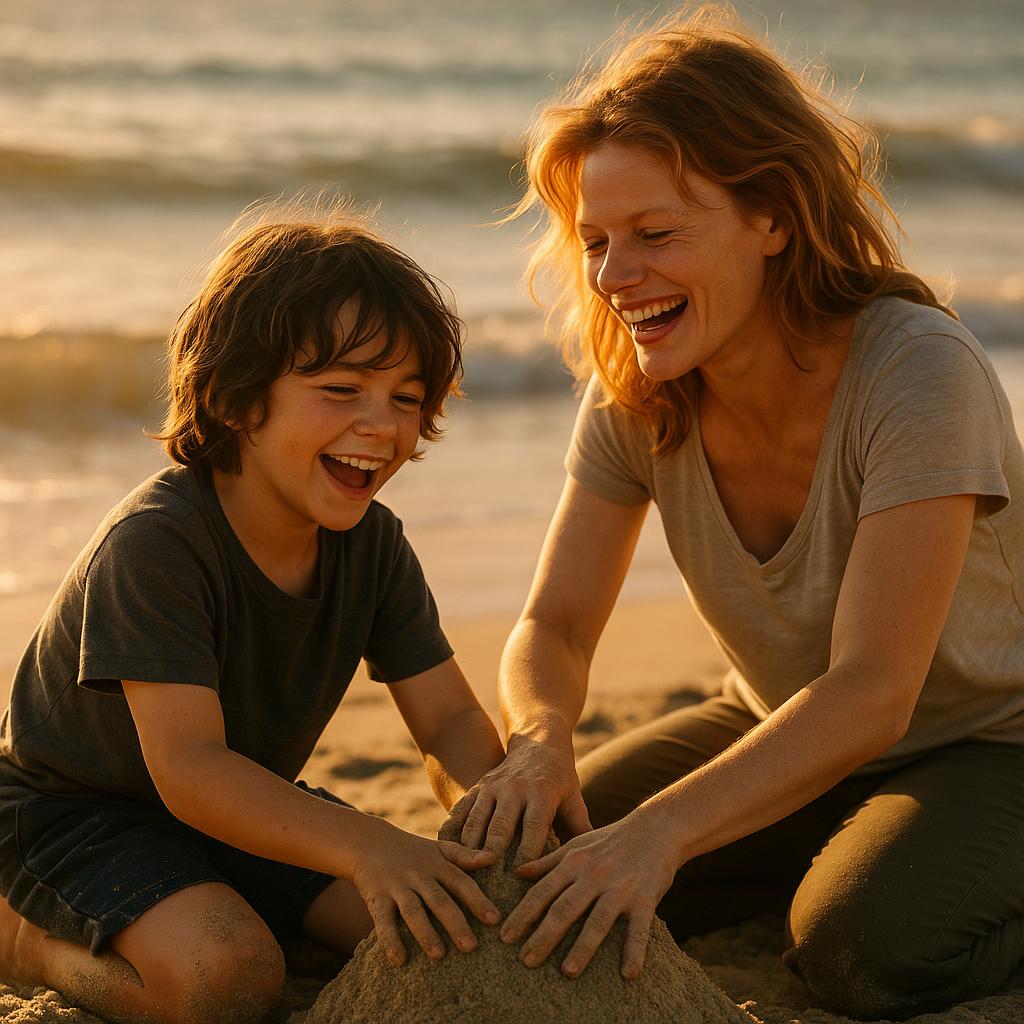 Image by RM AI
Image by RM AI
KEEP ON READING
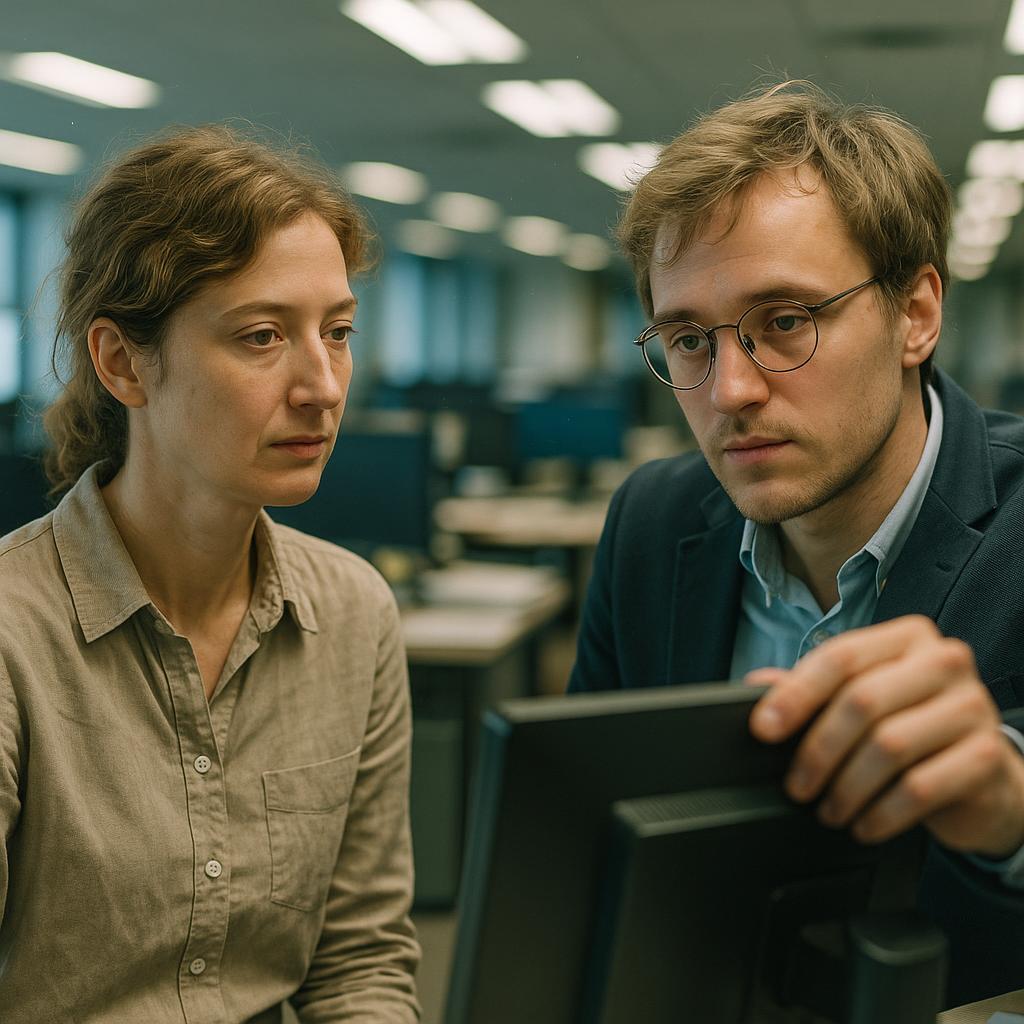
The Clueless Crush: How I Accidentally Invited a Hacker Into…
Fluorescent Lights and First Impressions. My name is Tessa, I'm…
By Ali Hassan Nov 4, 2025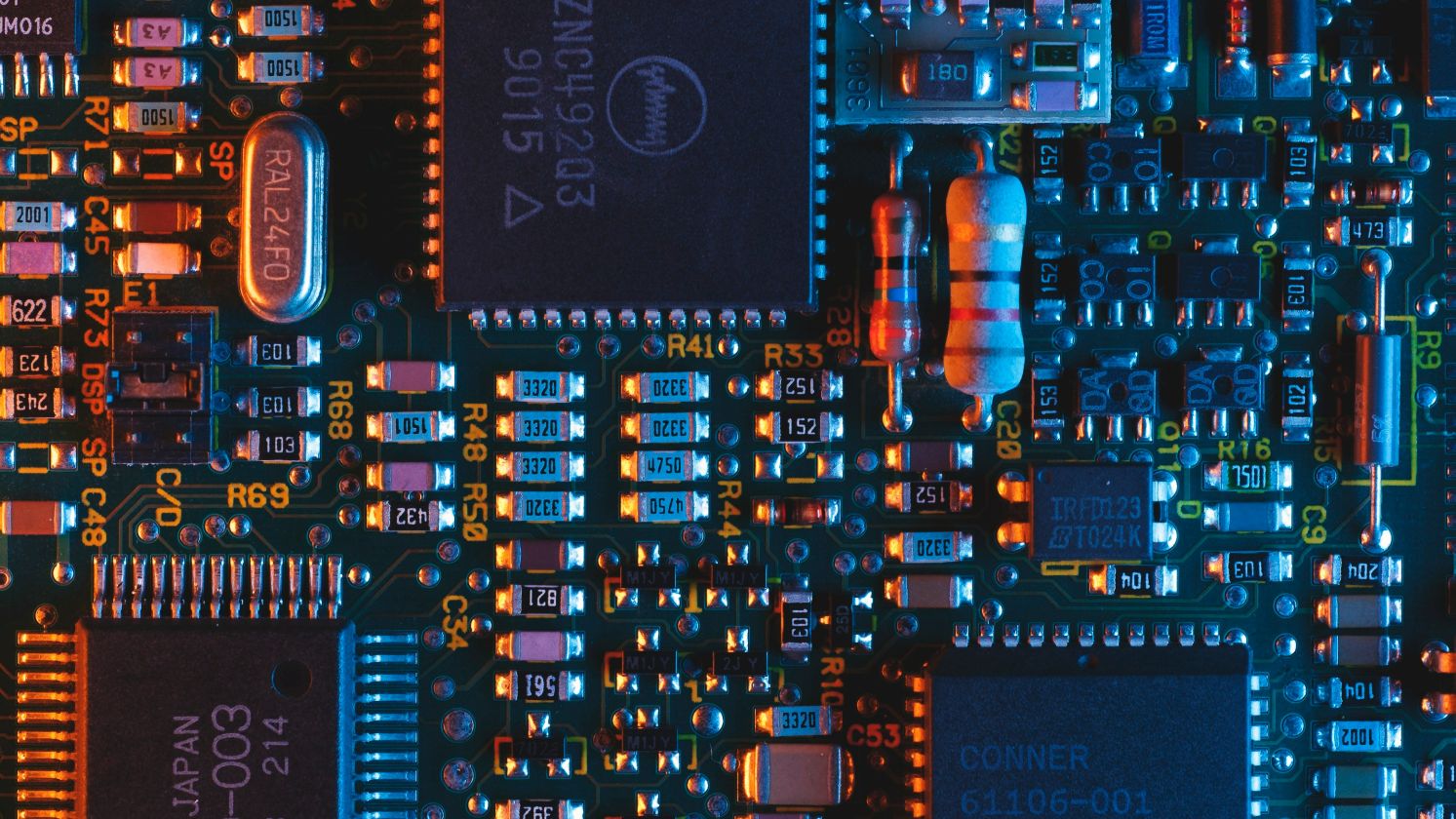
The Greatest Tools Mankind Ever Invented
Bank Phrom on UnsplashWhile they don't always get the credit…
By Rob Shapiro Nov 6, 2025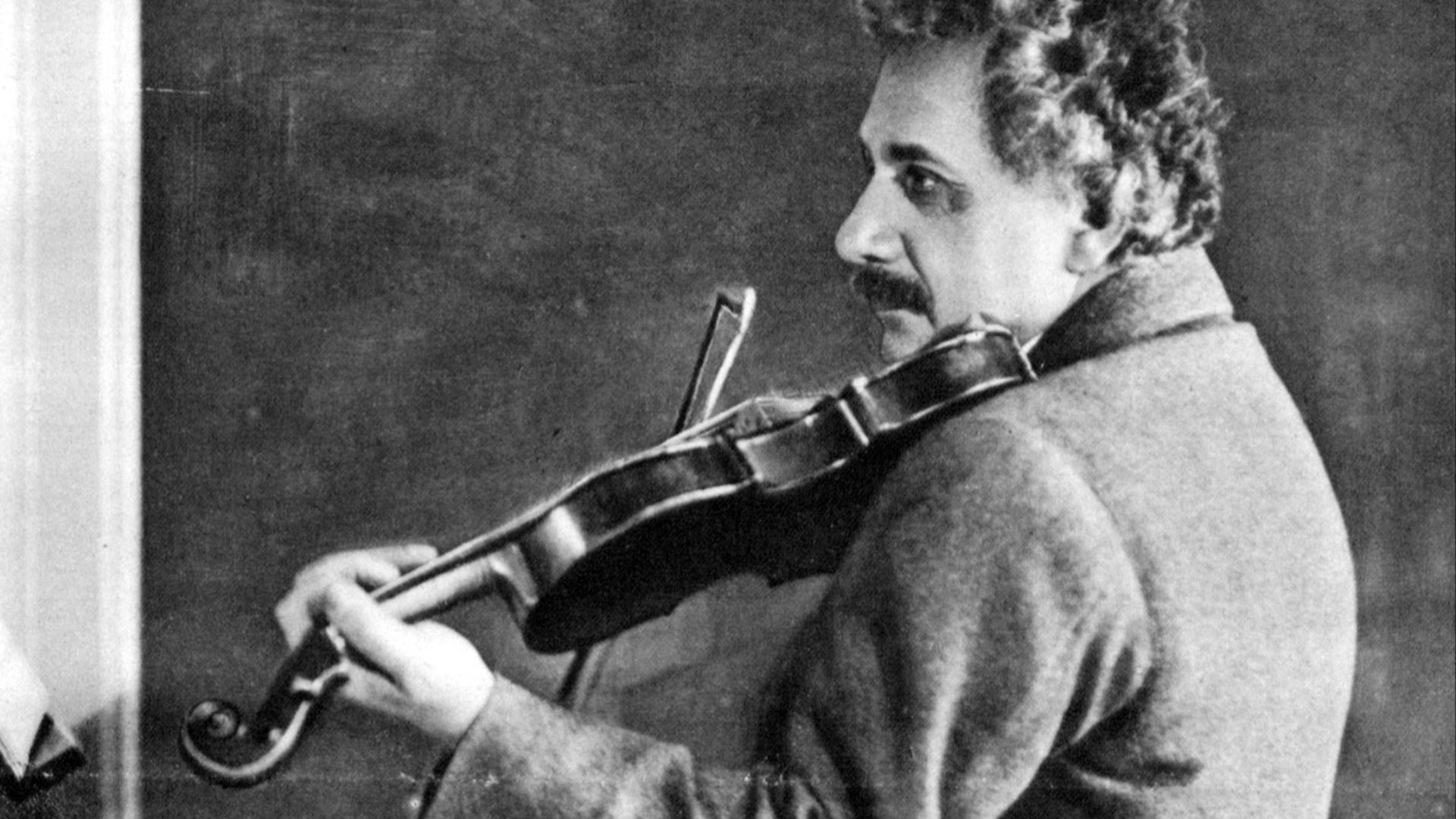
Einstein's Violin Just Sold At An Auction—And It Earned More…
A Visionary's Violin. Wanda von Debschitz-Kunowski on WikimediaWhen you hear…
By Ashley Bast Nov 3, 2025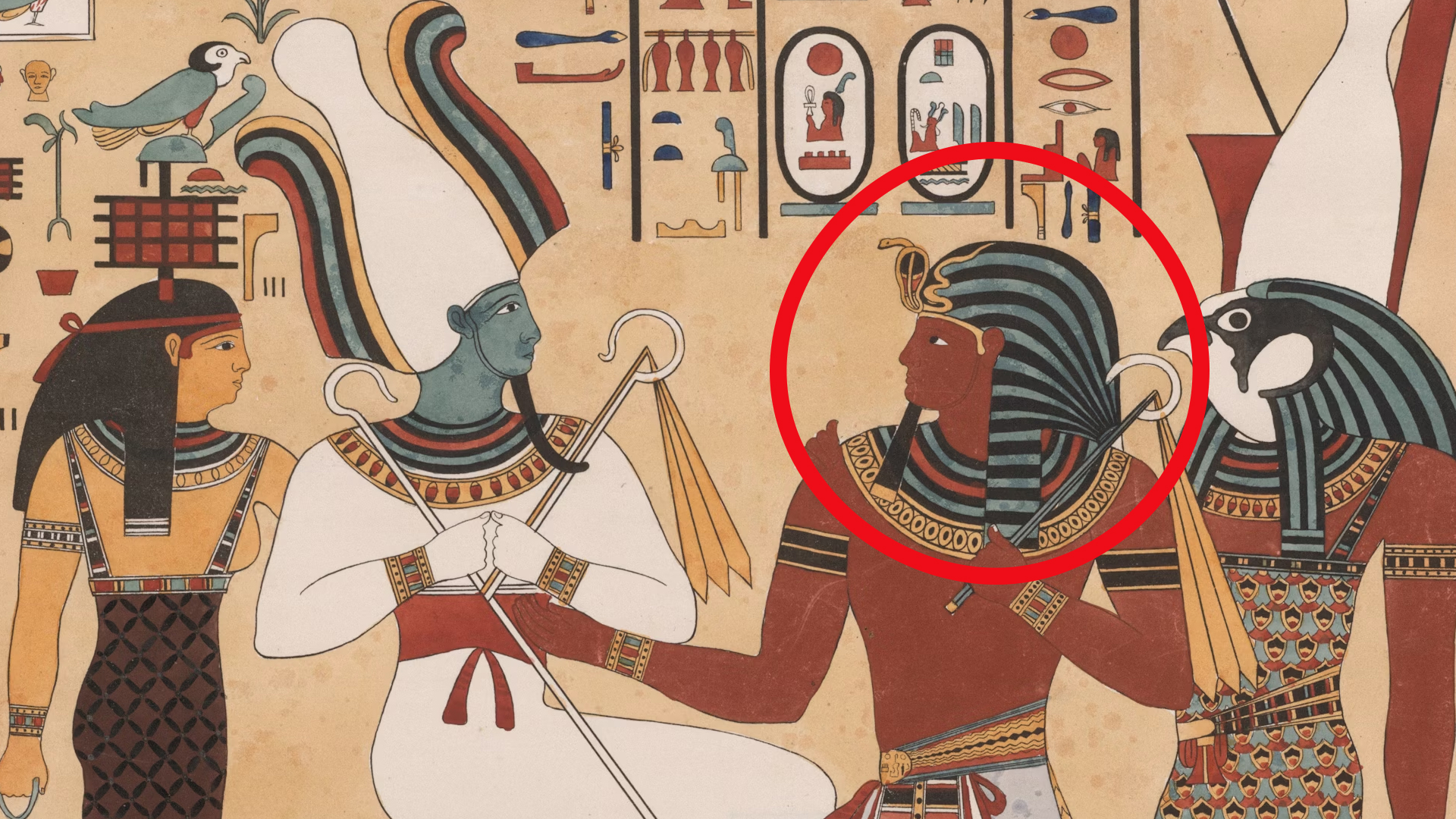
The Mysterious "Sea People" Who Collapsed Civilization
3,200 years ago, Bronze Age civilization in the Mediterranean suddenly…
By Robbie Woods Mar 18, 2025
20 Inventors Who Despised Their Creations
Made It… Then Hated It. Inventors often dream big, but…
By Chase Wexler Aug 8, 2025
20 Incredible Items In The British Museum People Say Were…
Mystery In History. The mighty halls of the British Museum…
By Chase Wexler Sep 8, 2025
